




Normandy, FRANCE
The “Graduate Schools of Research”, funded within the framework of the third “Investing for the Future” Program (PIA 3 – French national program to promote excellency in French Universities), aim to structure and strengthen the impact and international attractiveness of training and research within French universities in one or more scientific fields, through a reinforced link between research and training.
The “Graduate Schools of Research”, funded within the framework of the third “Investing for the Future” Program (PIA 3 – French national program to promote excellency in French Universities), aim to structure and strengthen the impact and international attractiveness of training and research within French universities in one or more scientific fields, through a reinforced link between research and training.
XL-CHEM “synthesizing our future” graduate school of research aims at becoming a internationally recognized training and research centre for molecular chemistry.
innovative, research-oriented master and doctorate degrees in chemistry, with a strong international dimension, with a solid formation in management and entrepreneurship.
the objectives of XL-Chem GS are to propose innovative, research-oriented master and doctorate degrees in chemistry, with a strong international dimension, with a solid formation in management and entrepreneurship.

- 200 Researchers and lecturers
- 160 PhD students
- 8 Research laboratories
- 1 Research federation in chemistry
- 1 ERC STARTING GRANT
- 5 French Chemical Society awards
- 1 Laboratory of Excellence LabEx SynOrg (10.5 M€, PIA1)
- 3 CNRS bronze medals )
XL-CHEM “synthesizing our future” graduate school of research aims at becoming a internationally recognized training and research centre for molecular chemistry.
The ambition of XL-Chem Graduate School of Research (GS) is to become one of the leading European training and research centres in Organic synthesis, Polymer sciences, Spectroscopy and Cosmetics. The core driving force in research for this GS is the Norman research component of the Laboratory of Excellence
The “Graduate Schools of Research”, funded within the framework of the third “Investing for the Future” Program (PIA 3 – French national program to promote excellency in French Universities), aim to structure and strengthen the impact and international attractiveness of training and research within French universities in one or more scientific fields, through a reinforced link between research and training.
200 Researchers and lecturers
- 1 Carnot Institute 12C (2.1 M€ turnover each year from technology transfer)
160 PhD students
- 3 Interreg programmes (12 M€)
8 Research laboratories
1 Laboratory of Excellence LabEx SynOrg (10.5 M€, PIA1)
3 Interreg programmes (12 M€)
- 1 Erasmus programme
- 6 IUF (Institut Universitaire de France) excellence grants since 2010
1 Research federation in chemistry
1 ERC STARTING GRANT
5 French Chemical Society awards
innovative, research-oriented master and doctorate degrees in chemistry, with a strong international dimension, with a solid formation in management and entrepreneurship.
3 CNRS bronze medals
LabEx SynOrg for fundamental reserach and the I2C Carnot Institute which is committed to develop research for companies innovation to develop academy-industry relationships. The goal of XL-Chem GS is to train chemists who will be able to detect opportunities, dare, undertake, learn the concepts and tools of modern management: Agility, Disruption, Innovation, Change Management. On graduation, the XL-Chem students will be well suited to integrate scientific industries, including research, as well as areas such as marketing, and project administration.
XL-CHEM “synthesizing our future” graduate school of research aims at becoming a internationally recognized training and research centre for molecular chemistry.
The ambition of XL-Chem Graduate School of Research (GS) is to become one of the leading European training and research centres in Organic synthesis, Polymer sciences, Spectroscopy and Cosmetics. The core driving force in research for this GS is the Norman research component of the Laboratory of Excellence LabEx SynOrg for fundamental reserach and the I2C Carnot Institute which is committed to develop research for companies innovation to develop academy-industry relationships. The goal of XL-Chem GS is to train chemists who will be able to detect opportunities, dare, undertake, learn the concepts and tools of modern management: Agility, Disruption, Innovation, Change Management. On graduation, the XL-Chem students will be well suited to integrate scientific industries, including research, as well as areas such as marketing, and project administration.
Students will draw upon the expertise of academics in both the Department of Chemistry and the management formation, and could contribute to the world-leading research being carried out. This programme is granted a 4.1 M€ financing to achieve that goal in a 10 years’ time frame (2019-2028)
Students will draw upon the expertise of academics in both the Department of Chemistry and the management formation, and could contribute to the world-leading research being carried out. This programme is granted a 4.1 M€ financing to achieve that goal in a 10 years’ time frame (2019–2028)
The ambition of XL-Chem Graduate School of Research (GS) is to become one of the leading European training and research centres in Organic synthesis, Polymer sciences, Spectroscopy and Cosmetics. The core driving force in research for this GS is the Norman research component of the Laboratory of Excellence LabEx SynOrg for fundamental reserach and the I2C Carnot Institute which is committed to develop research for companies innovation to develop academy-industry relationships. The goal of XL-Chem GS is to train chemists who will be able to detect opportunities, dare, undertake, learn the concepts and tools of modern management: Agility, Disruption, Innovation, Change Management. On graduation, the XL-Chem students will be well suited to integrate scientific industries, including research, as well as areas such as marketing, and project administration.
XL-Chem will benefit from: • for its fundamental research, a strong support from 2 Internationally recognized research laboratories involved in Labex SynOrg (renewed in 2019); • for technology transfer to industry, the Carnot I2C institute, bringing together 8 research laboratories in Normandy.

XL-Chem will benefit from:
• for its fundamental research, a strong support from 2 Internationally recognized research laboratories involved in Labex SynOrg (renewed in 2019);
Students will draw upon the expertise of academics in both the Department of Chemistry and the management formation, and could contribute to the world-leading research being carried out. This programme is granted a 4.1 M€ financing to achieve that goal in a 10 years’ time frame (2019-2028)
Aiming at the training of tomorrow’s researchers and executive-researchers required in the health, cosmetics, specialty chemicals and sustainable development industrial sectors, the objectives of XL-Chem GS are to propose
• for technology transfer to industry, the Carnot I2C institute, bringing together 8 research laboratories in Normandy.
XL-Chem will benefit from:
• for its fundamental research, a strong support from 2 Internationally recognized research laboratories involved in Labex SynOrg (renewed in 2019);
Aiming at the training of tomorrow’s researchers and executive-researchers required in the health, cosmetics, specialty chemicals and sustainable development industrial sectors,
• for technology transfer to industry, the Carnot I2C institute, bringing together 8 research laboratories in Normandy.
Aiming at the training of tomorrow’s researchers and executive-researchers required in the health, cosmetics, specialty chemicals and sustainable development industrial sectors, the objectives of XL-Chem GS are to propose





1 Carnot Institute 12C (2.1 M€ turnover each year from technology transfer)
1 Erasmus programme
To reach its objectives, XL-Chem will associate “à la carte” high level courses and lectures in chemistry and chemical biology given by high level French and international academics and industrials, to a reinforced training through research in international laboratories and industries, and a dedicated innovative set of soft skills and management courses fitting with Candidate career project.
- 200 Researchers and lecturers
- 160 PhD students
- 8 Research laboratories
- 1 Laboratory of Excellence LabEx SynOrg (10.5 M€, PIA1)
6 IUF (Institut Universitaire de France) excellence grants since 2010
- 1 Research federation in chemistry
- 1 ERC STARTING GRANT
- 5 French Chemical Society awards

- 3 CNRS bronze medals )
- 1 Erasmus programme
The purpose of XL-Chem is to prepare a new generation of researchers that will transform traditional chemical and pharmaceutical industries by adding considerable value to products and helping these industries to adapt to new environmental standards.
- 1 Carnot Institute 12C (2.1 M€ turnover each year from technology transfer)


- 3 Interreg programmes (12 M€)




- 6 IUF (Institut Universitaire de France) excellence grants since 2010






To reach its objectives, XL-Chem will associate “à la carte” high level courses and lectures in chemistry and chemical biology given by high level French and international academics and industrials, to a reinforced training through research in international laboratories and industries, and a dedicated innovative set of soft skills and management courses fitting with Candidate career project.
To reach its objectives, XL-Chem will associate “à la carte” high level courses and lectures in chemistry and chemical biology given by high level French and international academics and industrials, to a reinforced training through research in international laboratories and industries, and a dedicated innovative set of soft skills and management courses fitting with Candidate career project.
The purpose of XL-Chem is to prepare a new generation of researchers that will transform traditional chemical and pharmaceutical industries by adding considerable value to products and helping these industries to adapt to new environmental standards.
The purpose of XL-Chem is to prepare a new generation of researchers that will transform traditional chemical and pharmaceutical industries by adding considerable value to products and helping these industries to adapt to new environmental standards.
• The key points of XL-Chem
• The key points of XL-Chem
• A dedicated mentor for each master student. He will guide the student in the choice of “à la carte” scientific courses and lecture of excellence and provide an in-depth training through research. This training will include a three-month research internship in Master 1 and a six-month research internship in Master 2, at least one of these research internships will be done in an internationally recognized partner laboratory ;
O Master students will be trained to write research proposals. Best projects will be granted with PhD funding opportunity;
• A dedicated mentor for each master student. He will guide the student in the choice of “à la carte” scientific courses and lecture of excellence and provide an in-depth training through research. This training will include a three-month research internship in Master 1 and a six-month research internship in Master 2, at least one of these research internships will be done in an internationally recognized partner laboratory ;
• An “À la carte” choice within courses and conferences in chemistry provided in English by nationally (CNRS, etc.) and internationally renowned researchers, according to Candidate’s Career project,
• Double degrees with renowned universities ; (Florence for example)
O Training to soft skills (management, entrepreneurship, IP, project management, EU funding etc…). The program has been built in order to address the needs expressed by professional branches and companies;
• An “À la carte” choice within courses and conferences in chemistry provided in English by nationally (CNRS, etc.) and internationally renowned researchers, according to Candidate’s Career project,
• Master students will be trained to write research proposals. Best projects will be granted with PhD fund¬ing opportunity;
• Double degrees with renowned universities ; (Florence for example)
O A dedicated mentor for each master student. He will guide the student in the choice of “à la carte” scientific courses and lecture of excellence and provide an in-depth training through research. This training will include a three-month research internship in Master 1 and a six-month research internship in Master 2, at least one of these research internships will be done in an internationally recognized partner laboratory;
• Master students will be trained to write research proposals. Best projects will be granted with PhD fund¬ing opportunity;
• Training to soft skills (management, entrepreneurship, IP, project management, EU funding etc….). The program has been built in order to address the needs expressed by professional branches and companies;
O An “À la carte” choice within courses and conferences in chemistry provided in English by nationally (CNRS, etc.) and internationally renowned researchers, according to Candidate’s Career project,

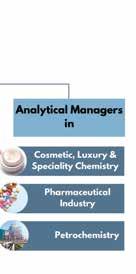



• At the PhD level, XL-Chem will offer a differentiating “European label” PhD associating the traditional training through research in nationally and internationally recognized laboratories, with top level lectures made by academics and industrial partners of the sector, with a 18-months experience in an international partner’s university, and an “à la carte” soft skills formation.
• Training to soft skills (management, entrepreneurship, IP, project management, EU funding etc….). The program has been built in order to address the needs expressed by professional branches and companies;
• At the PhD level, XL-Chem will offer a differentiating “European label” PhD associating the traditional training through research in nationally and internationally recognized laboratories, with top level lectures made by academics and industrial partners of the sector, with a 18-months experience in an international partner’s university, and an “à la carte” soft skills formation.
O Double degrees with renowned universities; (Florence for example)
O At the PhD level, XL-Chem will offer a differentiating “European label” PhD associating the traditional training through research in nationally and internationally recognized laboratories, with top level lectures made by academics and industrial partners of the sector, with a 18-months experience in an international partner’s university, and an “à la carte” soft skills formation.
The key points of XL-Chem dedicated mentor for each master student. He will guide the student in the choice of “à la carte” scientific courses and lecexcellence and provide an in-depth training through research. This training will include a three-month research internship in and a six-month research internship in Master 2, at least one of these research internships will be done in an internationally partner laboratory ; la carte” choice within courses and conferences in chemistry provided in English by nationally (CNRS, etc.) and internarenowned researchers, according to Candidate’s Career project, Double degrees with renowned universities ; (Florence for example) students will be trained to write research proposals. Best projects will be granted with PhD fund¬ing opportunity; Training to soft skills (management, entrepreneurship, IP, project management, EU funding etc….). The program has been built address the needs expressed by professional branches and companies; PhD level, XL-Chem will offer a differentiating “European label” PhD associating the traditional training through research and internationally recognized laboratories, with top level lectures made by academics and industrial partners of the a 18-months experience in an international partner’s university, and an “à la carte” soft skills formation.
• The key points of XL-Chem
• The key points of XL-Chem
• A dedicated mentor for each master student. He will guide the student in the choice of “à la carte” scientific courses and lecture of excellence and provide an in-depth training through research. This training will include a three-month research internship in Master 1 and a six-month research internship in Master 2, at least one of these research internships will be done in an internationally recognized partner laboratory ;
• The key points of XL-Chem
• A dedicated mentor for each master student. He will guide the student in the choice of “à la carte” scientific courses and lecture of excellence and provide an in-depth training through research. This training will include a three-month research internship in Master 1 and a six-month research internship in Master 2, at least one of these research internships will be done in an internationally recognized partner laboratory
• The key points of XL-Chem
• An “À la carte” choice within courses and conferences in chemistry provided in English by nationally (CNRS, etc.) and internationally renowned researchers, according to Candidate’s Career project, • Double degrees with renowned universities ; (Florence for example)
• An “À la carte” choice within courses and conferences in chemistry provided in English by nationally (CNRS, etc.) and internationally renowned researchers, according to Candidate’s Career project,
A dedicated mentor for each master student. He will guide the student in the choice of “à la carte” scientific courses and lecof excellence and provide an in-depth training through research. This training will include a three-month research internship in Master 1 and a six-month research internship in Master 2, at least one of these research internships will be done in an internationally recognized partner laboratory ; An “À la carte” choice within courses and conferences in chemistry provided in English by nationally (CNRS, etc.) and internationally renowned researchers, according to Candidate’s Career project, Double degrees with renowned universities ; (Florence for example) Master students will be trained to write research proposals. Best projects will be granted with PhD fund¬ing opportunity;
• Double degrees with renowned universities (Florence for example)
• Master students will be trained to write research proposals. Best projects will be granted with PhD fund¬ing opportunity;
• Training to soft skills (management, entrepreneurship, IP, project management, EU funding etc….). The program has been built in order to address the needs expressed by professional branches and companies;
• A dedicated mentor for each master student. He will guide the student in the choice of “à la carte” scientific courses and lecture of excellence and provide an in-depth training through research. This training will include a three-month research internship in Master 1 and a six-month research internship in Master 2, at least one of these research internships will be done in an internationally recognized partner laboratory ;
• Master students will be trained to write research proposals. Best projects will be granted with PhD fund¬ing opportunity;
• Training to soft skills (management, entrepreneurship, IP, project management, EU funding etc….). The program has been built in order to address the needs expressed by professional branches and companies;
• At the PhD level, XL-Chem will offer a differentiating “European label” PhD associating the traditional training through research in nationally and internationally recognized laboratories, with top level lectures made by academics and industrial partners of the sector, with a 18-months experience in an international partner’s university, and an “à la carte” soft skills formation.
• An “À la carte” choice within courses and conferences in chemistry provided in English by nationally (CNRS, etc.) and internationally renowned researchers, according to Candidate’s Career project,
• Double degrees with renowned universities ; (Florence for example)
• At the PhD level, XL-Chem will offer a differentiating “European label” PhD associating the traditional training through research in nationally and internationally recognized laboratories, with top level lectures made by academics and industrial partners of the sector, with a 18-months experience in an international partner’s university, and an “à la carte” soft skills formation.
Training to soft skills (management, entrepreneurship, IP, project management, EU funding etc….). The program has been built order to address the needs expressed by professional branches and companies;


• Master students will be trained to write research proposals. Best projects will be granted with PhD fund¬ing opportunity;


• Training to soft skills (management, entrepreneurship, IP, project management, EU funding etc….). The program has been built in order to address the needs expressed by professional branches and companies;
At the PhD level, XL-Chem will offer a differentiating “European label” PhD associating the traditional training through research nationally and internationally recognized laboratories, with top level lectures made by academics and industrial partners of the sector, with a 18-months experience in an international partner’s university, and an “à la carte” soft skills formation.
• At the PhD level, XL-Chem will offer a differentiating “European label” PhD associating the traditional training through research in nationally and internationally recognized laboratories, with top level lectures made by academics and industrial partners of the sector, with a 18-months experience in an international partner’s university, and an “à la carte” soft skills formation.
https://www.facebook.com/xlchem
https://twitter.com/xl_chem
https://www.instagram.com/xlchem/?hl=fr
https://fr.linkedin.com/company/xl-chem?trk


in Economics with a full-time scholarship at DIW Graduate Center


The German Institute for Economic Research (DIW Berlin) is one of the leading economic research institutes in Germany. We are an independent, non-profit institute involved in economic research, service and policy advice. In addition to co-operating closely with universities in Berlin and Brandenburg, we are also active in international academic networks.

Doctoral Student in Economics
The DIW Graduate Center (GC) at the German Institute for Economic Research welcomes applications from highly qualified post-graduate students from around the world to enroll in its structured doctoral program in Economics.

The goal of the DIW Graduate Center is to provide outstanding doctoral students with a research environment and a training structure that will develop their talents in exemplary manner. It provides them to a deep understanding of economic and social processes while offering them the opportunity to apply their knowledge within the professional research environment of one of the leading economic think tanks in Germany.
The Graduate Center offers a 5-year program of in-depth training in Economics leading to a PhD from one of Berlin’s universities. The student will go through a high-level coursework curriculum and receive on-thejob training in DIW Berlin’s research departments. Student’s research should focus on theoretical and/or applied topics within Economics and related social sciences. Both the education and the research at the GC have a strong empirical component. The PhD education also includes sponsored internships at prestigious institutions, such as the International Monetary Fund, the World Bank and Ministries.
After successfully completing the program students will have submitted a number of papers to refereed scientific journals. They will receive a certificate confirming participation along with a doctoral degree.
The DIW Graduate Center offers four years of funding and pays a standard scholarship of 1,200 € per month. After completing the first year, doctoral students are assigned to the research departments of the institute. Research positions are offered depending on the volume of research projects under work.
Applicants must hold a master’s degree or diploma in Economics in order to apply for the economic training program. Degrees from other related fields (such as civil engineering, statistics or quantitative social sciences) may also fulfill requirements for the program if the applicant has a sufficient background in Economics.
Applicants whose native language is not English must demonstrate English language proficiency unless they hold a degree from a university in an English-speaking country or can document at least one year of studies at an English-speaking university. Sufficient evidence for a good command of English
is a high score on TOEFL or IELTS tests. Knowledge of German is not a necessary requirement for a successful application, but students are encouraged to learn and improve their skills.
Deadline of Application: February 12, 2023. Application procedure and further information: https://www.diw.de/en/diw_01.c.799242. en/application.html
Contact:
Daniela Centemero Applications OfficerDIW Graduate Center
Email: gradcenter@diw.de
Telephone: +49 30 89789-547
physics” and “Physics of materials”. We also are responsible for the Doctoral School “Functional Materials and Nanotechnologies”. The school is a platform where industry, local and foreign researchers as well as students can discuss topical subjects and research in the respective fields.
What infrastructure do you have?
In the previous five years, the Institute has substantially upgraded its scientific infrastructure: more than 15M EUR have been invested in the fields of materials structure and morphology characterisation (SEM, TEM, XRD), spectroscopy research (spectral ellipsometer, wavelength tuneable pico- and femtosecond lasers, modern EPR, XPS), and device fabrication equipment (electron beam lithography and related accessories). These are just a few examples of what has been upgraded, obtained and used to produce high-level research.
Tell us more about the CAMART² project. What chances does it bring to your students?
Alicja Mrugal: What can your Institute offer?
Liga Grinberga, PhD, Head of the information and communication group: In addition to the fact that we offer diverse and challenging research in perspective materials science directions, the main benefit is that the Institute offers an added value – involvement in significant research and exciting career opportunities even if you are a bachelor’s or master’s student. It is even possible that a PhD student while elaborating dissertation develops a new research direction, and after the graduation becomes the head of a laboratory! If you have an idea, diligence and passion, the career growth at the Institute can be very rapid.
Can you mention some of the most interesting courses at ISSP UL?

It depends on a scientific ‘taste,’ but I can suggest courses on spectroscopic and morphology characterisation of materials comprising both theory and experimental work with state-of-the-art equipment as well as micro- and nanofabrication of electronic and photonic devices, where students get acquainted with the modern device fabrication methods at the nanoscale.
And how about PhD degree at ISSP UL?
Positive! There are two possible PhD programmes carried out at the Institute: “Solid state
Centre of Excellence in Advanced Material Research and Technology Transfer (CAMART²) is a Horizon 2020 Teaming call project for creation of fertile scientific environment at ISSP UL. It aims to enable transfer of new materials and technologies into products for commercial and public benefits. Our skills are trained by the exchange of knowledge with innovation-intensive partners – Royal Institute of Technology (KTH) and Research institutes of Sweden (RISE). The project supports students to attend dedicated schools, conferences, workshops, as well as develop skills and knowledge required to operate high class equipment in Latvia and Sweden.
What are the opportunities to work at ISSP UL?
The Institute holds a broad portfolio of research projects that are constantly updated. While elaborating their theses, students usually are involved in research projects related to their thesis work. Bachelor’s and master’s degree students start their careers in our laboratories as engineers and research assistants, which allows them to take first steps and accumulate knowledge, skills, and experience that is useful for becoming researchers, leading researchers and the heads of laboratories.
If not working at ISSP UL, what are the other hiring options for your alumni?
Most of our alumni are employed by academic institutions and industry in Latvia and abroad. To mention a few – EMPA (CH), AGP eGlass (BE), Infineon Technologies AG (AT), Fritz Haber Institute (DE), GroGlass (LV) a.o.
How many students from abroad do you have already?
Five, and the number is rising. We are quite ‘young’ in the international students’ arena, nevertheless it means that there are lot of possibilities for students to ‘rise and shine’.
And, speaking more generally, why would you recommend studying in Riga?
Latvia is a country rich in different cultural and education traditions. Riga is a vibrant city with strong youth culture and a supportive study environment, with a lot of international student programs. Your future is closer than you think, also if we speak about the distance Poland–Latvia.
Very true! Thank you for your time.
If you have an idea, diligence and passion, the career growth at the Institute can be very rapid!The Institute of Solid State Physics, University of Latvia (ISSP UL) is an internationally recognized leader in materials science and cross-disciplinary topics, conducting competitive research and engaging young researches.
Interested
Want to do work directly related to your studies and elaborate your bachelor’s, master’s, and doctoral theses in the modernized scientific laboratories equipped with state-of-the-art equipment? Don’t wait until you finish your studies to build your career – start doing it in your freshman year!
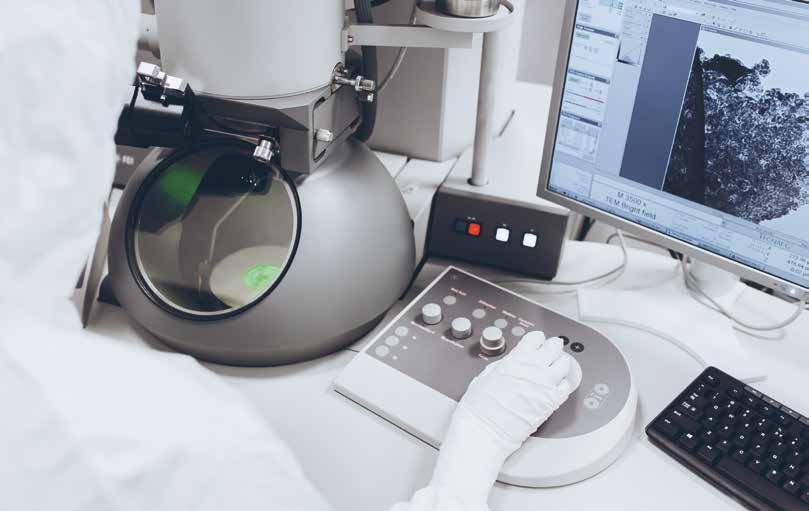
Here is your golden chance: become a student at the Faculty of Physics, Mathematics and Optometry of the University of Latvia – the biggest university in Latvia – and come work at the Institute of Solid State Physics, University of Latvia (ISSP UL) – an internationally recognized leader in materials science and interdisciplinary research in the Baltic Sea region. The ISSP UL’s scientific competitiveness
https://www.cfi.lu.lv/en/ www.camart2.eu
as well as its research and innovation ecosystem are currently being developed through the CAMART² project, which is one of the Horizon 2020 Teaming project winners.
The ISSP UL research priorities are thin films and coating technologies; functional materials for photonics and electronics; nanotechnology, nanocomposites and ceramics and modelling of technologically important materials and devices.
The institute has developed strong collaboration ties with the Royal Institute of Technology (KTH) – the largest technical university in Sweden and RISE Research Institutes of Sweden providing training courses and mentoring.
https://www.lu.lv/en/admission/for-international-students/degree/
of Lodz and Lodz Institutes of the Polish Academy of Sciences
Biological Sciences
Medical Sciences
Chemical Sciences
Szkoła Doktorska BioMedChem UŁ i Instytutów
Polskiej Akademii Nauk w Łodzi
(IBM, CBMiM i ERCE PAN)
nauki biologiczne
nauki medyczne
nauki chemiczne
https://www.uni.lodz.pl/en/bio-med-chem-doctoral-school
https://www.uni.lodz.pl/biomedchem
Archaeology
History
Philosophy
Linguistics
Literary studies

Cultural and religious studies
Art Studies
Szkoła Doktorska Nauk Humanistycznych UŁ
archeologia
historia
filozofia
językoznawstwo
literaturoznawstwo
nauki o kulturze i religii
nauki o sztuce
https://www.uni.lodz.pl/en/doctoral-school-of-humanities
https://www.uni.lodz.pl/sdnh
University of Lodz Doctoral School of Exact
and Natural Sciences
Mathematics
Biological Sciences
Chemical Sciences
Physical Sciences
Earth and Environmental Sciences
Szkoła Doktorska Nauk Ścisłych
i Przyrodniczych UŁ
matematyka
nauki biologiczne
nauki chemiczne
nauki fizyczne
nauki o Ziemi i środowisku
https://www.uni.lodz.pl/en/doctoral-school-of-exact-and-natural-sciences
https://www.uni.lodz.pl/sdnsip
University of Lodz Doctoral School of Social Sciences
Sociological Sciences
Economics and Finance
Legal Sciences
Pedagogy
Psychology
Socio-economic Geography and Spatial Management
Management and Quality Studies

Political and Administrative Sciences
Szkoła Doktorska Nauk Społecznych UŁ
nauki socjologiczne
ekonomia i finanse
nauki prawne
pedagogika
psychologia
geografia społeczno-ekonomiczna i gospodarka przestrzenna
nauki o zarządzaniu i jakości
nauki o polityce i administracji
https://www.uni.lodz.pl/en/doctoral-school-of-social-sciences https://www.uni.lodz.pl/sdns
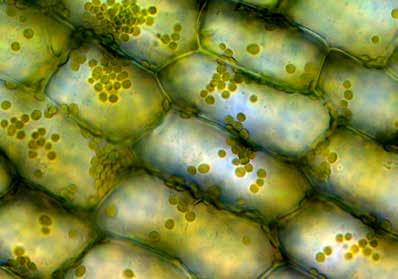
What is the Life Science Zurich Graduate School? The Life Science Zurich Graduate School consists of several highly competitive PhD programs. We are run jointly by the ETH Zurich and the University of Zurich. Our programs offer research and education opportunities in a stimulating international environment for ambitious students who wish to work towards a PhD degree. If you are accepted to our school you will perform your research project in one of the participating research groups according to your scientific interest. Throughout the curriculum we offer advanced teaching and training courses. The program language is English. PhD studies usually last 4 years.
Education: You must hold or anticipate receiving a Master’s degree or equivalent from a university in a relevant field before starting the PhD program. If you are accepted for the program you will have to register with either the University of Zurich or ETH Zurich, depending on the affiliation of the research group you are joining.
We offer you a challenging training environment, a clear mentoring system and the opportunity to perform cutting-edge research.
How do I finance my PhD? All research groups within the Life Science Zurich Graduate School provide financial support in accordance with the PhD student salary set by the Swiss National Science Foundation (at present CHF 47'040.- to CHF 50'040.-).
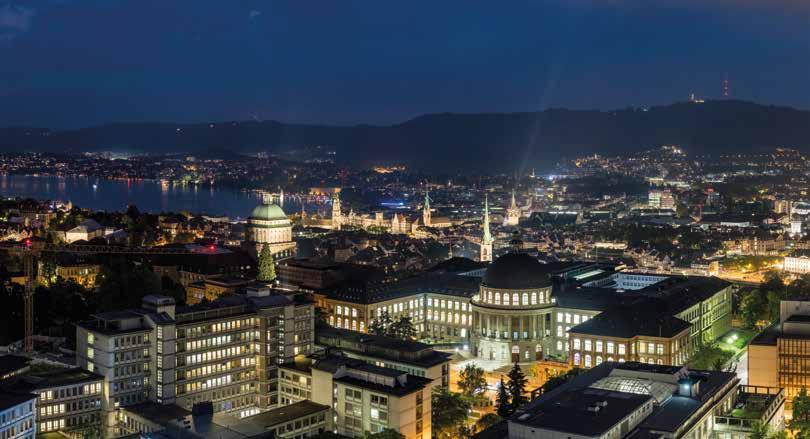
How is the research environment? Our aim is to attract to Zurich the most promising young scientists from across the world. We offer you a challenging training environment, a clear mentoring system and the opportunity to perform cutting-edge research. As a PhD student you are part of a vivid scientific and social community and get the opportunity to work with the leading scientists in your field of interest. With around 400 research groups and more than 1200 PhD students, the Life Science Zurich Graduate School is one of the largest graduate schools in Europe.
How can I apply? Our web pages provide detailed information for submission of application. Please refer to the guidelines as we only take into consideration applications received in the required format: http://www.lifescience-graduateschool.uzh.ch/en/application.html
Our application deadlines are 1 July and 1 December.
www.lifescience-graduateschool.uzh.ch

Six good reasons to join the Life Science Zurich Graduate School of the University Zurich & ETH Zurich!
Our Graduate School offers PhD studies in 17 different PhD programs within a large range of Life Science research fields.
As a PhD student at our Graduate School you will receive an employment contract, including accident and unemployment insurances. The salary is generous compared to international standards and allows a comfortable living in Zurich. You benefit from a strong curriculum with scientific and transferable skills courses.
You are part of a clear mentoring system led by top scientists. Defined contact persons and helpful program coordinators put all their effort into supporting you during your PhD studies. You will also have lots of social activities including career events to choose between for building your network and finding friends.
If you come to Zurich you will be part of a very international environment with over 50 nationalities represented among the 1600 students and around 500 group leaders. You will benefit of many aspects of students’ life as ETH and University of Zurich such as student bars, students housing and around 120 different sports on offer by the Academic Sports Association Zurich (ASVZ).
Zurich is somewhat of a Life Science hotspot. Thanks to its combination of academic excellence, entrepreneurship and innovation, financial strength and very good accessibility, Zurich is one of the leading centers in the life sciences in Europe.

Zurich is also a “little big city” where English is an everyday language. We think it’s a very attractive place to work and live in. It’s close to spectacular landscapes and has a wide choice of cultural activities. You reach the airport within 20 minutes from the city center.
Find out more about our Graduate School on our websites. You are welcome to register and apply online for our two yearly application deadlines, 1 December and 1 July. Be invited to our interviews in February and September and find your research group that meets your skills and interests!
https://www.lifescience-graduateschool.uzh.ch/en.html https://join.lszgs.uzh.ch/index.php?id=registration
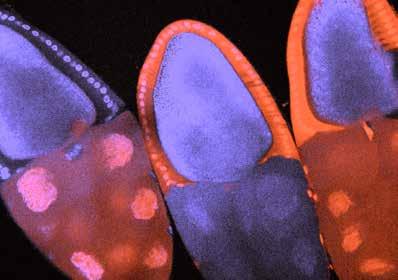
Sano Centre is a research institute dedicated to the ad
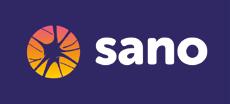
vancement of computational medicine. The strategic ob
jectives of the Centre span five domains:
Academia: To become Central Eastern Europe’s foremost academic institution for the identification, development, and implementation of techniques in Computational Med
icine
Translation: To combine academic, industry and clinical perspectives to inform innovative R&D processes, delivering competitive products and services to the marketplace, creating sustainability
Education: Deliver internal and external training programmes to provide the next generation of healthcare technology innovators with the unique skills profile required by Com
putational Medicine
Digital Health and Care: Make a significant contribution to digitizing healthcare, meeting health challenges, im
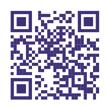
proving wellbeing and meeting expectations for data utili
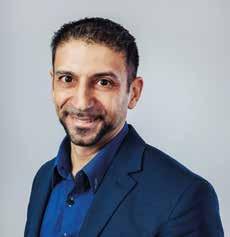

zation and treatment efficacy
Entrepreneurship: Foster an entrepreneurial culture within the Centre to promote translation of research and enhance the innovation potential.
We work in the six domains which approximately map to six research groups which comprise Sano’s research core.
1. Health Informatics
2. Computer Vision
3. Modelling & Simulation
4. Extreme-scale Data and Computing
5. Personal Health Data Science
6. Clinical Data Science
We also work on VR and robotics solutions as well as on wearable sensors to detect health conditions and monitor patients’ wellbeing. In Esperanto, Sano means “health”. Discover what do we do, what do we believe and why should you consider to join our team!

The flow of information in healthcare is critical for its efficient operations. In Healthcare Informatics Group in Sano (HIGS) we develop computational methods to improve medical information flow in medicine.
We are aiming at bridging machine learning and clinical neuroscience making a loop. In particular, we want to use modern tools from machine learning, optimization, quantum computing to shed some lights into complex diseases as Alzheimer's, stroke and glioblastoma.

In recent years, we have witnessed a huge development of methods of acquitting data on patients, and medical records, from both individual and population perspectives. If we fail to make use of these methods, the wealth of patients data and medical records, which we are collecting, will be wasted.
Sano provides an opportunity for young researchers to conduct research in computational medicine as a part of the international, multi-disciplinary PhD programme. PhD programme at Sano means crossing the border between medicine, computer science and biomedical engineering, it grants an amazing opportunity for Students to be involved in international collaborations, both academic and industrial.
Sano collaborates with partnering universities (including University of Sheffield, AGH University of Science and Technology in Kraków, Collegium Medicum of Jagiellonian University in Kraków, University of Amsterdam) and other eligible institutions that will conduct the formal procedure of granting the PhD degree.
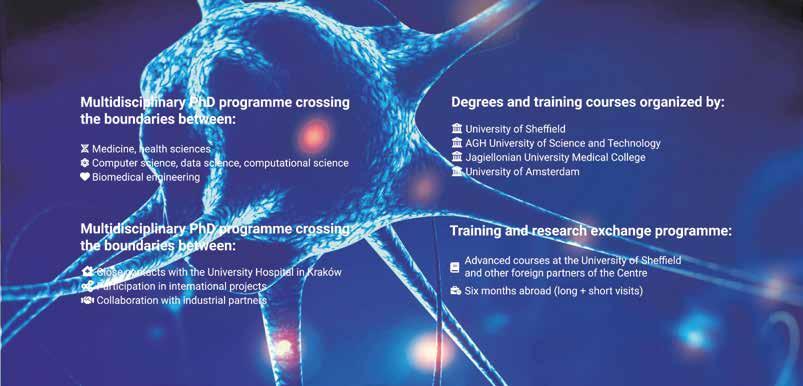


Check more at Sano Science website!
We have also open positions for PhD Students, f.eg.:
w Data abstractions as the foundation of machine self-learning from different data sources
w The Role of Neurocardiac Interaction in Arrhythmic Digital Twin Hearts
w The Role of Structural and Functional Heterogeneity in Digital Twin Hearts


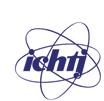
The Graduate School is run by two of the leading research institutions in Poland, which are engaged in research programs supported by over 100 research grants, funded by the National Science Centre (NCN), the National Centre for Research and Development (NCBiR), the Polish National Agency for Academic Exchange (NAWA), as well as Horizon 2020 and other national and international organisations. This research is carried out in partnership with international centres and collaborations such as CERN, DESY, T2K, Super-Kamiokande, KM3-net, JEMUSO and others. NCBJ is also an official research partner of the European Union’s Joint Research Center (JRC).

We offer a wide range of options for undertaking cutting-edge research in Physics or Chemistry including Astrophysics, Cosmology, High Energy Physics, Nuclear Physics, Radiochemistry and Radiobiology.



We currently supervise 45 doctoral students from 10 countries around the World.
More details at: https://gradschool.ncbj.gov.pl/
We're not just world-famous for science. To conduct experiments of this scale and importance, we need the very best talent in every part of our organization. Which means, if you're a student, a graduate, just starting your career or an experienced professional; if you're interested in joining our Technical or Support teams or if you're an engineer or professional in any area from mechanics to accounting, this is more than an opportunity to start or develop your career: it's an opportunity to develop knowl-edge and science on a global scale.
In fact, it's an opportunity like nowhere else on Earth.
https://careers.cern

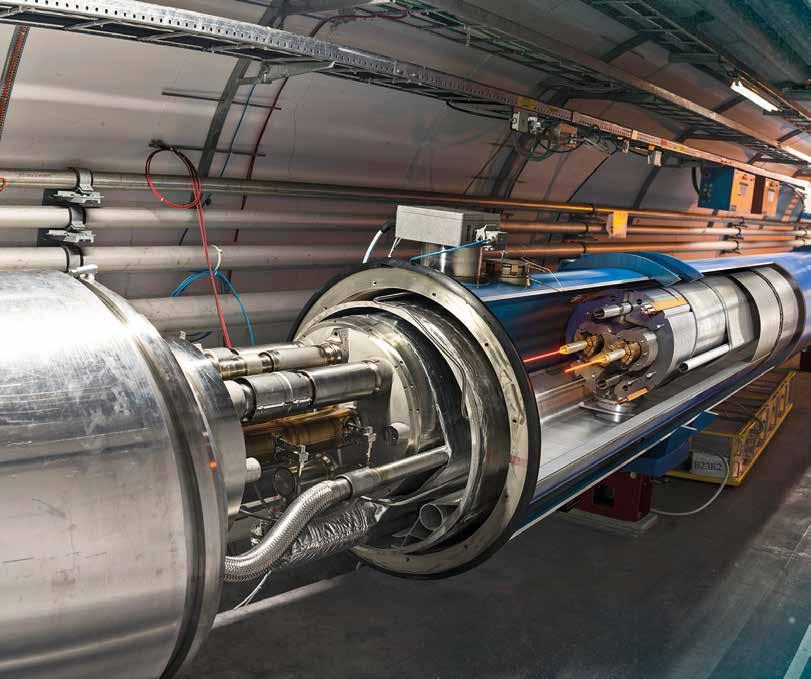
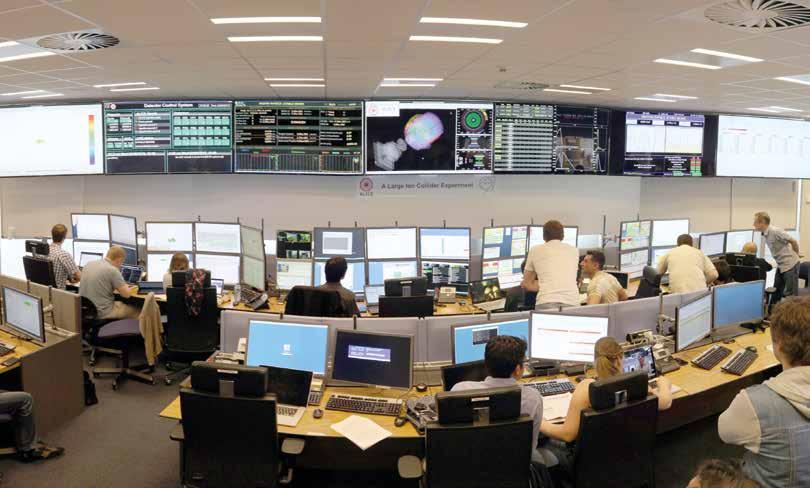


The Technische Universität Bergakademie Freiberg is a modern university of resources and research. With its unique profile it ranks among the most recognised higher educational institutions in Germany. Strong academic disciplines work together on the urgent future topics of today: the sustainable, secure and efficient supply of resources, materials and energy.

The TUBAF is the oldest university for mining, metallurgy and materials science in the world. Today, its science- and technology-oriented research fields encompass the entire value chain – from the exploration of new deposits to the development of alternative energy engineering and materials to recycling.
In order that innovative ideas can quickly utilize economically, our university also supports the spin-off of new enterprises. Through close collaboration with institutions of regional and supra-regional business development as well as the start-up network SAXEED, the TUBAF has been certified as role model by German Association of Sponsors of Arts and Science.
The TUBAF considers the support of young academics as one of its most important responsibilities. The Graduate and Research Academy keeps available for all doctoral candidates of the university special offers for the development of their scientific career. Its multifaceted consulting service is used especially by the doctoral candidates from abroad. State-of-the-art labs and pilot plants allow top level research at the highest international stage. As a campus university, the university provides short distances, spatial proximity and the shared use of special facilities. This supports the collaboration between faculties and fosters interdisciplinary research projects.
The TUBAF is certified as family-friendly university and has signed the “Charter Family in University” and thus joined the “Best Practice Club” of family-oriented German universities.
If you are aiming for a doctorate at the TUBAF, you can start your research here: https://tu-freiberg.de/en/grafa
With a postdoctoral fellowship from the Academy of Finland, Dr. Katja Heise as a visiting scientist at the Institute for Electronics and Sensor Materials (IESM) of TU Bergakademie Freiberg develops innovative materials made of nanocellulose and nanochitin.
“I am a networker. I enjoy working with colleagues across countries and disciplines on new scientific approaches. Networking is essential for researchers in the early stage of their careers”, says the young scientist, who normally researches at Aalto University in Finland. Until March 2022, she would like to transfer her knowledge on biopolymers from renewable raw materials to Freiberg and, together with the team around Prof. Yvonne Joseph, develop new membranes and sensors made from cellulose and chitin.

“The contact came through my doctoral supervisor Prof. Steffen Fischer at TU Dresden”, says the food chemist. Since her time as a graduate student, she has been interested in the question of how wood and plant components can be used as starting materials for industrial applications. To do this, she specifically changes the chemical structures and properties of the bio-nanomaterials creating innovative materials with tailored properties. The water-binding cellulose becomes, for example, a sensor that can display moisture even at low concentrations. “The surface conductivity of modified nanocellulose can be used specifically in sensor technology. The mechanisms behind are currently a very popular topic internationally!” says Dr. Katja Heise. In the future, bio-based materials could reduce the proportion of mineral raw materials in sensor applications or replace them completely. Due to their flexibility, biopolymers are also used in portable sensors or energy generators, so-called “electronic skins” or “wearables”.
Dr. Katja Heise has brought the building blocks for the design of the new bio-based materials from Finland to Germany. “At Aalto University, my colleagues and I produce nanomaterials from wood or plant components in the laboratory. Here at the IESM, the materials meet the expertise in sensor and membrane technology as well as great measurement techniques and can, thus, develop their full potential,” says the visiting scientist. “Together with the team, we integrate the bionanomaterials into material applications – with interdisciplinary and innovative concepts.”
Together with her host in Freiberg, Dr. Katja Heise is planning further joint projects and hopes for an extension of the guest stay at TU Bergakademie Freiberg. She particularly appreciates the integrative collaboration with researchers from all over the world at her home university in Finland.
Photo: private

With a scholarship from the German Academic Exchange Service (DAAD) for doctoral students from Taiwan, Tseng Shao-Chen, PhD candidate in mechanical engineering, is investigating how cracks form in advanced steel composites and what happens when the material can no longer withstand loads. At the National Taiwan University of Science and Technology, the doctoral student is creating simulations and theoretical methods for failure analyses for composite materials. “To further sharpen my profile, I was looking for an opportunity as a guest scientist at a research institution in Europe,” Tseng Shao-Chen says. He found what he was looking for at the Institute of Metal Forming of the Technische Universität Bergakademie Freiberg: “The laboratory of the Steel & Heavy Metals Group offers the unique opportunity to subject steels to various loading conditions. With the help of the experiments, I can validate the findings obtained via computer simulation and use them to create a model for making predictions about the material’s strength” explains the doctoral student, who is about to complete his PhD soon. “I am particularly interested in the circumstances under which the formation of a crack begins.”
“The team around Prof. Ulrich Prahl is more international and subject-specific than I am acquainted with from my home university in Taipei,” says Tseng Shao-Chen. In his opinion, this allows research questions to be solved more quickly. He also appreciates the inviting atmosphere at the institute, the university and the small town of Freiberg: “I am happy to be able to exchange ideas with colleagues from various nationalities. Also, I really enjoy being able to ride my bike to work“, he stated.
The start-up “Additive Drives”, founded in 2020 in Dresden, has developed a process for manufacturing high-performance electric motors using 3D printing methods. Among the four company founders are a graduate and a doctoral student of the TUBAF.
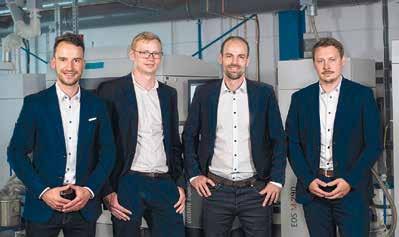
With their products, the engineers achieve an optimal adaptation of the electric motors to their respective requirements at the place of use and an increase in performance of up to 45 percent compared to motors from conventional production.
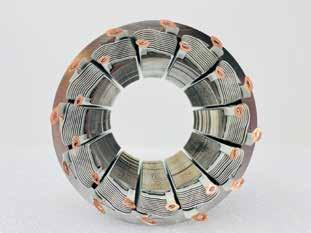
The founding team owes its know-how, among other things, to the education at the TUBAF in the degree course “Automotive Construction: Materials and Components” as well as the student project “Racetech Racing Team”, in which electric racing cars are designed and manufactured for the international competition “Formula Student”. Actually, TUBAF’s Racetech Racing Team holds the 4th place in the Formula Student World Ranking.
 Damage zones in stress field. Source: Qayyum, F., Umar, M., Guk, S., Schmidtchen, M., Kawalla, R., & Prahl, U. (2021). Effect of the 3rd dimension within the representative volume element (rve) on damage initiation and propagation during full-phase numerical simulations of single and multi-phase steels. Materials, 14(1), 42.
Damage zones in stress field. Source: Qayyum, F., Umar, M., Guk, S., Schmidtchen, M., Kawalla, R., & Prahl, U. (2021). Effect of the 3rd dimension within the representative volume element (rve) on damage initiation and propagation during full-phase numerical simulations of single and multi-phase steels. Materials, 14(1), 42.
3Dprinting for a more powerful electric motor
Max Delbrück Center for Molecular Medicine (MDC) in the Helmholtz Association invites applicants for PhD positions. Are you passionate about understanding the molecular basis of health and disease, and translating your findings into clinical applications? Are you interested in one of the following topics?
• Cardiovascular research and metabolic diseases
• Cancer and immunology
• Neuroscience
• Model systems and organoids
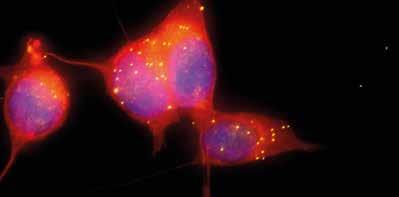
• Medical systems biology
• Computational biology and bioinformatics
• Omics data science
• Mathematical modeling
• Imaging and MRI
• Translational research
JOIN US!
At the MDC, we believe that to be a great scientist, one needs to train a diverse set of competences. To support our PhD researchers to develop both personally and scientifically, we offer a structured PhD program in a research-intensive atmosphere, including:
• Excellent scientific, international and supportive environment
• Individual PhD supervision and mentoring
• Advanced scientific, research-related and methods training
• Access to state-of-the-art infrastructure
• Regular lectures and seminar series
• Framework program for personal and career development
• Participation in PhD symposia and retreats
• Travel grants for external courses and conferences
Students may join our MDC-NYU PhD Exchange Program in Medical Systems Biology, or become associated with the interdisciplinary HEIBRiDS Data Science School. The working language of the program is English.
• You are an enthusiastic student with a strong interest in Life Sciences
• Your degree is in biology, biotechnology, medicine, molecular medicine, chemistry, computer science, engineering, mathematics, physics or a related field
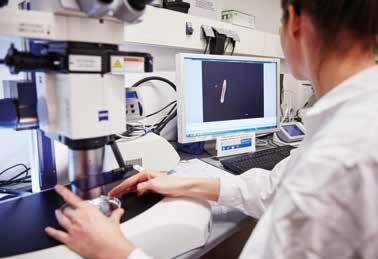
• You hold or expect to obtain a Master degree not later than August 2020
We are committed to meet today’s challenges in biology and medicine and realize that excellent science requires outstanding researchers. If you aspire to be one of them – welcome to the MDC!
Apply by January 12, 2020. How to apply? Via our online recruitment portal! Applications via email can unfortunately not be accepted. Successful candidates will start their PhD between April and September 2020.
For more information, visit our page https://www.mdc-berlin.de/application
Berlin is one of the most vibrant cities located in the heart of Europe. It offers an incredible load of entertainment, cultural and recreational activities. If you enjoy working in an interdisciplinary environment, producing cutting-edge research, come and join our international community in Berlin, Germany!
MDC and HEIBRiDS Data Science School adhere to principles of responsible research, good scientif -
or the participating Einstein Center Digital Future (ECDF) partner universities:
• Technische Universität Berlin (TU)
• Charité - Universitätsmedizin Berlin
• Freie Universität Berlin (FU)
• Humboldt-Universität zu Berlin (HU)
The Helmholtz Einstein International Berlin Research School in Data Science (HEIBRiDS) invites applications for PhD fellowships in a collaborative research environment across disciplinary borders. HEIBRiDS projects combine Data Science with applications in Molecular Medicine, Materials & Energy, Earth & Environment, Geosciences and Space & Planetary Research and topics belong to one or more of the following areas:
• Machine Learning & Deep Learning

• Data Management
• High-throughput Data Analytics
• Mathematical Modelling
• Imaging
Research will be conducted at one of the partner Helmholtz Centers in the Berlin region:
• Max Delbrück Center for Molecular Medicine (MDC)
• Deutsches Elektronen-Synchrotron (DESY)
• Helmholtz-Zentrum Berlin (HZB)
• German Research Centre for Geosciences (GFZ)
• Alfred-Wegener-Institut (AWI)
• German Aerospace Center (DLR)
ic practice, openness and transparency, and are committed to setting a good example as a scientific environment where scientists can flourish and grow, independently of their national or ethnic background, functional variation, sex / gender identity / alignment / orientation, family configuration, or other such feature of their persons or contexts.
• Cutting-edge research in data science under close supervision of a team of two mentors
• Four-year fully-funded fellowships (E13 TVöD or TV-L)

• Integrated training curriculum of scientific and professional skills courses taught in English
• Financial support for conferences and collaborations
To apply, a master's degree in quantitative sciences (Computer Science, Physics, Statistics or Mathematics) or related applied field (Bioor Geoinformatics etc.), awarded by July 2020, is required.
Apply by February 7, 2020, via the online HEIBRiDS application portal (the portal will open on December 20, 2019). Detailed description of the available doctoral projects can be found here upon registration to the application portal. Successful candidates will start their PhD between July and October 2020. For more information, visit our webpage:
www.heibrids.berlin
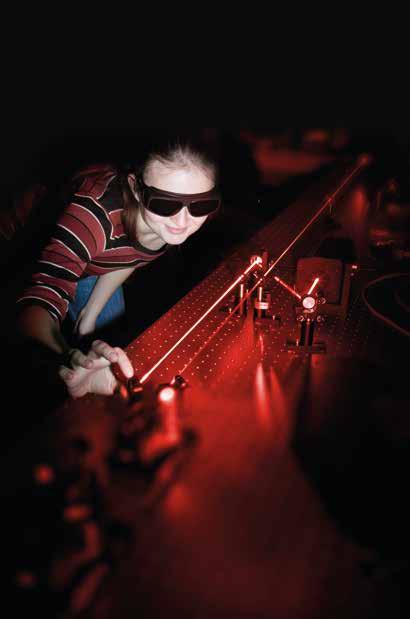



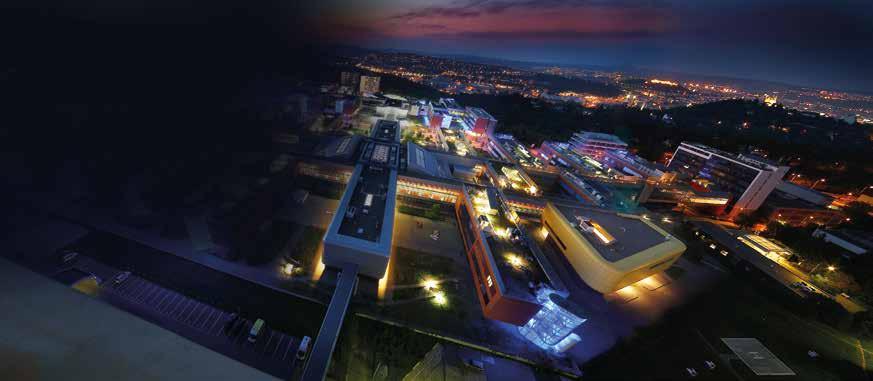
DO YOUR RESEARCH IN WELL-EQUIPPED LABORATORIES IN A NEW MODERN CAMPUS! GET PHD AT FACULTY OF MEDICINE, MASARYK UNIVERSITY! SPEND YOUR STUDIES IN “CENTRAL EUROPE’S MOST
PhD studies at the Faculty of Medicine of the Masaryk University are among the most prestigious and the best at the University and in the Czech Republic. In 2020, the University was ranked in the top ten universities in the QS Emerging Europe and Central Asia Ranking.
Faculty of Medicine offers FREE OF CHARGE PhD studies in English language in study programmes which cover almost the entire spectrum of biomedical sciences and clinical medicine:
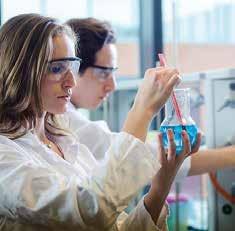
Anesthesiology, Intensive Medicine and Pain Management
Call
■ Bioethics
■ Biomedical Sciences
■ Dentistry and Otorhinolaryngology
NEED MORE INFORMATION?
CHECK THE WEB:
■ Imaging Methods and Medical Physics
■ Hygiene, Preventive Medicine and Epidemiology
■ Internal Medicine
■ Medical Microbiology, Immunology and Pathology
■ Neurosciences
■ Oncology and Hematology
■ Paediatrics
■ Pharmacology
■ Physiology, Pathological Physiology, Medical Chemistry and Biochemistry
■ Surgery and Reproductive Medicine.
www.med.muni.cz/graduate www.med.muni.cz/en
Technische Universität Dresden (TUD) focuses on interdisciplinary teaching, cooperation with industry and has much to offer for international students
Agata Blinkiewicz: Having 18 faculties, TUD is one of the largest technical universities in Germany. How many programmes do you offer?
Julia Paternoster, TUD: We are a comprehensive university with 5 schools that offer more than 120 degree programmes, both on undergraduate (Bachelor’s, Diplom) as well as on graduate (Master’s) and PhD level.
Is there a stronger focus on specific subjects?
Traditionally, TU Dresden as the name conveys, has its roots in the period of industrialisation in Europe, so the subjects we are most known for are within the area of STEM subjects, i.e. engineering, technology and natural sciences. But more importantly, TUD’s strong suit also lies within a focus on interdisciplinary teaching and the idea to include other scientific approaches to a problem or involve researchers from other fields, such as arts and humanities.
Since 2012 TUD has officially been one of the "Universities of Excellence". How can students benefit from it?
TU Dresden is one of eleven universities in Germany that currently are allowed to carry that title. Our students benefit indirectly, for example: TUD has been able to attract several highly sought after researchers – to research, teach and work in Dresden. Furthermore, new labs have been built and new graduate schools and research clusters have been funded.
And what does make research projects at TUD special?
TUD heavily focuses on interdisciplinary research, i.e. it strives to not only focus on one single subject but our scientists try to think outside the box and work together with other fields at the university.
Are there any facilities for young researchers?
DRESDEN-concept (a strong local research alliance) provides the perfect background for young researchers, especially since Dresden is one of the few cities in Germany that is so densely populated with non-university public research organisations, such as Fraunhofer Institutes, Max Planck Institutes, Leibniz Association or Helmholtz Centres. Furthermore, TUD itself also has several support services for its young researchers, like a graduate academy for our PhD students that offers guidance and counselling in regard to funding, academic skills and career paths.
Do you have a special university offer for international students? Do you have programs taught in English?
TU Dresden currently has about 5000 international students and together they form about 14,5% of our student body. Many of them are enrolled in German taught programmes as all our undergraduate programmes are taught in German. But more and more are studying for English taught Master’s degrees at TU Dresden. We currently have 14 English taught Master’s programmes. See: http://tu-dresden.de/masters-in-english
Dresden is not far from Poland. How many Polish students study at TUD?
TU Dresden historically has very strong bonds with partner universities in Poland and has had many students from Poland over the years. Currently, we have about 110 students from Poland.
If you were to name three most important things about TUD, what would they be?
Location! The city of Dresden is unique in what it has to offer to anyone living in it in terms of quality of life, the value you receive for your money and the overall opportunities the city has to offer to students in regard to culture and leisure time.
Quality of studies! Of course not all programmes are equally outstanding, but specifically, if you are interested in STEM subjects, engineering and sciences, or also in Medicine or Psychology, TUD has excellent conditions for your studies with a great variety of specialisations to choose from and a lot of opportunities for hands-on work on real projects due to all the industry partners.
Internationalisation. TU Dresden has undergone a lot of change over the years and currently offers as many opportunities for a stay abroad like never before.
Is studying at TUD tuition-free?
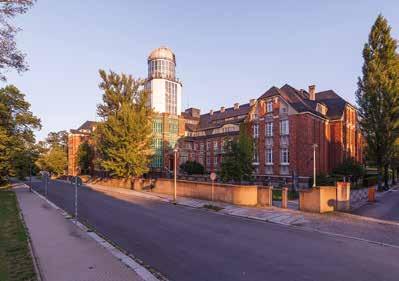
TU Dresden is a public university in Saxony and therefore does not charge any tuition fees. The only payment that has to be made by all students is a so-called semester contribution which is common in all German universities, that mainly covers the costs for a public transport ticket in Dresden and for regional trains all over Saxony for the whole semester.
When is the nearest application period?
Most degree programmes start in winter only. The application deadline for the winter term for EU nationals usually is on July 15th. Check it here: http://tu-dresden.de/sins
Excellent study conditions, a great variety of specialisations, a lot of projects with industry partners
he Swiss Nanoscience Institute (SNI) at the University of Basel (Switzerland) funds nanoscience research as part of an interdisciplinary degree course and a PhD program. Undergraduate and graduate students are integrated into a broad and lively research community working on cutting-edge topics in nanoscience and nanotechnology, embedded in classical disciplines such as physics, chemistry, biology, medicine, and engineering.
In the SNI PhD School, students from all over the world work on a diverse range of projects, for example on quantum computing, spintronics, molecular electronics, quantum sensing, nanoscale materials, nanocontainers for medical applications, solar cells, single-cell proteomics, nanofluidics devices, and many more. An established selection process involving external and internal senior scientists ensures excellent PhD projects.

The graduate students form part of the SNI community with regular opportunities for personal development and scientific exchange within the whole SNI network, including all research institutions in Northwestern Switzerland and various industry partners. In addition, doctoral students participate in tailormade courses to improve personal development and skills such as scientific writing, communication, and presentation techniques. Small working groups guarantee personal and individual supervision.
Excellent and motivated graduate students from all natural science disciplines with a curiosity for other fields are very welcome to apply for PhD positions. Information on new positions in the SNI PhD School and the online application tool are available from September – December every year at:

Five doctoral schools at Nicolaus Copernicus University (NCU) offer a unique experience to graduate students from all over the world, including the opportunity to conduct research with leading academics in state-of-the-art laboratories.
The modern study programmes equip PhD students with the highest qualifications in a chosen scientific field. Doctoral schools support candidates in the preparation of their doctoral theses and teach them how to share the knowledge.
Doctoral students experience a lot of freedom to investigate problems of their interest, either their work is curiosity-driven or challenge-led.
NCU doctoral schools offer all young researchers a vibrant, international, friendly and multidisciplinary environment in the beautiful medieval city of Toruń, Poland, a member of the EU.
w NCU belongs to an exclusive club of top 10 research universities in Poland.
w Polish PhD diploma is internationally recognised.

w We offer a stipend to every admitted PhD candidate.
• Modern facilities and labs at your disposal.
• You will have a lot of scientific freedom and top quality mentoring.
• You may apply for your own small research grants.
• You will meet loads of friendly people and make life-long friendships with fellow students from all over the world.
• NCU provides decent students houses.
• Toruń is a perfect place for culture vultures with stunning Gothic architecture and picturesque streets. Food is excellent and inexpensive.
• Toruń is well served by railways and the A1 motorway, only a 3-hour drive to Warsaw and a 5-hour drive to Berlin.
Interdisciplinary Doctoral School - explicitly focused on INTERDICIPLINARITY
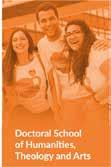
At Academia Copernicana Interdisciplinary Doctoral School doctoral students cut across disciplinary boundaries and break with well-established research patterns by taking innovative interdisciplinary approach. The school offers an international programme for PhD education with top-notch research and scientific activities fully run in English. Classes are enriched with summer schools, international workshops, and supervision of projects also by foreign scientists. Furthermore, international internships and courses delivered by visiting professors drive advancement in education of PhD students. Academia Copernicana offers a wide variety of disciplines, a combination of those listed in other schools. academia.copernicana@umk.pl
Doctoral School of Humanities, Theology and Arts provides doctoral students with an opportunity to gain expertise and comprehensive knowledge within the following disciplines:
• archaeology
• theological studies
• philosophy
• conservation of works of art
• history
• studies in art
• fine art
• linguistics
• literature studies
The curriculum, based on three pillars: specialisation, internationalisation and interdisciplinarity, consists of basic tutorials and seminars, professional skills improvement classes, and experts’ lectures. Furthermore, an established individual research plan obligates the students to complete at least one-month scientific internship in a foreign scientific institution.
aah@umk.pl
Doctoral School of Medical and Health Sciences sets the framework for international and innovative doctoral study programme offering education in medical and health sciences in 3 disciplines:
• pharmaceutical sciences,
• medical sciences,
• health sciences.
The school aims to provide systematic, efficient, and high-quality doctoral training to prepare doctoral candidates for professional careers in research and other positions of high expertise. In addition, the PhD programme is conducted in Polish and English whereas the curriculum includes a wide variety of practicals, seminars, and scientific symposia. szkola.doktorska@cm.umk.pl
Doctoral School of Exact and Natural Sciences (AST) is an ideal choice for those who wish to earn their doctorates in the following disciplines:
• astronomy
• mathematics
• biological sciences
• physical sciences (physics, biophysics)
• chemical sciences
• Earth and environmental sciences
At AST doctoral projects are run by the most prominent professors and usually are parts of external research grants. The majority of PhD students participate in international collaborations. Many projects are linked with the University Centers of Excellence (IDUB initiative) with some extra funding opportunities. AST appropriates mini-grants allowing for short-term internships in foreign labs. Moreover, the school provides opportunities, through and outside the curriculum, for soft skills enhancement and career preparation. ast@umk.pl
Doctoral School of Social Sciences (ARS) aims at fostering the academic development of PhD students who strive to deepen their knowledge and purse a doctoral degree in social sciences within the disciplines of:
• economics and finance
• political and administration studies
• management and quality studies
• law
• sociology
• pedagogy and educational studies

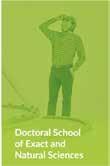
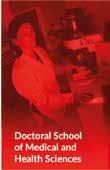
• social communication and media studies
• cognitive sciences
• security studies
• social geography and spatial management
The teaching staff of ARS provides lectures, tutorials, and seminars conducted in Polish and English. Key courses, such as the course in writing scientific texts, are conducted by prominent scientists from abroad. ars@umk.pl
Decide quickly and apply!
We will be proud to have you on board. Admission for Doctoral School Studies programmes is competitive. Each school has different application requirements and deadlines, even in June. Please refer to school websites for more detailed information: www.phd.umk.pl/en/
You may also check our Practical Guide for PhD students: https://www.ac.umk.pl/panel/wp-content/uploads/PRACTICAL-GUIDEfor-international-PhD-students-NCU-Torun-Bydgoszcz-horizontal.pdf
Doctoral Schools at Nicolaus Copernicus University in Toruń Gagarina 11, 87-100, Toruń, Poland



www.phd.umk.pl/en/
The leading scientific research centre – NCU was granted research university status for 2020–2026.
NCU was granted HR Excellence in Research award in recognition of progress in creating an environment for research, training, and career development of researchers.

Inquiries: trawicka@umk.pl or ast@umk.pl STER /Nawa (www.ac.umk.pl/nawa-ster/)
www.umk.pl/en/
NCU is the full member of the YUFE consortium (www.umk.pl/en/yufe/).IDEAS NCBR is a new, located in Warsaw, AI innovation center that will give you an opportunity to lead your own scientific project and test ideas. We support the development of employees by engaging them in ambitious R&D projects. Working with us, you will have the opportunity to build an extensive network in the scientific community and collaborate with recognized experts from around the world.
We have new job openings:
IDEAS NCBR is a research program in AI and digital economy. We believe that our center will become a discussion platform between academia and business. We want to cooperate with doctoral schools and provide sponsoring and mentoring program to support academia’s educational offer. We aim to provide high-quality working environment by creating interesting employment conditions and leading mentoring program. We support researchers to deliver the high-quality R&D projects by providing necessary tools, and creating networking opportunities that can become a milestone in building your scientific career or testing your innovative ideas. It will give you a chance to carry out an independent project, focus on solving problems and experience interesting challenges. So far, we were able to form an incredible scientific board that consists of the best experts representing AI researchers and business environment. We also created two research groups led by Piotr Sankowski, and Stefan Dziembowski that will focus on blockchain, intelligent algorithms and learned data structures. Our mission is to become the biggest AI research center in Poland.

We are constantly looking for new talents. If you’re a student or graduate of Mathematics, Informational Technology, or Computer Science and you want to continue your scientific career or have an idea for your own research project please send us your resume and more information about the project –jobs@ideas-ncbr.pl
– let’s meet and talk!
We offer:
• doctoral schools sponsoring;
• mentoring during studies;
• research-friendly environment;
• cooperation with recognized experts.
Required documents:
• curriculum vitae;
• summary of professional accomplishments, including the description of research interests, achievements, and research goals.
Deadline for submissions 31.03.2022
You will conduct research and development works related to such issues as:
• the use of IT tools in the digital economy;

• learning data structures;
• data science algorithms;
• development of blockchain and decentralized finance (DeFi) technologies;

• works on blockchain smart contract systems;

• formal verification of the security of blockchain-based protocols.
We offer:
• participation in AI conferences;
• networking possibilities;
• cooperation with the world class experts in AI.
Deadline for submissions 31.12.2021
We offer you:
• a chance to create own research team;
• a chance to conduct own scientific research;
• financing of AI conferences participation;
• networking possibilities.
Required application documents for postdoc and research team leader positions:
• curriculum vitae;
• summary of professional accomplishments, including the description of research interests, achievements, research goals;
• copy of the diploma/diplomas confirming education;
• list of publications and description of scientific achievements.
Deadline for submissions 31.12.2021
OUR GOALS:
RESEARCH – IDEAS NCBR is a new doctoral science and research program in the area of digital economics and artificial inteligence. Our mission is to conduct pioneering research by the team of highly qualified researchers focused on the practical application of results in business and industry.

DEVELOPMENT – our research program has been developed jointly with the industry partners and the scientific advisory board. Practical application of the implemented projects results and their later commercialization are our priorities.
INNOVATIONS – we create a place where breakthrough projects are created. Our research answers the challenges facing the industry and changes in the social and business environment.
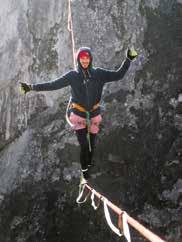

WE OFFER:
KNOWLEDGE – Working at IDEAS NCBR, you cooperate with the best scientists conducting research in the field of artificial intelligence, who ensure the highest substantive level and quality of conducted research projects.
DEVELOPMENT – Working with the most recognized authorities, you may improve your qualifications and have a chance to participate in ground-breaking research. Such an opportunity can also be a catalyst for the development of a research career.
COOPERATION – Our task is to create a working environment that supports creativity and innovation. At IDEAS NCBR we enable you to work in an international environment. It is an opportunity to exchange ideas, cooperate and establish relationships with experts from around the world.
BUSINESS OPORTUNITIES – The projects of individual research groups have a high potential for commercialization. The academics who co-create them will be the beneficiaries of this process.
The world is constantly changing. We believe that we will create the future together. Our ambition is to be the largest Polish innovation center in the field of artificial intelligence. Join our team!

Why it’s worth to work with us?
“Hey, I’m Mathieu. After completing my PhD in Paris, I came to Warsaw to do a postdoc in IDEAS NCBR. So far, my research focuses on the design and analysis of combinatorial algorithms. Here, in IDEAS NCBR, I can continue to work on my favorite research topics, but at the same time, thanks to the presence of experienced and friendly people, I can discover new areas of expertise and begin new projects related to Artificial Intelligence. I believe I have found at work, as in my personal life, the perfect balance I was planning for my research career” – Mathieu Mari, postdoc, IDEAS NCBR.
The Graduate School of Quantitative Biosciences Munich (QBM) has open PhD Positions for students with a background in biochemistry, biology, bioinformatics, physics or applied math and an interest in conducting interdisciplinary research at the interface of experiment and quantitative theory.

The Graduate School seeks to prepare young life scientists for the emerging era of quantitative, systems-oriented bioscience. It provides an innovative, international PhD training program that bridges the di -
vide between traditionally separate disciplines, from biochemistry and medicine to bioinformatics, experimental and theoretical biophysics, and applied mathematics. While maintaining a strong command of their ‘home’ discipline, QBM students will become well versed in multiple approaches and styles of thought and learn to communicate and work effectively with scientists from different backgrounds.
Key elements of the QBM program are:
• an interdisciplinary research project
• a substantial program of formal course work with a general and an individual component, centered around an interdisciplinary core course that covers key problems in bioscience from multiple perspectives

• a multi-facetted mentoring and professional skills program designed to promote students’ growth as independent scientists
QBM is a joint initiative by leading scientists from the Ludwig-Maximilians-University Munich, the Max-Planck Institute of Biochemistry, the Helmholtz Center Munich, and the Technical University Munich. Research within the School encompasses the entire range of approaches brought to biological questions today, with a thematic focus on the problem of gene expression in all its facets.
For more information and to apply, visit us at www.qbm.genzentrum.lmu.de
„QBM stwarza świetne możliwości rozwoju naukowego. Wieloaspektowy program nauczania umożliwia łatwą i szybką adaptację w środowisku naukowym oraz sprawną pracę nad interdyscyplinarnym projektem badawczym. Ponadto program ułatwia dostęp do najnowszych technik badawczych, takich jak superrozdzielcze techniki mikroskopii fluorescencyjnej czy najnowsze metody sekwencjonowania DNA, co związane jest również z przyswojeniem specjalistycznej wiedzy w zakresie ich zastosowania. QBM jest świetnym międzynarodowym środowiskiem naukowym i znakomitym pierwszym krokiem w drodze do wysokiej klasy kariery naukowe”.
„Wybrałam QBM ponieważ był to jeden z niewielu programów studiów doktranckich w Europie, który oferował interdyscyplinarne projekty badawcze i kładł duży nacisk na wykorzystanie najnowszych technologii i metod ilościowych. Zależało mi szczególnie na tym, aby zdobyć doświadczenie z technikami wykorzystującymi sekwencjonowanie genomów, takimi jak RNA-seq, MNase-seq czy DNase-seq, nie tylko na etapie pracy laboratoryjnej, ale rownież na pózniejszym etapie przetwarzania danych i analizy statystycznej. Dzięki szerokiej ofercie wykładow i kursów ze statystyki i programowania, jak i bliskiej współpracy pomiędzy grupami badawczymi, program QBM zdecydowanie spełnił moje oczekiwania i pozwolił na odkrywanie nowych dziedzin nauk biologicznych.

Do you want to …
… earn a PhD, building on your training in biochemistr y, biology, physics, or applied maths?
… conduct cutting-edge research at the interface of experiment and quantitative theor y?
… learn how to communicate and work with scientists from di erent fields?
The Graduate School of Quantitative Biosciences Munich is funded by the German Excellence Initiative and seeks to prepare young life scientists for the emerging era of quantitative, systems-oriented bioscience. It provides an innovative, international PhD training program that bridges the divide between traditionally separate disciplines, from biochemistry and medicine to bioinformatics, experimental and theoretical biophysics, and applied mathematics.
Key elements of the program are an interdisciplinary research project, and an educational curriculum with primer courses and an intensive core course that integrates a wide range of approaches to biological problems. A multi-facetted skills program suppor ts the students’ growth as independent scientists.
mentoring and professional
For more information and application deadlines, visit us at
www.qbm.lmu.de

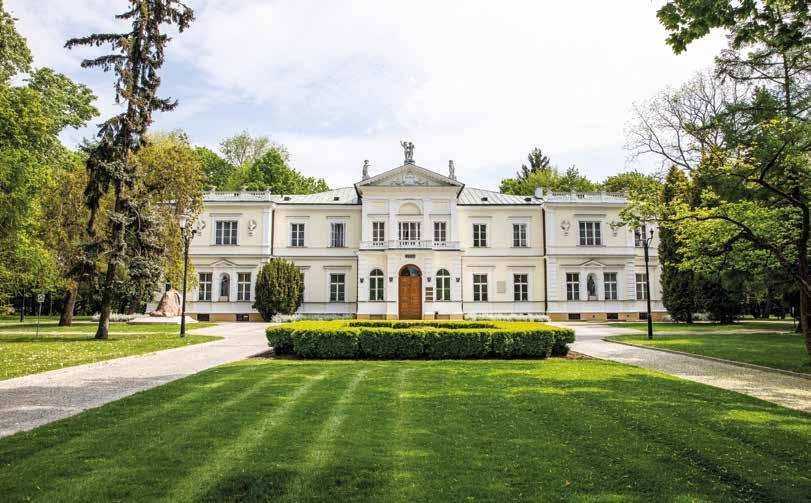
Agata Rzeszuto: How is education of doctoral students organised at Warsaw University of Life Sciences?

Justyna Franc-Dąbrowska, Assoc. Prof., Ph.D., Manager of the Doctoral School of Warsaw University of Life Sciences: Education of doctoral students at Warsaw University of Life Sciences is conducted at the general academic, multidisciplinary Doctoral School. The School comprises an educational path for all doctoral students as well as specialist paths corresponding with particular fields of study/disciplines.
The first stage of study is identical for all doctoral students who follow a common educational path – enabling integration and exchange of experience. In agreement with supervisors, doctoral students commence specialist education appropriate to their Ph.D. theses by participating in seminars and work of particular Institutes.
How is the second stage of study arranged?
The second stage of education is partly shared by all doctoral students, and partly pursued within specialist paths of study.
Added value of common studies lies in their open formula, ensuring both continuous development of doctoral students and evolution of the school in line with changing educational needs of subsequent years of students. The shared part of education is expected to foster interdisciplinary perception of academic problems by doctoral students, as well as integration of the academic community.
What fields of study are available for completing the doctoral studies?
At present, 39 doctoral students are pursuing studies in 10 academic fields of study at the Doctoral School of Warsaw University of Life Sciences. These are:
• Field of agricultural sciences – disciplines: forestry sciences, agriculture and horticulture, food and nutrition technology, veterinary medicine, zootechnics and fishery.
• Field of engineering and technical sciences – disciplines: civil engineering and transport, mechanical engineering, environmental engineering, mining and power engineering.
• Field of social sciences – discipline: economics and finance.
• Field of exact and natural sciences discipline: biological sciences. In the upcoming recruitment cycle, we are planning to accept 80 doctoral students in 11 disciplines, including in the field of engineering and technical sciences – in the discipline of information and telecommunications technology.
Within this limit, we are prepared to recruit English speaking Ph.D. students.
Do you cooperate with foreign institutions?
Making the Doctoral School an international institution is one of our priorities. We educate foreign Ph.D. students, beneficiaries of the National Agency for Academic Exchange’s scholarships. Moreover, the syllabus provides for classes in English which – despite the difficult epidemic situation in Poland – were conducted via an online platform. The course entitled “Academic Writing in English” was taught as practical classes by Professor Josu Takala of the University of Vaasa. Moreover, a two-hour seminar of a lecturer of the University of Pisa – Gaia Bertarelli, Ph.D. was conducted, and our plans include a twohour seminar with Professor Francesco Bussato (Full Professor Ph.D. Columbia Univ., NY) – Head of PhD Program in Economics, Statistics and Sustainability.
In January 2020, I participated in a study visit organised and conducted within the project entitled “University management leaders” at Aalborg
We offer a unique combination of interdisciplinarity with advanced specialist education
Universitet in Denmark (no. POWR.03.04.0000-P007/16). During the visit, I had an opportunity to acquaint myself, among others, with the education system, including education of doctoral students, scientific development and publishing in renowned academic magazines and University ranking development.
How is the recruitment schedule organised?
The recruitment process consists of the following stages:
• the Doctoral School prepared biographical notes on its academic staff, which let candidates become acquainted with their accomplishments, scope of research and select the supervisor –the notes were published on 31 May 2020 (at the University’s website);
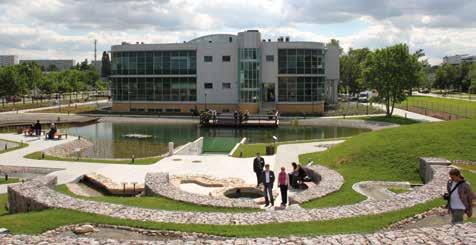
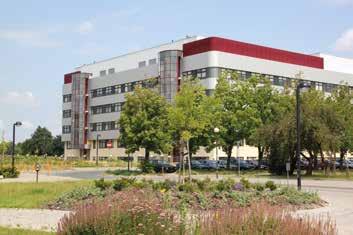
• candidates file documents at the Doctoral School secretariat from 24 August to 4 September;
• recruitment interviews at particular institutes are held on 21-25 September;
• the list of accepted candidates will be published by 30 September.
Considering the epidemic situation, the recruitment schedule may still be amended.
What are possible career paths after doctoral studies at the University?
One of the main educational objectives of the Doctoral School of Warsaw University of Life Sciences is to reconstruct academic staff resources. A generation gap is becoming noticeable in certain academic disciplines as experienced professors retire. The previous system of doctoral studies proved to be inefficient (only 20-30% theses defended successfully). I do, therefore, hope that our proposal of interdisciplinary education, involving a completely new formula of doctoral student education will allow accomplishment of scientific experiments and empirical studies, writing a monograph or a cycle of academic articles published in top ranked journals and defending their degree in a timely manner. Naturally, studies at the Doctoral School also cater for the needs of and are conducted in cooperation with entities involved in practical activity, which the University accomplishes as part of implementation based doctoral studies.
Professor, how would you encourage candidates to pursue their Ph.D. studies at Warsaw University of Life Sciences?

Warsaw University of Life Sciences is a university with over 200 years of history. In my opinion, being a member of academic community of the University which allows pursuit of Ph.D. studies in as many as 11 disciplines is an honour!

I welcomed the doctoral students who were the first to begin their studies at the Doctoral School with the words of Isaac Newton “What we know is a drop, what we don't know is an ocean”. In fact, I believe that if you wish for lifelong development combined with pursuing your academic passion, studying the unknown and contributing to global discoveries with your scientific accomplishment – you have a chance to conduct such research during your studies at the Doctoral School of Warsaw University of Life Sciences.
More at:
https://www.sggw.pl/en/science/szkola-doktorska Supervisors’ biographical notes:
https://www.sggw.pl/en/science/szkola-doktorska_/rekrutacja-2019-2020/wizytowki-promotorow/wizytowki-promotorow-2020-2021 FB: www.fb.com/107175027389569
Making the Doctoral School an international institution is one of our priorities
The Doctoral School of Warsaw University of Life Sciences is an opportunity to pursue your academic passions on a truly world class level!
Is it possible to obtain a doctorate in the field of art while studying in English? We talk about it with Jakub Jernajczyk, Assoc. Prof. of the Eugeniusz Geppert Academy of Art and Design in Wrocław, the dean of the Doctoral School at the Academy.
Alicja Mrugal: What makes the Doctoral School at the Eugeniusz Geppert Academy of Art and Design in Wrocław unique from other schools in Poland?
Assoc. Prof. Jakub Jernajczyk: Apart from the individuality that characterises practically every fine arts academy, the Doctoral School at The Eugeniusz Geppert Academy of Art and Design in Wrocław is the only doctoral school among Polish academies of art and, as far as I know, one of very few doctoral schools in Poland which provides its education entirely in the English language.
How many members of the Doctoral School are from abroad?
Currently, on Ist and 2nd year of doctoral education, we have in total 18 PhD candidates, eleven of them are foreigners. They come from all over the world, including Mexico, Brazil, Austria, Greece, Turkey and China.
How have you managed to achieve such a high level of internationalisation?
Two factors were key here. Firstly, several years of experience of The Eugeniusz Geppert Academy of Art and Design in Wrocław in running doctoral studies in English. Secondly, our Academy received a grant from The Polish National Agency for Academic Exchange (NAWA) in the STER programme – 2018 intake, which funds were entirely allocated for scholarships for foreigners, enabling us to significantly increase the recruitment limit in the first year of the Doctoral School’s functioning.
Do you also cooperate with foreign institutions?

The Academy has a very well-developed network of contacts abroad, especially with other universities and cultural institutions in the world. One of the examples of such activity, which directly concerns our doctoral students (who still study under the old doctoral programme within doctoral studies) is the recently completed international artistic project Emerging Lines, realised in cooperation with CROUS de Paris, studierendenWERK Berlin and the Latvian Academy of Arts in Riga.
Probably your PhD candidates have a part in the internationalization as well?
Yes, the PhD candidates themselves also contribute to the expansion of international cooperation. They are coming from various centers around the world, naturally, they initiate the Academy’s partnership with their home universities, cultural institutions, or local governments. One of the most recent initiatives is the cooperation agreement of a scientific and educational nature with the Municipality of Nazilli (Turkey).
What are the classes like in the Doctoral School? What does the curriculum include?
The core of the doctoral programme is the individual research plan carried out by each doctoral candidate in cooperation with the supervisor within the doctoral seminar. Substantive support for in-
The only Doctoral School among Polish academies of art, which educates entirely in English.
Our PhD students come from all over the world, incl. from Mexico, Brazil, Austria, Greece, Turkey and China
dependent creative work of doctoral candidates is provided by group classes of theoretical and workshop character, covering, among others such issues as the methodology of research works, aesthetics and theory of art, research work methodology, intellectual property management strategies, civilizational, social and ethical challenges of artistic creativity. These classes are taught by recognised representatives of the world of science and art from various academic centres in the country and abroad. It is worth noting that the dissertation prepared in the field of art is not a theoretical study, but takes the form of an artistic realisation.
Can doctoral candidates count on scholarships?
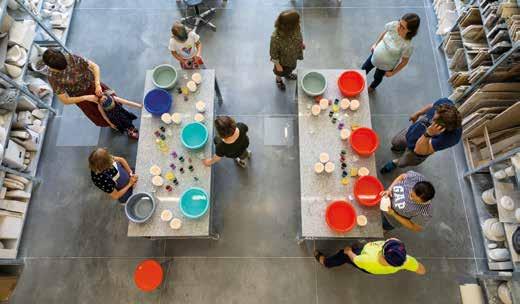
Of course. According to the new law, all doctoral candidates from doctoral schools receive high scholarships. In addition, in the case of the Doctoral School of the Eugeniusz Geppert Academy of Art and Design in Wrocław the best foreign doctoral candidates receive increased scholarships within the NAWA STER programme.
What is the schedule for the forthcoming recruitment?
At the turn of May and June on the website of the Academy of Art and Design in Wroclaw a list of potential doctoral thesis supervisors will be published. A person interested in applying to the Doctoral School should get in touch with the chosen supervisor and obtain his/her positive opinion about the planned project. In the second half of August, the electronic recruitment system will be launched, and in mid-September, interviews will be held with candidates who pass the first selection stage. A detailed description of the terms and conditions of the recruitment procedure for the academic year 2021/2022 will be available by the end of May on the website www. asp.wroc.pl, under the “Doctoral School” tab.
In formal terms, applicants are required to have a Master’s degree and a certificate of English language proficiency of at least B2. A degree in fine arts is therefore not a requirement for admission to our Doctoral School. However, it should be kept in mind that the documented artistic output is one of the main elements to be assessed in the recruitment process.
Why is it worth applying to your Doctoral School?
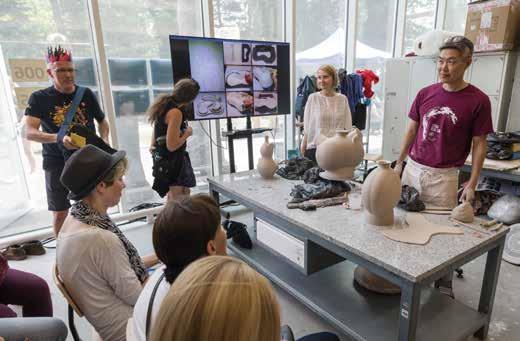
Apart from the arguments already mentioned, I would like to emphasise what, in my opinion, characterises our University as a whole, i.e. the maintenance of balanced proportions between practice and theory, respect for tradition and openness to new trends, and, finally, loyalty to the classical workshop and experimentation with new technologies. I believe that this balance is also reflected in the programme of the Doctoral School, which favours the embedding of individual artistic activity in broad cultural, scientific and social contexts.
The Doctoral School of the Eugeniusz Geppert Academy of Art and Design in Wrocław is a preparation for receiving a PhD degree in the field of art in the discipline of fine arts and art conservation. Group classes are held in English. Detailed information about the curriculum and recruitment rules can be found at www.asp.wroc.pl, under the „Doctoral School” tab.
What ambitions and plans do you have for the development of the Doctoral School in the coming years?
In the near future, we would like to apply for the next edition of the NAWA STER programme, which is no longer limited to scholarship support for doctoral candidates from abroad, but concerns the internationalisation of doctoral education in a complex sense. Consequently, we are planning, among other things, to expand our base of supervisors and lecturers from abroad and to join international doctoral school networks. Moreover, we are also planning to publish Doctoral School Monographs and organise regular international scientific conferences dedicated to doctoral candidates and institutions running doctoral schools.
photo by Michał PietrzakVery international and at the same time as German as can be – that’s the Heilbronn-Franconia region. And at its heart is the TUM Campus Heilbronn, trailblazing the career path for talented students from all over the world. The Faculty of Economics and Business Adminstration, TUM School of Management, has been training young people at its Munich headquarters for around 20 years with great success and is part of one of Europe’s best universities, the Technical University of Munich. After all, no less than 17 Nobel laureates have studied or taught at the TUM.
If you haven’t heard of Heilbronn before: the greater region is home to extraordinarily successful and renowned companies, including SAP, Bosch, Kärcher, Audi and IBM to name a few. There are also countless hidden –and not so hidden – champions of German engineering based in the region. Many of them cooperate with the TUM Campus Heilbronn and provide our students with internships and scientific projects. This allows them to learn from the best and maybe even start an international professional career in these companies.
Close to half of the students at the TUM Campus Heilbronn don’t hold a German passport. “It is becoming a magnet for high performing talents from all over the world,” TUM President Prof. Dr. Thomas F. Hofmann proudly states. Logically, the common language on campus and in the courses is English.
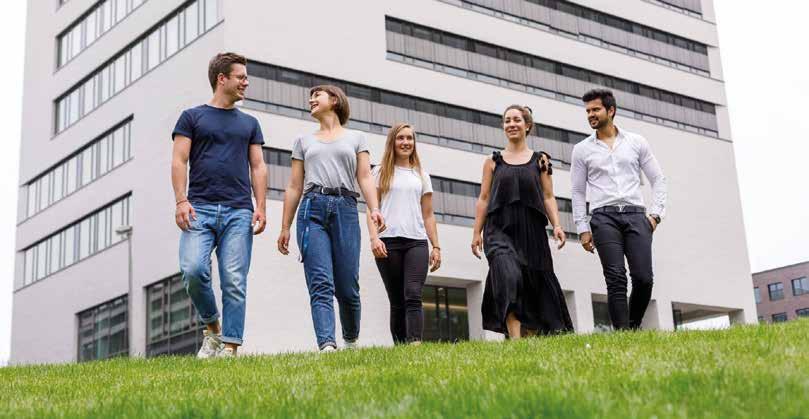
The Dean of the Faculty of Economics, Professor Dr. Gunther Friedl, offers an insight into the academic approach of the TUM Campus Heilbronn: “We focus our research on the concrete questions of practice in an interdisciplinary manner. Here, excellent science and teaching meet the exciting, entrepreneurial challenges in one of the most innovative regions in Germany. TUM acts as an entrepreneurial university. Cooperation with strong partners and worldwide networking are therefore our trademarks.”
Students are educated at the interfaces of topics that are steadily gaining importance in companies of any size: teaching and research focus ranges from management of digital change to medium-sized family businesses and information engineering. These are extraordinarily sought-after expertise,
as TUM President Hofmann emphasizes: “The study programs from Bachelor’s and Master’s to extra-occupational programs provide skills that build a bridge between otherwise independent research and professional fields. Thus, we make an important contribution to shaping digital transformation.” One valid reality check for this is the coronavirus crisis. To protect our students, teachers and staff, we switched to digital courses and earned premium results in the international Master Student Survey 2020 of the Center for Higher Education Development (CHE). It published a special evaluation with a particular focus on students’ assessment of their study situation during the COVID-19 pandemic:
100% of the Master’s students in Heilbronn who were surveyed stated that they were satisfied with the school’s crisis management. In particular, the variety of digital teaching formats and the transparency of requirements and learning goals received outstanding ratings. Even the student cooperation with our partner companies was continued virtually in the face on the pandemic.
There will be times again when COVID-19 is under control, when “normal” life will start again. Our plan is to return to classroom courses as soon as possible from a safety and responsibility point of view. In general, we are and will remain an in-person university. Virtual reality won’t replace the real reality – obviously, it couldn’t and it shouldn’t.
This is because Heilbronn is a great place to be at in reality. The city offers a great variety of attractions. Situated on the banks of the Neckar River and surrounded by rolling green hills covered with plenty of excellent vineyards, it is a wonderful location to live. Imagine yourself enjoying the mild climate, sitting in a street café and sipping a tasty local wine while having a chat with your fellow students or some of the friendly locals. Heilbronn with its rich cultural heritage and twin town of Słubice is a fine place to live. It is a city where you don’t have to spend a fortune for accommodation and life expenses. The semester fees are currently under 200 Euros - including tickets for public transportation! This makes it ideal for students.
Don’t let COVID-19 hinder or even stop you in your international and aspiring career plans: the time is now to decide which way to go, which path to follow. A university degree from the renowned TUM School of Management, in Heilbronn, Munich or Straubing (South East Germany), is the perfect foundation on which you can build your successful professional life.
17 Nobel laureates have studied or taught at the TUM

The Bonn Graduate School of Economics (BGSE) offers a two-stage graduate program that combines challenging courses with early individual research in a supportive and intellectually demanding environment. Our students finish the two-year course phase with a Master of Science (M.Sc.) specialized in economic research and the three-year dissertation phase with a Doctoral Degree (Ph.D. equivalent).
We welcome outstanding (top 10%) students holding a bachelor’s or master’s degree in economics or related fields (e.g. mathematics, statistics, business administration, accounting, and finance) to apply for admission. Numerous grants and positions are available and will be matched according to your background. E.g., some scholarships for international PhD students will be granted by the Graduate School Scholarship Program of the German Academic Exchange Service, others come from the Institute on Behavior & Inequality or directly from the Graduate School. All BGSE activities are conducted in English. Our members are provided with adequate office space and funds for conference participations and research stays abroad.
Please visit the BGSE website for application requirements and information on the program
www.bgse.uni-bonn.de
Applications have to be submitted online (www.bgse.uni-bonn.de) via our application portal, which will be opened in January 2020. The application deadline for the program starting in October is March 31, 2020. There is an early admission round for complete applications handed in before February 5, 2020. We are looking forward to your application.

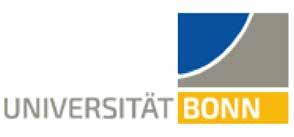
The Maria Curie-Skłodowska University (UMCS) in Lublin is one of Poland’s largest public universities, with extensive experience in educating doctoral students, including foreigners.
Currently, the number of postgraduate students is about 500 in over 20 fields of study as part of doctoral studies, and from 2019 as part of three doctoral schools, which currently educate 105 doctoral students from Poland and abroad, including Zimbabwe, Ukraine, Nigeria, Turkey, Georgia, Spain, Ireland, Russia, and Azerbaijan. UMCS has modern research and teaching potential. There is a Center of Functional Nanomaterials, Media and Art Incubator ACK “Chatka Żaka”, Analytical and Programme Center for Advanced Environmentally-Friendly Technologies ECOTECH-COMPLEX, equipped with innovative laboratories and modern research equipment. In 2017, UMCS received the HR Excellence in Research Logo awarded by the European Commission, which confirms the best working conditions and an appropriate space for science development. The University has also won many notable titles and distinctions, such as: „University of Leaders,” „Aurea Praxis,” „Good University - Good Job.” UMCS is also a laureate of the competition, „The most innovative and creative university in Poland in creating career prospects.”

• Logo of HR Excellence in Research
• Laureate of the competition „The most innovative and creative university in Poland in creating career prospects.”
• Unique student campus located in the city center
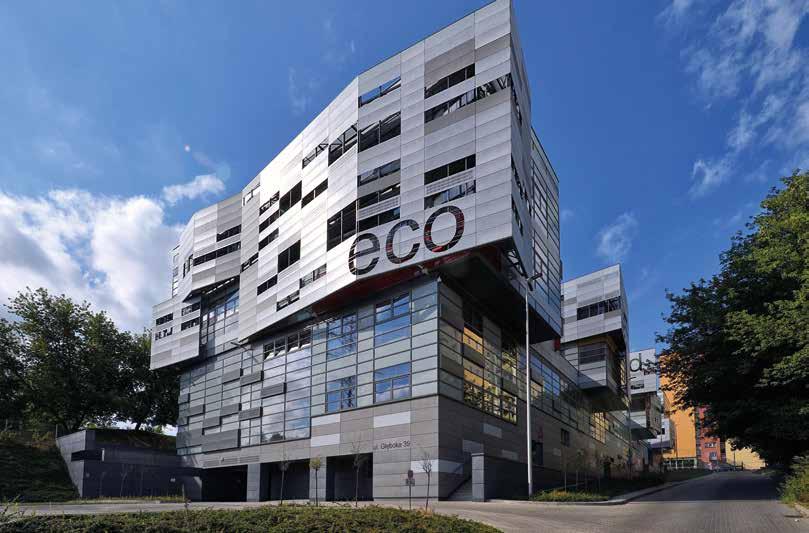
• AZS UMCS, a leader in the academic sport
called the „city of students,” is the largest academic center in eastern Poland, constituting the axis of cultural and intellectual exchange. Lublin’s magical atmosphere is created by its unique monuments, especially the Old Town with its narrow streets, cafes, pubs, and a beautiful panorama of the Lublin Castle. Some people call Lublin the „City of Seven Hills,” „City of Inspirations,” or „Jerusalem of the East.” It is a typical academic city full of students, parties, and cultural events. According to College Magazine, Lublin is in the Top 10 of the best cities for international students in Europe.
Nothing in life is to be feared, it is only to be understood
Maria Curie-Skłodowska
Doctoral School of Social Sciences
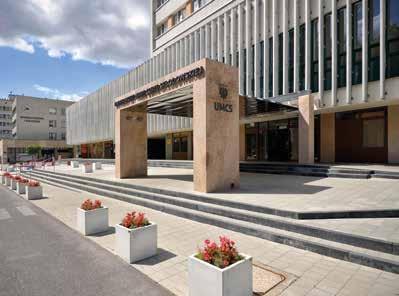
conducts education in the following disciplines:
Economics and Finance // Socio-economic Geography and Spatial Management // Social Communication and Media // Political Science and Administration // Management and Quality Sciences // Legal Sciences // Sociological Sciences // Pedagogy // Psychology.
During education and research, doctoral students can learn about general and specific knowledge for selected disciplines in which they conduct their research. They learn to design and implement social research, use scientific knowledge to solve cognitive and practical problems, and disseminate them. The school creates a friendly environment for creative thinking and acting. It is open to multiculturalism.
Join us! We offer:
Doctoral School in the Humanities conducts education in the following disciplines:
Archeology // Philosophy // History // Linguistics // Literature Theory and History // Culture and Religion Studies // Musical Arts // Visual Arts and Conservation of Works of Art.
The curriculum is cross-disciplinary and interdisciplinary, enabling comprehensive, creative, and innovative solutions to contemporary science or art problems. It provides a basis for researching and understanding the most important phenomena and challenges of civilization (especially in the context of a selected discipline), popularizing the results of scientific or artistic activity through various information channels, and stimulating and developing multiple forms of public activity in a wide range.
Doctoral School of Quantitative and Natural Sciences conducts education in the following disciplines:
Mathematics // Biological Sciences // Chemical Sciences // Physical Sciences // Sciences
Connected with the Earth and Environment // Agriculture and Horticulture.
The school conducts education together with the Bohdan Dobrzański’s Agrophysics Institute of the Polish Academy of Sciences in Lublin, the Institute of Soil Science and Plant Cultivation - State Research Institute in Puławy, and the Jerzy Haber’s Institute of Catalysis and Surface Chemistry of the Polish Academy of Sciences in Kraków. Doctoral student research is carried out in interdisciplinary research teams with implementation potential. They have access to modern research equipment and the possibility of cooperation with other centers. The acquired knowledge and the scientist’s skills are valuable capital on the labor market.
• Program in Polish and English, supporting the scientific and personal development of PhD students
• Advanced scientific and methodological training
• Supervision of outstanding scientists, winners of prestigious awards
• Classes conducted by exceptional scientists from Poland and abroad

• Access to modern research and teaching infrastructure
• Work in ambitious, interdisciplinary and modern research teams
• Collaboration with other research centers
• Possibility of foreign internships and participation in conferences
Maria Curie-Skłodowska University is distinguished by a unique student campus located in the city center, where academic life is concentrated. Apart from the research and development facilities, students and doctoral students can use the Academic Cultural Center “ Chatka Żaka” and Centre for Physical Culture UMCS.
Young, enthusiastic, passionate, and open to new experiences candidates for PhD students who believe, like our Patroness, that science is wonderful. Wanting to explore the areas of quantitative and natural sciences, social sciences, humanities, or fine arts and music.
How to apply?
We invite you to register in the system: https://rekrutacja.umcs.pl/en/
Additional information on the website: https://www.umcs.pl/en/doctoral-schools.htm
Contact: Doctoral Schools of UMCS ul. Weteranów 18, 20-038 Lublin tel. (81) 537 50 60 or (81) 537 50 59 e-mail: szkoladoktorska@umcs.pl
E-mail applications are not accepted
The post-graduate LL.M. degree course in International Legal Studies at the University of Vienna/Law School is a one year full-time or a two year part-time program which aims at deepending the knowledge and skills that are of importance for the practice of international law, in international organizations, governmental agencies, as well as in internationally operating law firms and enterprises. The program comprises four modules focusing on different areas of international law, namely: “Fundamental Issues of International Law”, “International Economic Law”, “International Dispute Settlement” and “International Organizations”. Inter-active teaching in weekly classes, lectures as well as seminars, are the preferred methods of instruction by an internationally renowned faculty whose expertise and practical experience are valuable assests that students will benefit from throughout their studies.
Target Group/prerequisites for practipating:
The city of Vienna which hosts a number of internationational organizations (IAEA, OPEC, OSCE, United Nations) offers an ideal environment for this kind of program, thereby enabling students to study in depth the structures and functioning of international organizations. A few interships are regularly made available for particularly qualified students.
Candidates with experience and holding a first law degree (eg JD, LL.B., or LL.M.) from renowned foreign or Austrian universities are eligible to apply. All applicants must submit valid TOEFL scores unless English is their native language or they earned their first law degree entirely in English. All classes will be taught in English. The number of students accepted is restricted to 25 participants. Considerable weight is given to academic results and pertinent qualifications.
Degree: Master of Laws (LL. M.)
Language of instruction: English
Semesters:
October to June
Deadline: 1. September
Contact/Registration:
Duration:
2 semester (full-time)
4 semester (part-time)
Application Forms are retrievable from: international-legal-studies.univie.ac.at


Costs:
Full-time: EUR 11,000.–
Part-time: EUR 5,500.– per year
University of Vienna | Juridicum | LL.M. in international Legal Studies
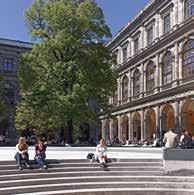

Department of European, International and Comparative Law
Schottenbastei 10–16, 5th floor, room 536, A-1010 Vienna, Austria for appointments, please call: +43-1-4277-251 01 or email: int-law-llm@univie.ac.at
international-legal-studies.univie.ac.at

The master program builds on the legal knowledge already acquired and enables you to specialize in the field of digitalization. Students are taught knowledge in IT law, legal tech, artificial intelligence, computer science and data protection law, among others. Thus, you will acquire crucial expertise and additional qualifications compared to your competitors.

• Degree: LL.M. (Master of Laws) and a certificate of specialization in IT Law
• Duration: 3 semesters
• Start: Every October (winter term)
• Language: English
• Study mode: Part time
• Requirements: Bachelor degree; one year of professional practice; language certificate (English and German)
• Tuition fees: 2500 euros each term plus semester fees (approx. 140 euro each term)
Your benefits:
• Interdisciplinary program: The LL.M. covers the fields of ethics, technology and informatics
• The courses will be given by renowned professors and specialized lawyers
• Previous IT background is not required
• Study in the charming city of Würzburg: Located
in picturesque Franconia, surrounded by vineyards, the river Main and the Fortress Marienberg as well as being home to the UNESCO World Heritage Site of the Residence with Court Garden
• Enjoy the lectures in the lecture halls of the Old University of Würzburg built in 1582
• You have full access to the university library and can use the public transport in Würzburg for free

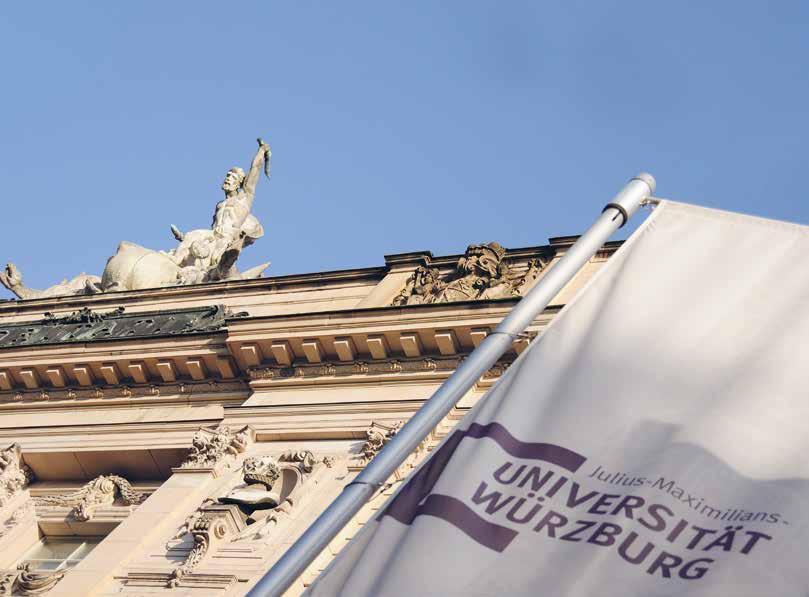
Application deadline: April 1, 2023 until July 15, 2023
Any questions?
diglaw@jura.uni-wuerzburg.de
More information?
www.jura.uni-wuerzburg.de/digitalization-and-law
The University of Liechtenstein combines practical and innovative approach. With over 50 years of tradition, the institution has established excellent relations with industry. It is also one of the first universities that offer a university-based master education in “Data Science” and “Business Process Management”. These specializations will prepare students perfectly for their future career in a digital world.
Agata Blinkiewicz: What programs does the University offer?
Christina Mathis: We offer Bachelor’s Programs in Business Administration (in German/English) and Architecture (in German); Master’s Programs in Architecture (in English), Entrepreneurship (in German/English), Information Systems (in English) and Finance (in English); Doctoral Programs in Architecture and Planning (in German) and Business Economics (in German/English).
Could you tell us more about Master in Information Systems?
The University of Liechtenstein’s Master’s Program in Information Systems, with its majors in “Business Process Management” and “Data Science”, provides well-grounded methodological competences at the intersection

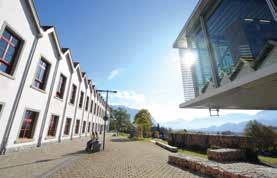
between information technology and business required in a digital world. The program focuses on skills related to both, improving organizational efficiency and innovativeness using the transformative power of information systems. The new specialization “Data Science” focuses on topics like Business Intelligence, Big Data and Predictive Analytics. Since its introduction in September 2015 the new major has received an overwhelming amount of applications and the program is running at full capacity.
Sounds interesting. Who can apply for this program?
The study program perfectly suits students holding a first degree in the fields of Industrial Engineering and Management, Computer Science, Economics, Information Technology (IT) or Business Administration. Moreover, it allows the combination of work and study as lectures are scheduled from Thursday to Saturday to maximize flexibility for students.
When is the nearest application period for this program?
Final deadline for the February intake for EU citizens is 30 November. We have about 15 different nationalities each year starting their studies in this Program.
Is the Program combined with practice?
Of course! Students within the Master’s Program Information Systems work closely together with leading industry partners in the region, like: Hilti, ThyssenKrupp Presta, Ivoclar Vivadent and other internationally renowned companies. In “Innovation Lab” and other seminars they offer exciting practical-work projects each semester and also possibilities for students to write their master’s thesis in
collaboration with them. Graduates of the program have ideal qualifications for entering the job market in Liechtenstein, Europe and around the world.
How about the work at the University of Liechtenstein and within the program?
The Hilti AG, one of the biggest providers of products for construction industry, awards the most talented master students in Information Systems, IT, and Management from Europe with a truly unique fellowship program: The Hilti Fellowship is a combination of practical training at Hilti and academic learning at the University of Liechtenstein, designed to set the cornerstone for a successful future. It allows students to study abroad for one semester in Liechtenstein (Thu–Sa) and gain experience as an intern at the Hilti Corporation (Mon–Wed). The salary for the five months placement is as high as CHF 13,000.
How students can experience Liechtenstein?
Visit the University of Liechtenstein from February 18th to 23rd, 2018 for Liechtenstein Winter School on BPM and Data Science 2018! The course is organized by the Hilti Chair of Business Process Management, managed by Prof. Dr. Jan vom Brocke. You will gain a comprehensive understanding of the contemporary state-of-the-art in BPM and Data Science. Classes are taught in English by BPM and Data Science leaders from both academia and practice and the course is especially recommended to Bachelor students. Many social events to experience Liechtenstein and visits of renowned companies in the region like Hilti and Swarovski are also part of the program. For more information, please visit: www.winterschool.li
Add on programme to ongoing PhD research.
Entrepreneurship, innovation and business courses for PhD candidates in sustainable energy.

Flexible curriculum tailored to your needs.
Funding of European mobility stay.
Access to a large network of partners from academia and industry.


Założony w 2012 roku, program mentorski „Quantitative Biosciences Munich (QBM)” jest inicjatywą łączącą naukowców z czołowych monachijskich jednostek badawczych – Universytetu Ludwika Maximiliana (LMU), Monachijskiego Universytetu Technicznego (TUM), Instutu Biochemii Maxa Planka (MPI) i Centrum Badawczego Helmholtza. Jest to program studiów doktoranckich skierowanych do młodych absolwentów kierunków biologicznych, fizyki, matematyki oraz bioinformatyki. QBM ma na celu wprowadzenie kandydatów w nową erę precyzyjnych, ilościowych analiz procesów i zjawisk biologicznych, opierając się na założeniach biologii systemowej. Ten innowacyjny program nauczania łączy tradycyjnie odrębne dyscypliny, takie jak biochemia, medycyna, bioinformatyka, matematyka stosowana czy biofizyka, wprowadzając nową jakość do prowadzonych przez studentów badań. Przy zachowaniu nacisku na zagadnieniach wiodącej dyscypliny kandydata rozwijana jest jego wiedza z zakresu pozostałych dyscyplin. Ułatwia to komunikację interdyscyplinarną pomiędzy specjalistami z różnych dziedzin, umożliwiając im efektywną wspólną pracę nad nowatorskimi projektami badawczymi.
Studenci programu QBM:
• prowadzą badania w ramach interdyscyplinarnego projektu badawczego,
• uczęszczają na zajęcia w ramach kursów specjalistycznych poszerzających i uzupełniających ich wiedzę z zakresu biologii, fizyki, matematyki oraz bioinformatyki. Kursy zorganizowane są wokół kursu głównego, obejmującego najaktualniejsze problemy nauk biologicznych omawianych z różnych perspektyw naukowych,
• podlegają programowi mentorskiemu obejmującemu wiele aspektów interdyscyplinarnej pracy
labolatoryjnej oraz wiedzy specjalistycznej, niezbędnej podczas indywidualnej pracy naukowej,
• są beneficjentami atrakcyjnego stypendium naukowego porównywalnego z innymi czołowymi programami stypendialnymi w Europie, nie obciążonego kosztami czesnego.
Projekty naukowe w ramach QBM obejmują szeroki zakres najaktualniejszych zagadnień biologicznych ze specjalnym wyróżnieniem ekspresji genów podejmowanej we wszystkich jej aspektach.
Więcej informacji o Programie i rekrutacji do niego: www.qbm.lmu.de
„QBM stwarza świetne możliwości rozwoju naukowego. Wieloaspektowy program nauczania umożliwia łatwą i szybką adaptację w środowisku naukowym oraz sprawną pracę nad interdyscyplinarnym projektem badawczym. Ponadto program ułatwia dostęp do najnowszych technik badawczych, takich jak superrozdzielcze techniki mikroskopii fluorescencyjnej czy najnowsze metody sekwencjonowania DNA, co związane jest również z przyswojeniem specjalistycznej wiedzy w zakresie ich zastosowania. QBM jest świetnym międzynarodowym środowiskiem naukowym i znakomitym pierwszym krokiem w drodze do wysokiej klasy kariery naukowe”. Rafał Krzysztoń – student rocznika 2013
„Wybrałam QBM ponieważ był to jeden z niewielu programów studiów doktranckich w Europie, który oferował interdyscyplinarne projekty badawcze i kładł duży nacisk na wykorzystanie najnowszych technologii i metod ilościowych. Zależało mi szczególnie na tym, aby zdobyć doświadczenie z technikami wykorzystującymi sekwencjonowanie genomów, takimi jak RNA-seq, MNase-seq czy DNase-seq, nie tylko na etapie pracy laboratoryjnej, ale rownież na pózniejszym etapie przetwarzania danych i analizy statystycznej. Dzięki szerokiej ofercie wykładow i kursów ze statystyki i programowania, jak i bliskiej współpracy pomiędzy grupami badawczymi, program QBM zdecydowanie spełnił moje oczekiwania i pozwolił na odkrywanie nowych dziedzin nauk biologicznych.
Marta Bozek – studentka rocznika 2013
What W e expect:
• Strong background in Mathematics and Computer Science
• Application oriented mindset
hat W e expect:
• Highly motivated and self organized
and Scientific the scienhighly their scientists. program state applications. unique environment -
Combining Mathematics and Computer Science, Scientific Computing has become the powerful key for solving today’s scientific and technical problems.
Heidelberg University offers a highly attractive package to students on their road to become top-tier scientists. The international master’s program „Scientific Computing“ teaches state of the art methods and applications. A follow-up PhD phase in the unique interdisciplinary research environment at the graduate school HGS MathComp completes the education.
• Strong background in Mathematics and Computer Science
What W e offer:
areas – from Physics and Astronomy to Biosciences and the Humanities.
The master’s program offers a uniquely structured interdisciplinary education in a vibrant research environment:
• Application oriented mindset
• Interdisciplinary research environment & top-tier equipment
• Modern international program completely taught in English
• Highly motivated and self organized
• Application-oriented lectures and seminars
• Small-group courses
• Industry summer internships
• Term-abroad program
areas – from Physics and Astronomy to Biosciences and the Humanities.
The master’s program offers a uniquely structured interdisciplinary education in a vibrant research environment:
The program teaches the core methodology in Applied Mathematics and Computer Science to solve challenging real-world application problems:
• Mathematical Modeling
• Attractive study location in the heart of Europe
What W e offer:
The program enables students to receive a first-rate education in addition to pursuing innovative projects with a strong application-oriented focus. It ensures that graduates are well prepared for top positions in industry and science.
• Application-oriented lectures and seminars
• Simulation & Optimization
• Small-group courses
• Image Processing
• Statistics & Data Analysis
• Industry summer internships
• High Performance Computing
• Term-abroad program
The application fields for Scientific Computing encompass all scientific
The program enables students to receive a first-rate education in addition to pursuing innovative projects with a

a pplication deadlines:
June 15 for the Winter Term
Nov. 15 for the Summer Term
• Interdisciplinary research environment & top-tier equipment
• Modern international program completely taught in English
Heidelberg is the perfect place for students to start their scientific career. Founded in 1386, it is Germany’s oldest university, situated in one of the country’s most beautiful cities. Ranked among Europe’s leading universities, Heidelberg offers tuition free education as well as an ideal setting for individualized and supervised studies.
• Attractive study location in the heart of Europe a pplication deadlines:
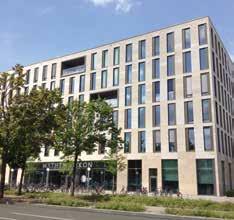
June 15 for the Winter Term
Nov. 15 for the Summer Term
The University of Bayreuth is a young, research-oriented university located in Bavaria. Its eco-friendly campus hosts students, instructors, and researchers from all over the world. In addition to its focus on interdisciplinary research and quality of teaching, the University also has a clear vision of social responsibility and entrepreneurship. High-level academic performance, an impressive student-to-instructor ratio, multidisciplinary collaboration, and scientific excellence consistently result in strong ranking positions. The University’s research priorities are Nonlinear Dynamics, Polymer & Colloid Science, Molecular Biosciences, Ecology & Environmental Sciences, Advanced Materials, African Studies, High Pressure & High Temperature Research, Cultural Encounters & Transcultural Processes, Innovation & Consumer Protection, Food & Health Sciences, Energy Research & Energy Technology, and Governance & Responsibility. Moreover, its international summer schools and a broad range of innovative bachelor’s, master’s, and doctoral programmes are conducted in English.
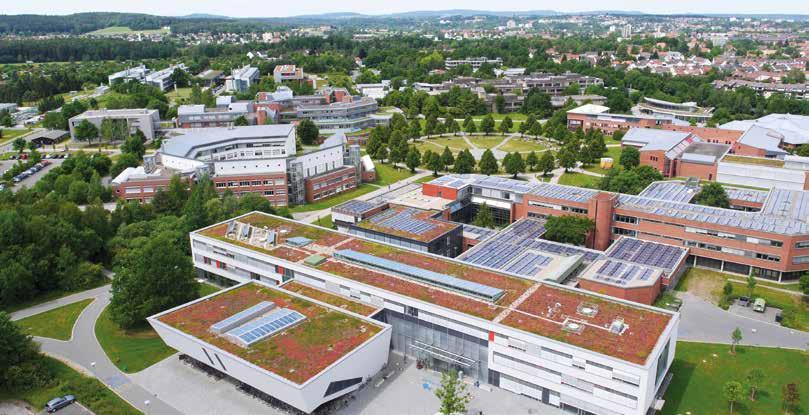
More and more international students are deciding to do a master’s degree at the University of Bayreuth. No wonder: The Bayreuth campus offers outstanding students a top-class environment.
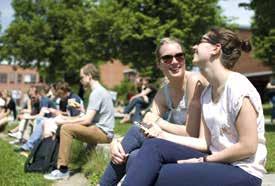
O A tight-knit, green campus where everything you need is right at your doorstep
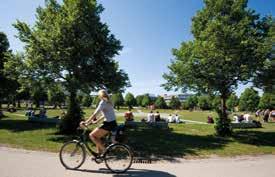
O Top positions in international rankings
O A broad spectrum of programmes with no tuition fees
O English-taught, interdisciplinary master’s programmes focused on key topics of the future, e.g. Philosophy & Economics, Biofabrication, Environmental Geography, Global Change Ecology


O Strong international university partnerships
O Double master’s degrees with renowned universities
O Excellent prospects for a research-oriented doctorate
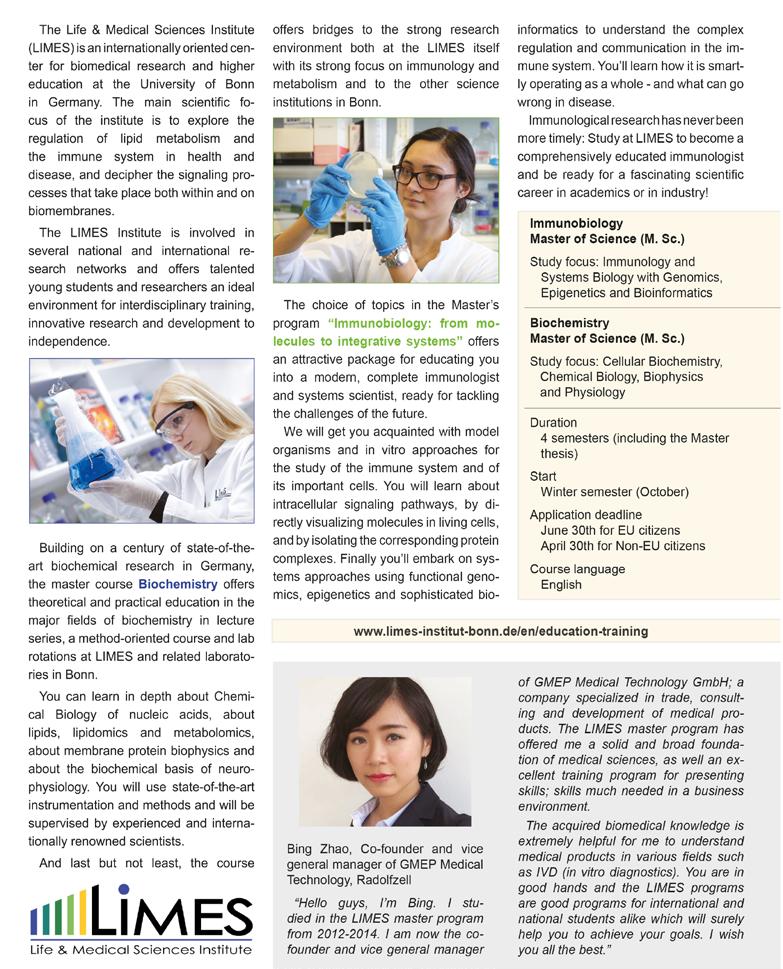

https://uni-koblenz.de/e-gov
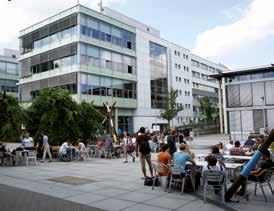
Are you about to complete your bachelor’s degree in business administration, information systems, computer science or equivalent degree? Do you want to build up your competencies and your knowledge in the field of modernising and digitalising public service?
Do you want to study in a research and application oriented Master’s programme framed by European and German digital transformation of public service?
If your passion is on digital transformation of public service, then our Master E-Government is the right choice to study!
You will acquire:
w Knowledge about relevant concepts of digital government and the use of information and communication technology (ICT) in the public sector
w Skills and knowledge on applying holistic
approaches for analysis, design, implementation and evaluation of innovative and next generation information systems and services in the public sector, including stakeholder engagement
w Knowledge on the benefits and added value of ICT for government and administration in their interaction with business and society
The E-Government Master programme covers lectures, seminars, exercises, flipped classroom and a research lab. Students will take an active part during courses, work in groups and likewise will learn and study independently. Apart from the mandatory courses offered in the first two semesters, the interdisciplinary curriculum allows students to choose from subject-related electives nearly without restrictions. The structure of the E-Government Master's programme covers the following:
w E-Government (24 ECTS)
w Information systems (24 ECTS)
w Elective courses in information systems and computer science (24 ECTS)

w Jurisprudence (6 ECTS)
w Research lab and soft skills (12 ECTS)
w Master thesis (30 ECTS)
Students may work already as a student assistant in our Faculty of Computer Science or in some of our regional companies and institutions.
Graduated students of the master programme are qualified in particular for senior positions, for example, as Product Strategy Managers, in Strategic IT Management or IT-Consulting. Potential employers include public agencies, i.e. IT departments and units with organisational and IT functions, as well as private companies providing IT services, IT consultancy and IT developments to the public sector. The master programme also prepares you well for pursuing a PhD at our University.
w “In addition to IT skills, e-government will provide an insight into EU policies“
w “Graduating in this programme offers you a secure professional future“
w “Master E-Government is offering perfect conditions for studying due to the professors at the university and the surroundings in Koblenz“
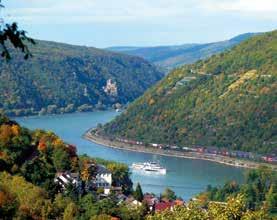
The city of Koblenz is located in the northern part of Rhineland-Palatinate in the southwest of Germany. Koblenz is close to the borders of Luxemburg and France and between wellknown German cities such as Cologne and Frankfurt. Furthermore, the city is characterised by a beautiful landscape and the confluence of three rivers: Rhine, Mosel and Lahn.
The city is the northern pole of the UNESCO world heritage “Upper Middle Rhine Valley” with its picturesque castles along the Rhine. The city and the region offer many opportunities to enjoy life and leisure: The landscape along the three rivers is characterised by steep vineyards, which invite you to go hiking, cycling or to stop off at a winery and enjoy typical wines of the region.
M.Sc. Optics & Photonics: Apply Today!
M.Sc. Optics & Photonics: Apply Today!
M.Sc. Optics & Photonics: Apply Today!


• 2-year Master‘s Program
• 2-year Master‘s Program
• Scholarships available for outstanding applicants
• Scholarships available for outstanding applicants


•
• Industry internship program & networking
• Industry internship program & networking









• Intensive lab training, language courses, business etiquette training
• Intensive lab training, language courses, business etiquette training
• International and interdisciplinary environment
• International and interdisciplinary environment
• Language: English • Start: October • Application: until April 30
• Language: English • Start: October • Application: until April 30
KSOP has a Ph.D. in Optics & Photonics program!
KSOP has a Ph.D. in Optics & Photonics program!
KSOP has a Ph.D. in Optics & Photonics program!
This program also includes modular training in management, technical and scientific competencies. Accepting applications at any time!
• Intensive lab training, language courses, business etiquette training English • October • Application: until April 30 competencies. Accepting applications at any time! www.ksop.kit.edu
This program also includes modular training in management, technical and scientific competencies. Accepting applications at any time!
Alicja Mrugał: Could you describe the MSc in Biotechnology programme at AMU?

Anna Kasprowicz-Maluśki, PhD, Department of Molecular and Cellular Biology, Adam Mickiewicz University: Our programme introduces students to the biomedical aspects of biotechnology. It consists of advanced biotechnological subjects built on basic topics in biochemistry, microbiology, as well as cell and molecular biology. It covers the latest concepts, achievements and methodologies of medical biotechnology.
How does its curriculum look like?
It’s a full-time two-year study, covering 60 credits per year. As this is an international master programme, all courses are taught in English. The study consists of mandatory and elective courses that comprise both theoretical knowledge and practical application of theory from experimental design to bioinformatic and statistical analysis of raw data and interpretation of results. In addition, the Master’s thesis, an integral part of the curriculum, is an individual research project performed under the supervision of an experienced researcher.
Do you provide English courses then?
Our candidates are fluent in English so we do not provide typical English courses. To improve knowledge of specialized vocabulary students participate in “Advanced scientific English” and “Scientific communication” obligatory modules.
What skills and competencies are expected from alumni?
Our MSc students develop the necessary practical skills in biomedical and molecular biology techniques, project management, get a hands-on experience with commonly used as well as sophisticated scientific instrumentation, explore the requirements of bioeconomy and biotechnological legislation.
And what are the job opportunities for future alumni?
A Master in Biotechnology will give our alumni a solid basis for further careers, both nationally and internationally. Well-trained person -
nel at the MSc level are needed and are often employed by hospitals and other health services, consultancy companies and industry, both as researchers or advisors.
Graduates of the Master programme will also be qualified for practical clinical work and technical executive positions in hospital laboratories as well as different roles in public and government institutions. Alumni are well prepared for work in a broad range of institutions:
• universities and scientific institutes,
• biological and biotechnological laboratories (analytics, diagnostics),
• companies in biotechnology, pharmacy and chemistry fields,
• their own biotechnology businesses,
• or continuing education within PhD programmes.
What else does make your programme attractive for students?
Our students are given wide opportunities to actively participate in research projects conducted at the Faculty. We also offer exchange programs and international internships.
Who can apply for the studies?
Graduates of first-, second- and long-cycle studies are eligible for our programme. Candidates with background in biotechnology, biology, bioinformatics, biochemistry and related disciplines are desirable.
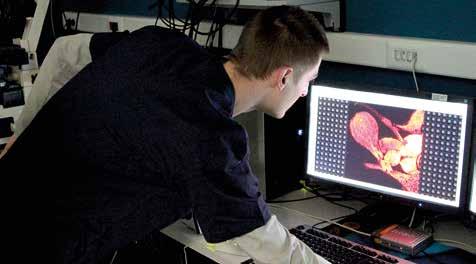
How does the admission process look like?
The admission committee will judge every application on an individual basis. Final admission result is based on the interview conducted in English. Its aim is to assess candidate’s knowledge in the field of biological sciences, fluency in English, including technical vocabulary in the fields of biology and chemistry, candidate’s aptitude and motivation to study the chosen field.
How many candidates did succeed in previous years?
Typically, 20–30 candidates are successfully enrolled to our programme.
Students gain practical skills in biomedical and molecular biology techniques, project management, get a handson experience with scientific instrumentation, explore the requirements of bioeconomy and biotechnological legislation
Berufsbegleitender Masterstudiengang ab Okt. 2021
Berufsbegleitender Masterstudiengang ab Okt. 2021



WARUM?
WARUM?
Sie suchen: eine praxisnahe Ausbildung in der Konzeption und Durchführung klinischer Forschungsprojekte von Bench to Bedside?
Sie suchen: eine praxisnahe Ausbildung in der Konzeption und Durchführung klinischer Forschungsprojekte von Bench to Bedside?
TRANSLATIONAL
WER?
Absolventen der Human-, Zahn- und Veterinärmedizin, sowie natur- oder lebenswissenschaftlicher Fächer

WAS?
WIE?
WAS?
Wir bieten praxisrelevantes Wissen in der Planung, Durchführung und Auswertung klinischer Studien für eine Tätigkeit im wissenschaftlichen Projektmanagement, Regulatorischen Behörden, forschenden Pharmaunternehmen
Wir bieten praxisrelevantes Wissen in der Planung, Durchführung und Auswertung klinischer Studien für eine Tätigkeit im wissenschaftlichen Projektmanagement, Regulatorischen Behörden, forschenden Pharmaunternehmen


Berufsbegleitend, einmal im Monat Block-Veranstaltungen in Leipzig, unterstützt durch E-LearningPlattform, keine Anwesenheitspflicht von 2007 bis 2016
WIE?
Berufsbegleitend, einmal im Monat Block-Veranstaltungen in Leipzig, unterstützt durch E-LearningPlattform, keine Anwesenheitspflicht von 2007 bis 2016
What is the Life Science Zurich Graduate School? The Life Science Zurich Graduate School consists of several highly competitive PhD programs. We are run jointly by the ETH Zurich and the University of Zurich. Our programs offer research and education opportunities in a stimulating international environment for ambitious students who wish to work towards a PhD degree. If you are accepted to our school you will perform your research project in one of the participating research groups according to your scientific interest. Throughout the curriculum we offer advanced teaching and training courses. The program language is English. PhD studies usually last 4 years.
Education: You must hold or anticipate receiving a Master’s degree or equivalent from a university in a relevant field before starting the PhD program. If you are accepted for the program you will have to register with either the University of Zurich or ETH Zurich, depending on the affiliation of the research group you are joining.
How do I finance my PhD? All research groups within the Life Science Zurich Graduate School provide financial support in accordance with the PhD student salary set by the Swiss National Science Foundation (at present CHF 47'040.- to CHF 50'040.-).

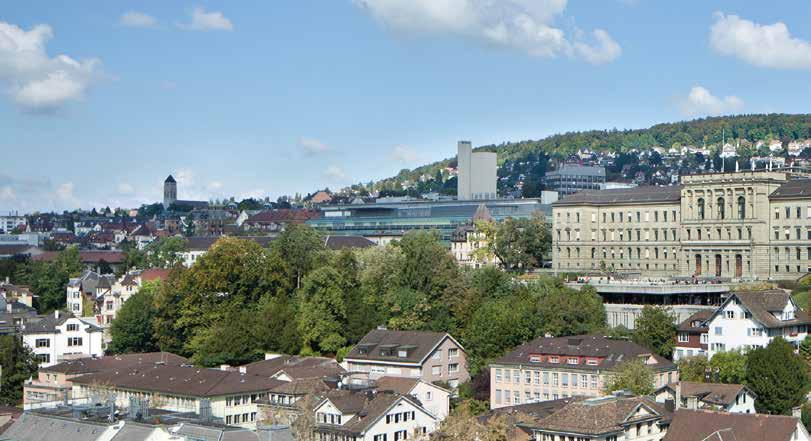
How is the research environment? Our aim is to attract to Zurich the most promising young scientists from across the world. We offer you a challenging training environment, a clear mentoring system and the opportunity to perform cutting-edge research. As a PhD student you are part of a vivid scientific and social community and get the opportunity to work with the leading scientists in your field of interest. With around 400 research groups and more than 1200 PhD students, the Life Science Zurich Graduate School is one of the largest graduate schools in Europe.
How can I apply? Our web pages provide detailed information for submission of application. Please refer to the guidelines as we only take into consideration applications received in the required format: http://www.lifescience-graduateschool.uzh.ch/en/application.html
Our application deadlines are 1 July and 1 December. www.lifescience-graduateschool.uzh.ch

We offer you a challenging training environment, a clear mentoring system and the opportunity to perform cutting-edge research.Photo: Joachim Hehl, ETH, Chloroplast der Wasserpest
Six good reasons to join the Life Science Zurich Graduate School of the University Zurich & ETH Zurich!


Our Graduate School offers PhD studies in 17 different PhD programs within a large range of Life Science research fields.
As a PhD student at our Graduate School you will receive an employment contract, including accident and unemployment insurances. The salary is generous compared to international standards and allows a comfortable living in Zurich. You benefit from a strong curriculum with scientific and transferable skills courses.
You are part of a clear mentoring system led by top scientists. Defined contact persons and helpful program coordinators put all their effort into supporting you during your PhD studies. You will also have lots of social activities including career events to choose between for building your network and finding friends.
If you come to Zurich you will be part of a very international environment with over 50 nationalities represented among the 1500 students and around 500 group leaders. You will benefit of many aspects of students’ life at ETH and University of Zurich such as student bars, students housing and around 120 different sports on offer by the Academic Sports Association Zurich (ASVZ).
Zurich is a real Life Science hotspot! Thanks to its combination of academic excellence, entrepreneurship and innovation, financial strength and very good accessibility, Zurich is one of the leading centers in the life sciences in Europe.
Zurich is also a “little big city” where English is an everyday language. We think it’s a very attractive place to work and live in. It’s close to spectacular landscapes and has a wide choice of cultural activities. You reach the airport within 20 minutes from the city center.
Find out more about our Graduate School on our websites. You are welcome to register and apply online for our two yearly application deadlines, 1 July and 1 December. Be invited to our interviews in February and September and find your research group that meets your skills and interests!
www.lifescience-graduateschool.uzh.ch https://join.lszgs.uzh.ch
The University of Bayreuth has just started its new Faculty and Campus in Kulmbach. Would you like to take part in its exciting scientific trip?
First semester at the Faculty of Life Sciences: Food, Nutrition & Health of the University of Bayreuth has officially started. Kulmbach welcomed new scholars and students. By 2025, up to 1,000 young people are going to study there and 22 professorships are going to be established. Their research will cover relationships between disease risk and lifestyle, the influence of individual, cultural or socio-economic factors on health, and supplying people with healthy food. Learn more about new opportunities from our interview with Prof. Dr. Stephan Clemens, Founding Dean of Faculty VII of the University of Bayreuth in Kulmbach.
Agata Rzeszuto: If you were to name three most important things about the new faculty the University of Bayreuth is building in Kulmbach, what would they be?
Prof. Dr. Stephan Clemens: Firstly, we are driven by a truly interdisciplinary spirit, addressing some of the biggest challenges humankind is facing. Secondly, our perspective is a global one and we are aspiring to attract students from all over the world. Finally, we can offer the excitement of a start-up and the intensive learning environment that arises in close interaction with academic teachers and our student services.
I suppose you have a special offer for international students then?
We are addressing global problems and are aiming at teaching international, highly diverse groups of students. Our student services are tailored for the needs of international students. How many of your students and scholars come from abroad?
Our first cohort is 90% international, with students coming from more than a dozen countries in Europe, Asia, Africa and South America.
Do you also have cooperation with international institutions?
We are in the process of building up the campus in Kulmbach and of establishing cooperation with international institutions. Our newly recruited faculty members bring their international networks with them and we are benefiting from the international connections of our university. Furthermore, our international study programmes are geared towards close interactions with, for example, global health institutions.
Do you offer bi- and multi-lateral dual degree programmes and joint doctoral studies at Faculty VII?
We’ve just welcomed our first Master students. Such programmes have yet to be established and are high up on our agenda.
Please tell us more about campus life in Kulmbach.
Currently we are looking for pioneers, excited and ready to be part of something new. Not everything is perfectly in place yet. What we can offer is a chance to shape our campus with your own ideas.
How important is sustainability at the University of Bayreuth and at the new campus in Kulmbach?


Sustainability is an important goal, guiding our activities at every level. Furthermore, sustainability is an integral part of research and teaching at the faculty of Food, Nutrition & Health. For example, our own cafeteria will incorporate possibilities for conducting scientific work, also on the implementation of sustainability strategies. The creation of future food systems and effective disease prevention are closely intertwined with climate change and the need to control the human footprint on Earth.
And what is so special about Kulmbach?
Kulmbach is a small, charming city with a rich history, friendly people and surrounded by a lot of natural beauty, immediately accessible by foot or by bike. Kulmbach is also home to companies and authorities that are involved in food, health, and nutrition which enables intensive professional cooperation.
When is the nearest application period for courses at your faculty, including 2nd master’s programme “Global Food, Nutrition & Health”?
Applications for our first two master programmes, the MSc “Food Quality and Safety” and the MSc “Global Food, Nutrition & Health” are possible until January 15, 2021. We encourage prospective students to apply as early as possible, especially if they need a visa.
Is studying at the University of Bayreuth tuition-free?
Yes, it is. It is also worth mentioning that living costs are lower than in the bigger cities.
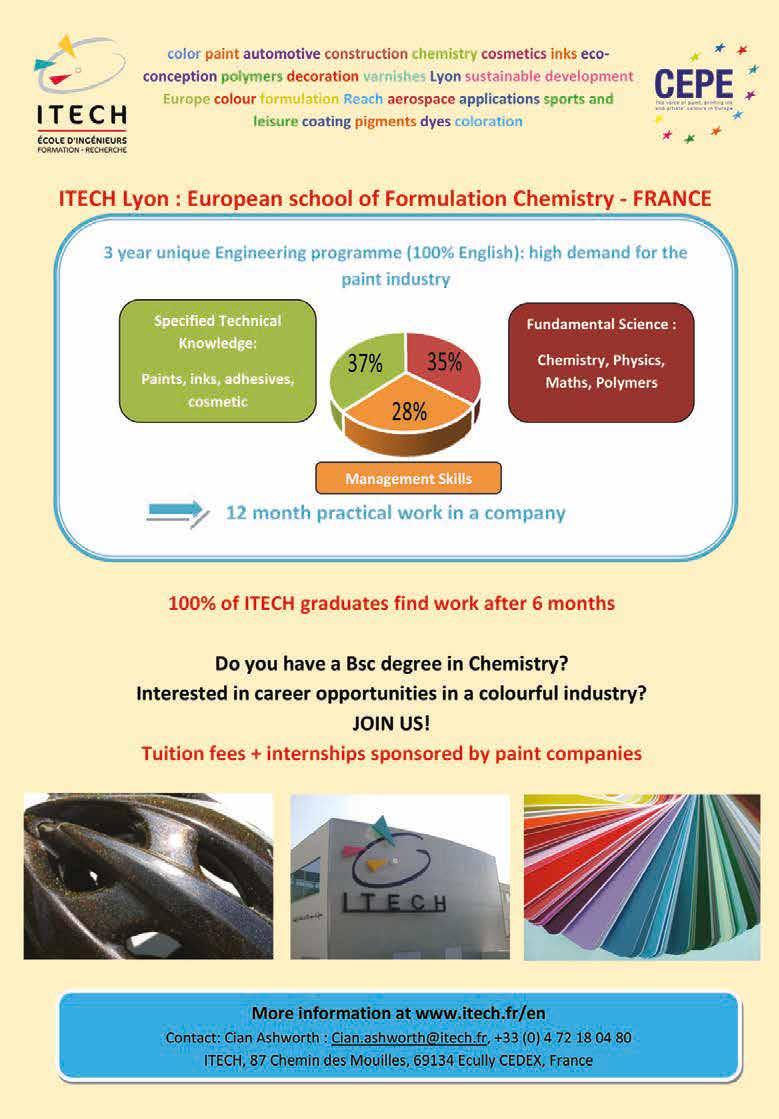

Read the interview with IDEAS NCBR’s CEO!!
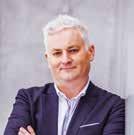
Alicja Mrugal: IDEAS NCBR is very active in the field of artificial intelligence and digital economy. What do you do exactly?
Professor Piotr Sankowski, CEO of IDEAS NCBR: We are a research & development centre. We develop a platform which connects academic and business environments. Our aim is to conduct research at the world’s highest level. The place which is going to support the conduct of innovative R&D projects in Poland and which is going to allow to shape the new generation of scientists focused on practical use of developed algorithms. We conduct basic research as well as applied research. We pay particular attention to the commercialization of discoveries which is going to allow them to be used in various sectors of the economy and administration and also to become a real part of the digital transformation.
What are your goals then?
One of our main principles is to become an integral part of the Polish, European and global AI and digital economy ecosystem. We wish to become a part of the international research projects and to support the development of the network of the best experts in the scope of artificial intelligence and digital economy. Several of our employees are members of the ELLIS Society – it is a pan-European AI network of excellence which focuses on fundamental science, technical innovation and societal impact. What is more, we cooperate with international research centres and universities.
We are extremely pleased that we have been able to establish three functioning research groups and to attract such eminent experts as professor Stefan Dziembowski and professor Tomasz Trzciński. We hope to set up further teams soon to focus on topics such as robotics or computer graphics.
Furthermore, we can proudly say that the activities of IDEAS NCBR are being positively received, and we have established cooperation with
Polish universities in the field of doctoral training. We have also signed letters of intent for potential cooperation with top foreign centres such as CVC Barcelona, CWI in Amsterdam and the Center for Artificial Intelligence and Advanced Robotics at National Taiwan University, as well as with Department of Computer, Control and Management Engineering Antonio Ruberti (DIAG) of Sapienza University of Rome. We have also published our first scientific publications with IDEAS NCBR’s affiliation, works of our researchers were presented at such prestigious conferences as NeurIPS in New Orleans.
What studies do you currently carry out in your research groups?
As I said we have 3 working groups currently. I am the leader of a group which handles intelligent algorithms and learned data structures. We are working on creating innovative optimalization and algorithmic solutions where we incorporate elements of machine learning. We are interested in issues such as creating new algorithms explaining decision-making, algorithmic game theory, self-studying data structures or the effective implementation of data exploration algorithms in contemporary parallel machines.
And the other two research groups?
The second group lead by professor Stefan Dziembowski handles privacy and security issues in machine learning and blockchain technology. In particular, this group studies topics related to running algorithms on confidential data so that only the result of the computation, and not the data itself, is known. They are also interested in ensuring that even from the result of the calculation itself, the sensitive information contained in the input data cannot be obtained. In addition, group is concerned with the applications of machine learning to the security analysis of cryptographic protocols in combination with tools derived from formal methods. The final group led by professor Tomasz Trzciński conducts research at the intersection of visual data analysis and machine learning. At the center of its interests are algorithms that achieve high performance leveraging of the zero waste principle – avoiding unnecessary calculations and accumulating lifelong knowledge.
You said that IDEAS NCBR aims to be a real part of the digital transformation. Will the research results be commercialized – how?
Yes. Apart from the scientific potential, the potential for commercialization is also crucial when assessing the research projects. That is why we cooperate with market leaders using
real data, seeking solutions for issues closely related to life. This approach is also attractive to the researchers we hire. Each of them has the chance to receive an innovation bonus. Either in a form of the rights to shares in the IDEAS NCBR revenue on commercialization the results of the works (in particular in the form of licences or selling the intellectual property rights), or the rights to receive shares or equity in a spin-out company commercializing such solutions.
And what non-fiscal benefits can young researchers receive?
Attendance at international conferences, the opportunity to work with experts from all over the world, training, being a co-author of scientific articles are also attractive benefits associated with working for us. We are striving to ensure that employees can use a systematic mentorship support and can draw as many benefits as possible during the cooperation with IDEAS NCBR.
How do you support young scientists as IDEAS NCBR?
We primarily create opportunities and a friendly work environment. By working for us, they have the chance to participate in scientific research at the highest level within a group of world-renowned experts. Great employment conditions also matter – competitive salary, office location in the centre of Warsaw. We care about attracting talents and supporting their competences – both the strictly scientific, as well as the business skills.
This is possible due to the leaders of study groups who have already succeeded in many areas, as well as due to our cooperation with international scientific and research centres. Such transfer of knowledge, participation in conferences, exchange of views are factors which permit us to go beyond the standards and create the groundwork for the truly breakthrough solutions. We want to train a new generation of innovators who are going to feel comfortable in the role of leaders, businessmen and who are going to do scientific works on an international level – here in Poland.
What requirements do you have in the recruitment process? What is most important for you?
For us, the key thing is to support young scientists in their career development and for this reason we pay attention to past achievements, but also to the willingness to devote themselves entirely to scientific work.
So, the candidates who are interested in a career in science can carry out their research and do their PhD with you?
Yes, but their theses should correspond to the projects we already carry out, such situation allows us to know that we can provide the doctoral student with substantive support. We carry out joint recruitments in doctoral schools in cooperation with Polish universities. We cooperate with them by submitting the research agendas of our groups and by seeking for the common denominator and the interested candidates. The doctoral thesis is carried out at a university and with IDEAS NCBR.
Which
Currently, we have signed Memoranda of Understanding with eight Polish universities, which include: Military University of Technology, Poznań University of Technology, Jagiellonian University, Wrocław University of Technology, Lódź University of Technology, Białystok University of Technology, University of Science and Technology in Cracow and the Silesian University of Technology.
Our aim is to conduct research at the world’s highest level
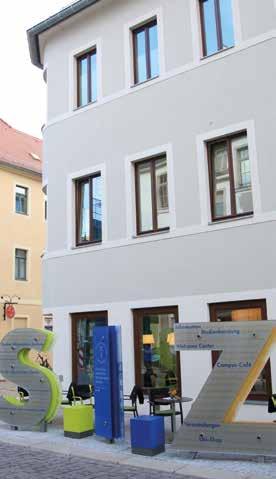


Agata Blinkiewicz: TU Bergakademie Freiberg is a research university, but with a strong focus on specific subjects. Can you list them?
Torsten Mayer, International Centre, TU Freiberg: It’s my pleasure! We have 64 degree courses in four areas: 1. Mathematics, Computer Science and Natural Sciences; 2. Geoscience, Geoengineering and Mining; 3. Engineering; 4. Economics.
What is the most characteristic of your university? Definitely it’s our long mining tradition. The Bergakademie Freiberg is the world’s oldest higher school of mining, founded in 1765. It has even served as a model for other schools of mining in Russia and Latin America. Today you can see the signs of that great heritage everywhere in Freiberg and on the campus.
How does the university cooperate with industry and region?
In third-party research funding we rank among the top 10 universities in Germany. Which means: not only a lot of companies cooperate with us, but they also pay a lot to receive the best for their research projects. Also the students of engineering degree courses have to take several internships and field trips in order to graduate. This requires a large pool of cooperative companies and contacts, which our institutes and professors have. What is more, PhD students can finance their studies with a position in a company (so-called industrial doctorate).
Who are the most famous researches that worked at TU Freiberg?
Freiberg has had a number of great scientists. Among them are: Alexander von Humboldt, the world-famous naturalist, who studied mining engineering in Freiberg, and Clemens Winkler who discovered the chemical element germanium (order number 32 in the periodic table of elements). In 1811 the chemist Wilhelm August Lampadius introduced the first gaslight in the European mainland.
That’s really impressing. And what are your current initiatives for young researchers?
We have ProRat – a board for all our PhD candidates. It has been founded to represent all PhD students of the university. It works as a political agent that attempts to influence the higher education policies.
Another example might be the financial support for female students to complete their PhD, which comes from the funds of the Rectorate's Commission for Gender Issues.
The "YoungGEOMATENUM international" program offers scholarships for the international mobility of young researchers.
Our Scientific Diving Centre teaches and trains young researchers in under-water techniques. This applies then to research in various fields, such as: hydrogeology, hydrochemistry, geoecology, (micro)biology and also engineering. At the end of the training, the participants receive a certificate of European Scientific Diver (ESD).
Do you have an offer with programs taught in English?
Yes, we have currently 8 degree courses in English. All of them are Master’s. The most popular is the MBA course "International Management of Resources & Environment" and also "Computational Materials Science" (Engineering sciences) as well as "Sustainable Mining and Remedi-
ation Management" (Mining and Geosciences). Every year, they attract students from all parts of the world. For a complete list of our courses, please visit our website: http://tu-freiberg.de/ en/studies.
TU Bergakademie Freiberg is truly an international university. How many of your students come from abroad?


Currently 24% of our students are the international ones. The top 10 countries of origin are: China, Iran, India, Mongolia, Russia, Pakistan, Vietnam, Ukraine, Poland and Chile/Cameroon/Colombia/Turkey.
Is there any kind of a buddy program for the international students?
Yes, we have a buddy program for the international students, especially for the new ones. The buddy usually helps with the flat, with formalities after the arrival and often guides the new student through the town and the campus.
And how about student life? Is there any international office that organizes social events and helps students from abroad to integrate?
There is an international office which is also a service partner for the international students. But the most social events for the students from abroad are organized by the very dedicated group of students called AKAS. During the semester they organize parties, excursions and evening events during which students can present their home country.

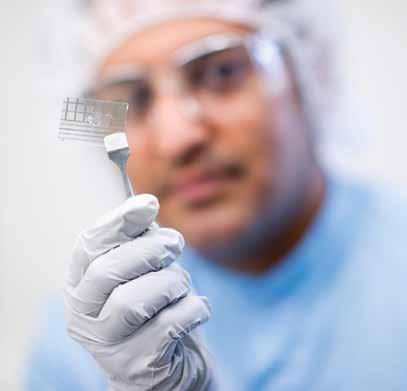
The University of Kassel is a young, modern, and vibrant university, characterised by its openness to new ideas in every single area of its work. Receptivity, initiative, transdisciplinary thinking and unconventionality are traits we cherish and welcome in studies, research and teaching, but also in knowledge transfer and entrepreneurial ventures, to which the university provides special support. We aspire to develop, validate and implement ideas – even if they are not yet in the mainstream. The University of Kassel has an unconventional profile with fields of expertise in nature, technology, culture and society. With more than 23,000 students and approximately 1,800 scholars, among them more than 300 professors, the University of Kassel is one of Germany’s mid-sized universities and attracts students and scholars from across Germany and abroad.
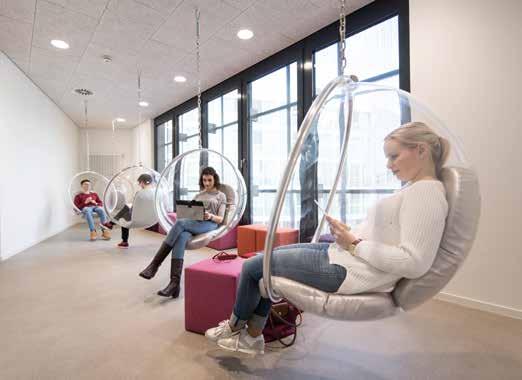




A perfect course for students, who have an eye for minute details and wish to examine things very closely. The programme focuses on further developing the interdisciplinary approach to physics, chemistry biology and applied issues, e.g. in fields of nanoelectronics, supramolecular chemistry or molecular biology.
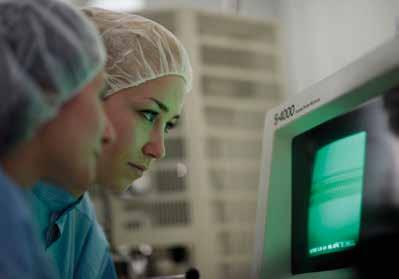
The programme will prepare you for a scientific career and research-related work in industrial projects. We offer you fascinating experiments in our laboratory and elaborate modelling in theoretical physics, both of them in a multinational research team environment with an intensive exchange of ideas.

Studying mathematics in Kassel means a close integration of theory and practice. Great emphasis is placed on modern, algorithmic and computer-oriented aspects of mathematics and the practical application of mathematical techniques.
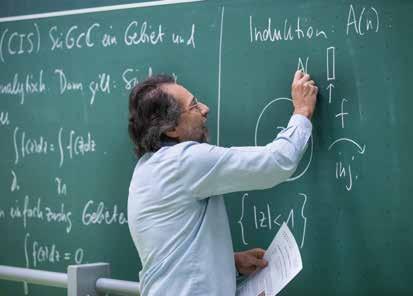
Thinking about interdisciplinary and practical studies in Germany? Then learn more about the Koblenz University of Applied Sciences.
Agata Blinkiewicz: What programs does the Mathematik und Technik Faculty offer?
Prof. Dr. Maik Kschischo: The Department of Mathematics and Technology offers degree programs in Mathematics and Engineering. We have three mathematics courses at the Bachelor level: Biomathematics, Business Mathematics, Technomathematics and one Masters course in Applied Mathematics. Our engineering courses are BSc’s: Laser and Optical Technologies, Medical Engineering, Sports Medical Engineering and a Masters course in Applied Physics.

Can your students participate in research projects?
We aim to integrate teaching and research as early as possible. The best students can participate as assistant students researchers after first year, and the last semester of our BSc includes a research project while the last one of Master is a pure research project.
Your programs combine mathematics/physics with biological sciences. Do you believe this kind of interdisciplinary approach is important in today's world? The most interesting research progress happens usually at the interface between disciplines. In the era of data science, we think that the coop -
eration between mathematical and physical modelling, data analysis and biomedical research is key to success in the future.
The programs you offer also seem to be practical. Do you have any partnerships with industry?
As a University of Applied Sciences, we collaborate with several industrial partners, where students can carry out applied research and projects during their studies. For example, we have Biomathematics students doing their project and thesis research in major pharmaceutical companies in Germany and Europe.
How would you recommend studying at the RheinAhrCampus of the Koblenz Univeristy of Applied Sciences?

We offer an excellent ratio between teaching staff and student number and we have excellent facilities and labs. We are a small but well equipped campus in the Rhineland with exciting opportunities for leisure and sports. We offer a semester ticket for public transport, which covers a huge area from Koblenz to Cologne at a very competitive price. The area is beautiful and the atmosphere is really friendly.
When is the nearest application period?
Students can enroll until September 30 for the winter term and until March 31 for the summer term. An exception is Sports Medical Engineering, where you have to apply by July 15 or January 15, respectively.
https://www.hs-koblenz.de/rac/fachbereiche/mut/studienangebot/
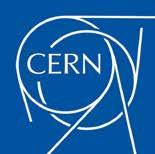
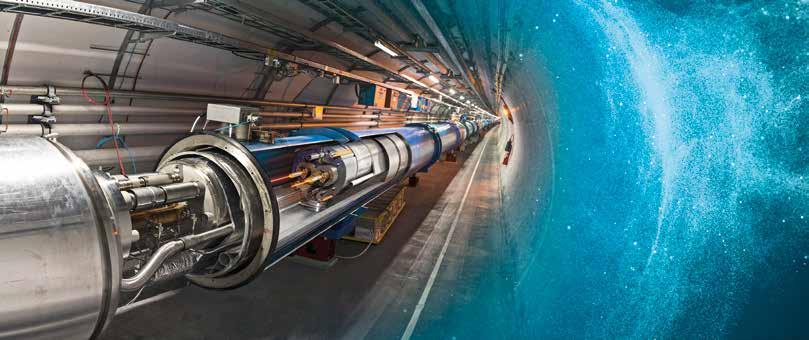
MSc programme in Environmental Protection at Adam Mickiewicz University comprises all issues of global environment protection, so it’s a perfect follow-up for young biologists!
Alicja Mrugał: Could you describe the MSc programme in Environmental Protection?
Adrian Surmacki, PhD, Department of Avian Biology and Ecology, Adam Mickiewicz University: The programme lasts four semesters and includes over 1,200 hours of lectures, laboratory classes, workshops, seminars and field trips. It has been designed to meet the expectations of candidates of various scientific interests and educational backgrounds. Beside obligatory courses, it offers a wide variety of elective courses. It gives students opportunity to tune the programme to individual’s needs and interests.

What are the major areas of the curriculum?
It covers four main areas: atmospheric quality and global change, water resource management, land use and environmental interactions, professional and research skills in practice. It has been designed to cover all the contemporary issues of global environment protection. For this reason, our teaching staff comes from various faculties and universities, for example also from the University of Life Sciences.
If it is so global, do you have many international students?
Yes, a majority of our students come from the European Union and other countries.
Do you also provide courses to improve English skills?
Yes, there is a 30-hour course in “Scientific English” during the first semester. Moreover, students have an opportunity to improve their language skills during “Journal Club”, where they can discuss recent scientific discoveries described in scientific journals.
What skills do your students acquire?
Students acquire a thorough knowledge necessary to carry out monitoring, analytical and consulting activities in the field of resource assessment and prevention of the destruction of the natural environment. We offer a number of courses which teach the students how to find and define research problems, obtain and analyse data collected from different sources, consult with experts, use statistical methods, and interpret as well as present the results of their analyses.
Moreover, the graduates are acquainted with the methods of effective team work, for example: how to choose the leader, share responsibilities, how to interpret the results of their analyses and draw conclusions in a team.
Some of the skills acquired during the studies may be particularly significant in their further work, for example, in Geographical Information Systems, waste management, laboratory methods of environment biomonitoring.
Speaking of work, I would like to ask about job opportunities for future alumni. Our graduates meet all the requirements of the market and they are well prepared to work in different institutions, science laboratories and businesses associated with environment protection, or those focused on natural resources.
What else does make the programme attractive for students?
One of the greatest advantages of our study programme is a comprehensive approach to all major aspects of environment protection. Our intention was to share our knowledge and practical skills which could be used by graduates irrespective of the conditions in countries where they will work. The graduates can evaluate and interpret various ecological processes, especially those that are important for making any decisions concerning natural environment.
Who can apply for the programme?
Anyone who has obtained a BSc in environmental protection, biology, biotechnology or a related discipline, can apply for the programme.
What are the other admission requirements for candidates?
Applicants have to pay a registration fee (50 Euro). All classes and lectures are held in English, so a good command of English is essential.
What is the admission process like?
The admission process is two-staged. First, documents submitted by candidates are assessed formally. Then, applicants are invited to an interview.
BIOTECHNOLOGY:
https://amu.edu.pl/kandydaci/kierunki-studiow/kierunki-na-litere-b/biotechnologia-studia-w-jezyku-angielskim https://rekrutacja.amu.edu.pl/en/studies-cataloge/biotechnology,40
ENVIRONMENTAL PROTECTION:
https://amu.edu.pl/kursy/ochrona-srodowiska-eng
https://rekrutacja.amu.edu.pl/en/studies-cataloge/environmental-protection,301
OUR FACULTY: http://international.amu.edu.pl/about_amu/faculty-of-biology/ https://bioleng.home.amu.edu.pl

Beside obligatory courses, the programme offers a wide variety of elective courses. It gives students opportunity to tune the programme to their individual’s needs and interest

Die TU Bergakademie Freiberg in Sachsen bietet exzellente Studienbedingungen in 69 Studiengängen in den Fachbereichen Mathematik, Informatik, Chemie, Physik, Geowissenschaften, Geo-Ingenieurwesen, Geotechnik und Bergbau, Maschinenbau, Verfahrens- und Energietechnik, Werkstoffwissenschaft und Werkstofftechnologie sowie Wirtschaftswissenschaften.


Eine Promotion ist in allen Fachbereichen prinzipiell möglich. Unterstützung erhalten Nachwuchswissenschaftler von der Graduierten- und Forschungsakademie.
Um formal promovieren zu dürfen, müssen Sie über einen Masterabschluss oder einen gleichwertigen Hochschulabschluss verfügen, welcher in Deutschland anerkannt ist. Die zweite Voraussetzung sind gute bis sehr gute Deutsch- oder Englischkenntnisse.
Auf der Webseite https://tu-freiberg.de/en/ grafa/application-doctoral-studies stehen zwei Wege der Bewerbung: 1. Die direkte,
persönliche Bewerbung bei einem Professor Ihres Fachgebietes oder bei einem Promotionskolleg, 2. Die Bewerbung über die Graduierten- und Forschungsakademie auf ein ausgeschriebenes Thema (siehe dort).
Eine allgemeine Promotionsberatung erhalten
Sie bei der „Graduierten- und Forschungsakademie“ – https://tu-freiberg.de/en/grafa/ consulting-and-coaching.
Empfehlung: Eine Professorin oder ein Professor der TU Bergakademie Freiberg muss Sie und ihr Promotionsvorhaben betreuen.
Dr.-Ing. Grzegorz Korpala hat am Institut für Metallformung promoviert. Der Pole kam 2008 im Rahmen eines Doppel-Diplom-Programms von der Akademia Górniczo-Hutnicza im. Stanisława Staszica w Krakowie an die TU Bergakademie Freiberg. Hier lernte er neben dem Studium Deutsch und erwarb nach nur drei Semestern den doppelten Universitätsabschluss. Anschließend promovierte er in einem Doppel-Promotions-Programm der genannten Universitäten. In seiner Promotion untersuchte er ultrahochfesten Stahl. Auftraggeber des Promotionsprojektes war die Unternehmensgruppe Thyssenkrupp, von der er dafür ein Vollzeitstipendium erhielt. Drei weltweite Patente sind aus dem Forschungsprojekt hervorgegangen.


Grzegorz Korpala arbeitet am Institut für Metallformung und ist Leiter der Gruppe Warmumformsimulation. Er betreut Gast-Wissenschaftler von den polnischen Partneruniversitäten AGH Krakau und Politechnika Śląska.
Recherchieren Sie daher zunächst, ob es ein passendes Forschungsvorhaben an der TU Bergakademie Freiberg gibt. Ein guter Startpunkt ist die Webseite „Forschungsprojekte“ unter https://tu-freiberg.de/en/research/ projects.
Im Rahmen eines Beschäftigungsverhältnisses mit der TU Bergakademie Freiberg – Stellenausschreibungen für wissenschaftliche Hilfskräfte finden Sie unter https://tu-freiberg.de/wirtschaft/karriere/stellenausschreibungen/ausschreibungen/5
In der Regel können solche Stellen mit einem Promotionsvorhaben kombiniert werden. Stelle in einem Industrieunternehmen (Industriepromotion)
Stipendium oder Stelle im Rahmen eines Graduiertenkollegs der TU Bergakademie Freiberg, weitere Informationen: https://tu-freiberg.de/en/grafa/graduiertenkollegs

Stipendium: Der Deutsche Akademische Austauschdienst vergibt Vollzeitstipendien an Nachwuchswissenschaftler aus dem Ausland.
Weitere Informationen: https://www.daad.de/ en/study-and-research-in-germany/scholarships/daad-scholarships/
Die Forschungsbedingungen an der TU Bergakademie Freiberg können sich auch im internationalen Vergleich sehen lassen. Geforscht wird an 42 Instituten sowie in 6 universitäre Kompetenzzentren wie dem Deutschen Brennstoffinstitut DBI/Bergakademie, und dem neuen Zentrum für effiziente Hochtemperatur-Stoffwandlung ZeHS. Die überdurchschnittlich hohen Drittmitteleinnahmen für industrienahe Forschungsprojekte betrugen im Jahr 2019 59 Millionen Euro.
KURZ NOTIERT
82 abgeschlossene Promotionen im Jahr 2019
dav. 28% Frauen
1/3 der Promovenden aus dem Ausland
Erfindungen und Patente
30 Erfindungsmeldungen (2019)
24 Patentanmeldungen (2019)
Die TU Bergakademie Freiberg verfügt über international konkurrenzfähige Forschungsbedingungen und eine hervorragende Forschungs-Infrastruktur. Zuletzt wurde am 22. Februar 2021 das „Zentrum für effiziente Hochtemperatur-Stoffwandlung – ZeHS” fertiggestellt. Es ist eines der modernsten Forschungszentren für Hochtemperaturprozesse (über 500 Grad Celsius) in Deutschland. Weitere Informationen unter www.zehs-freiberg.de
Zentrum für effiziente Hochtemperatur-Stoffumwandlung

Warszawska Szkoła Doktorska Nauk Ścisłych i Biomedycznych Warsaw-4-PhD

oferuje niezwykłe studia w dziedzinie nauk chemicznych!
Instytut Chemii Organicznej PAN w Warszawie to ośrodek naukowo-badawczy z ponad pięćdziesięcioletnim doświadczeniem w kształceniu młodych chemików. Do tej pory działało tu najstarsze studium doktoranckie w kraju. Teraz masz możliwość zrobienia doktoratu w ramach Warszawskiej Szkoły Doktorskiej Nauk Ścisłych i Biomedycznych Warsaw-4-PhD. Instytut prowadzi kształcenie w zakresie: metodologii syntezy organicznej, chemii supramolekularnej i chemii materiałów o określonych właściwościach, chemii związków naturalnych, ich modyfikacji i wykorzystania w syntezie oraz badań strukturalnych związków z wykorzystaniem metod spektralnych i obliczeniowych.
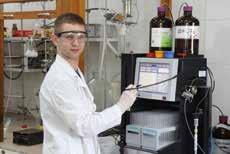
W Instytucie nie brakuje ambitnych, nowoczesnych projektów badawczych, w doskonale wyposażonych laboratoriach. Spotkasz tam wybitnych naukowców, laureatów prestiżowych nagród oraz autorów książek i opracowań naukowych, z których pewnie miałeś okazję się uczyć!
Jeśli lubisz pracę laboratoryjną i interesujesz się wymienionymi aspektami, pomyśl o karierze naukowej po studiach drugiego stopnia.
W IChO masz szerokie możliwości wyboru typu prowadzonych badań. Ważna tam jest interdyscyplinarność, innowacyjność i współpraca z innymi ośrodkami. Znajdziesz tu zespoły badawcze zajmujące się nowoczesną syntezą chemiczną ukierunkowaną na poszukiwanie leków i materiałów funkcjonalnych nowej generacji. Spotkasz grupy udoskonalające techniki analityczne, takie jak magnetyczny rezonans jądrowy, spektrometria masowa, metody chiralooptyczne i optyczne obrazowanie molekularne.
Wiele zależy od Ciebie! – Bardzo cenię sobie poziom badań naukowych realizowanych w Instytucie, nie tylko moich, ale również moich kolegów i koleżanek. Placówka daje ogromne możliwości w zakresie aparatury naukowej, dostępności wyspecjalizowanych odczynników
oraz możliwości finansowania badań – podkreśla Mateusz Garbacz, doktorat w Instytucie. W trakcie studiów doktoranckich będziesz mógł też oczywiście ugruntować i pogłębić wiedzę zdobytą na wcześniejszych etapach edukacji. – Poszerzenie naukowych horyzontów możliwe jest dzięki uczestniczeniu w konferencjach, wymianach międzynarodowych, czy wykładach zapraszanych przez instytut naukowców – zachwala Joanna Jaszczewska-Adamczak, doktorantka, która rozpoczęła tu doktorat po 9 latach pracy w firmie farmaceutycznej.
Po ukończeniu studiów doktoranckich Instytut ułatwia każdemu absolwentowi znalezienie miejsca w dobrym zespole naukowym – najczęściej w USA, Japonii i krajach Europy Zachodniej – w celu odbycia stażu podoktorskiego. Dla najlepszych, po powrocie ze stażu, istnieje możliwość kontynuowania pracy w IChO. Jednostka oferuje również staże na -
ukowe i zachęca do składania samodzielnych projektów badawczych, stwarzających szanse uzyskania w ciągu paru lat stopnia doktora habilitowanego.
– Absolwenci naszej, elitarnej w Polsce, jednostki są cenionymi specjalistami w przemyśle, jak i w jednostkach B+R – zarówno w kraju, jak i za granicą – mówi Joanna Jaszczewska-Adamczak. Pamiętaj więc, że nawet jeśli nie zdecydujesz się na karierę naukowca, doświadczenie i szeroki zasób wiedzy zdobyty w Instytucie oraz w trakcie staży za granicą będą Twoim kapitałem na rynku pracy. – Po zakończeniu doktoratu mam nadzieję na zatrudnienie w jednej z firm farmaceutycznych, w której dzięki zdobytemu doświadczeniu mógłbym prowadzić badania nad rozwojem nowych leków – opowiada o swoich planach Mateusz Garbacz.
Dlaczego jeszcze warto?
Swoim doktorantom Instytut zapewnia stypendium doktoranckie. A jeśli Twoje osiągnięcia okażą się nadzwyczajne, będziesz mógł ubiegać się również o atrakcyjne stypendia krajowe dla młodych naukowców. Osoby spoza Warszawy mogą mieszkać w czasie studiów w hotelu doktoranckim, znajdującym się na terenie Instytutu. Hotel posiada pokoje jednoosobowe z łazienką i aneksem kuchennym, a opłata za mieszkanie jest dużo niższa od cen rynkowych.
W związku z wprowadzeniem od tego roku szkół doktorskich rekrutacja może wydawać Ci się mniej jasna, ale to zupełnie niepotrzebne obawy. W IChO odbywa się ona na podstawie rozmowy kwalifikacyjnej, obejmującej zagadnienia z zakresu zaawansowanego kursu chemii organicznej i podstaw spektroskopii związków organicznych. Rekrutacja trwa od 4 czerwca, a dokumenty należy składać do 21 czerwca. Rozmowy odbędą się w dniach 1–12 lipca. Powodzenia!
Agata Rzeszuto
w INSTYTUCIE CHEMII ORGANICZNEJ POLSKIEJ AKADEMII NAUK

INSTYTUT PROWADZI KSZTAŁCENIE
DOKTORANTÓW W ZAKRESIE:
• metodologii syntezy organicznej;
• chemii supramolekularnej i chemii materiałów o określonych właściwościach;
• chemii związków naturalnych, ich mody fi kacji i wykorzystania w syntezie;
• badań strukturalnych związków z wykorzystaniem metod spektralnych i obliczeniowych.
W INSTYTUCIE:
• realizujemy ambitne, interdyscyplinarne projekty naukowe krajowe i międzynarodowe;

• współpracujemy z najlepszymi ośrodkami naukowymi w kraju i zagranicą;
• dysponujemy aparaturą naukową najwyższej klasy.
DOKTORANTOM ZAPEWNIAMY:
• stypendia dla wszystkich doktorantów;
• podnoszenie kwalifikacji poprzez udział w wykładach i seminariach naukowych;
• udział w konferencjach i wymianach międzynarodowych;
• prywatną opiekę medyczną
• możliwość zakwaterowania w hotelu doktoranckim na terenie Instytutu.
Odbywa się na podstawie rozmowy kwalifikacyjnej, obejmującej zagadnienia z zakresu zaawansowanego kursu chemii organicznej i podstaw spektroskopii związków organicznych.
Termin rekrutacji: 4–21 czerwca 2019
Dokumenty należy składać do dnia 21.06.2019
Rozmowy kwalifikacyjne 1–12 lipca 2019

Pełna informacja jest dostępna na stronach: www.icho.edu.pl/szkola-doktorska/ oraz http://warsaw4phd.eu/
Kontakt: Instytut Chemii Organicznej PAN
Kasprzaka 44/52, 01-224 Warszawa tel.: +48 22 343 20 51, fax: +48 22 632 66 81 e-mail: szkola_doktorska@icho.edu.pl
The Department of Civil and Environmental Engineering is one of the founding disciplines of Darmstadt University of Technology. As one of the most renowned universities in Germany, it is located in the heart of Europe in one of the fastest growing metropolitan regions in Germany. Today, we are pleased to present two of our master‘s degree programs from our range of courses.
The four-semester Master of Science Civil Engineering program at Darmstadt University of Technology qualifies you for an interdisciplinary engineering career.


When compiling your study and examination plan, we offer you numerous options to choose from. Three or four research subjects can be taken, from which one is chosen as a research in-depth subject and leads up to the Master‘s thesis. The study is bilingual (German and English). In the first year, there is a predominantly English-language programme to give students the opportunity to better prepare themselves linguistically for the German-language modules. You will benefit from our practice-oriented master‘s program, which is supported by numerous partners in industry and business and enables exceptional interdisciplinary studying at one of Germany‘s leading TU9 universities.
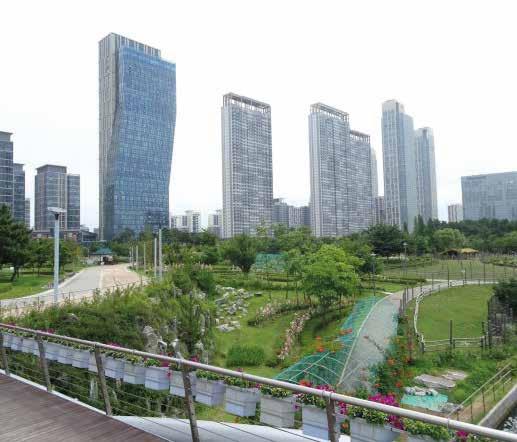
Students of TU Darmstadt study the four-semester english Master‘s program both in Darmstadt and in Ho Chi Minh City, Vietnam (3rd semester). Both universities award a joint degree Master of Science. This study program addresses international challenges of sustainable urban development. Graduates will be able to manage and implement complex urban development projects at the district, neighborhood and individual building level. In this study program, students are taught the broad spectrum of knowledge and methods required for this. This includes, for example, the areas of sustainable construction, infrastructure development and management, urban development planning, urban-rural relations, and economic efficiency.
For further information on the study program and enrollment, interested students can visit the pages of the Central Student Advisory Service of the TU Darmstadt and the Department of Land Management.
You can find all information about this program on our website: https://www.bauing.tu-darmstadt.de/studium_bau_umwelt/studierende_bau_umwelt/studienangebot_1/bauingenieurwesen_1/master_bauingenieurwesen/master_civil_engineering.en.jsp
You can find all information about this study program on our website:
https://www.bauing.tu-darmstadt.de/sud/sud_start/willkommen_ sud/index.en.jsp
Do you want to know more? Click here to join our homepage: https://www.bauing.tu-darmstadt.de/fachbereich_bau_umwelt/index.en.jsp Do you have any questions? Write us directly: international@bauing.tu-darmstadt.de

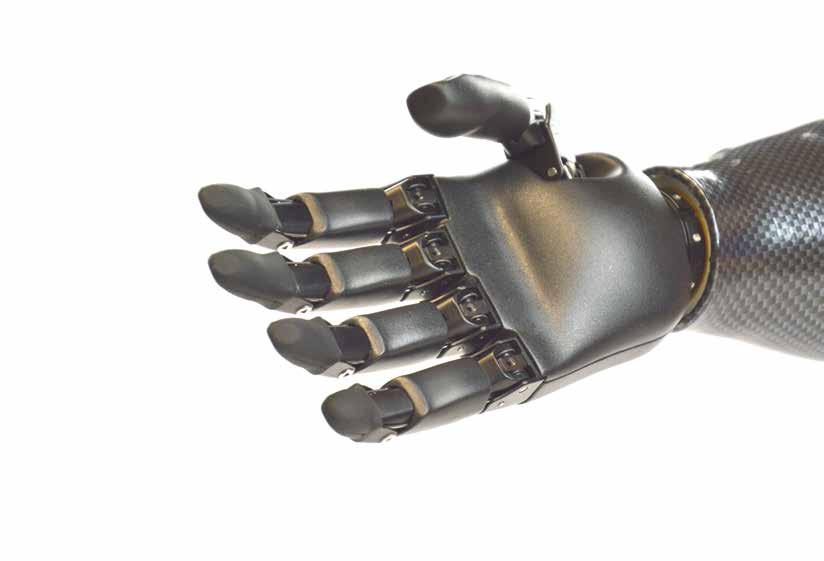
FAU has five faculties and offers 261 degree-programs. Tell us about the one you chose.
I chose the Master’s course in Climate and Environmental Sciences, with the specialization in Geoinformatics, because I graduated in Environmental Engineering in Poland, so I had to pick something similar and luckily I was accepted. We do some GIS programming, data analysis, remote sensing and see a few amazing places (like the Alps and glaciers) during the university excursions!

We are sure that you also considered other universities. Why did you decide to do your Master’s here at FAU in the end?
I only knew I was going to try to apply for a Master’s course in Germany, but I had no idea in which place exactly. Apart from FAU, I applied also to the Universities of Cologne, Darmstadt, Koblenz-Landau, Magdeburg, Trier and was admitted to all of them, but FAU had the highest position in the university ranking among them all!
After having been here for more than a year, what do you like best at FAU? What should we improve?
I really appreciate the level of education and the attention to details that all the professors have. I really feel like I’ve learned a lot. The University also gave me the opportunity to experience a year in Spain, during the Erasmus Programme, which all was super easy to apply for and to deal with. All the people are really helpful.
As for the improvement, I’ve had a few situations with the people from administration offices (not at my department though), where the fact that I didn’t speak German (which wasn’t a requirement to apply for the Master’s course) made it difficult to communicate. I would understand that at the street or other places, but not at the University facility.
Although Germany and Poland are neighbours, there are a few cultural differences, which might also apply to the classroom. Do you have the impres -
sion that the style of teaching differs between our two countries?
Can you share any funny intercultural stories with us?
That is true, there are many differences, but I consider Germany as a better place to study (don’t tell anyone…! ;) ).
The style of teaching is much stricter, that’s for sure, but you pay attention to the practical aspect of studying, which is brilliant. If somebody wants to know the theory behind it, they have to do some research on their own. I hadn’t had any issues in the classroom (personally), related to those differences, maybe the reason behind that is the fact, that we are close neighbours. I’m sure though, that if you ask the people from further away they’ll tell you some really funny stories.
You took part in FAU's Buddy Program. Can you tell us what it is and why you participated?
You get your personal guide throughout the whole acclimatization process! It’s brilliant. At the beginning, you have so many questions, even about your timetable and that might be tricky for somebody who comes from a very different system and background. I was lucky to meet a nice buddy who answered all of my questions and gave me some tips about studying and the city, all stress-free and easy.
FAU’s offers several support services for its students. Did you use any such as the accommodation-assistance?
Yes, I emailed them before coming to Erlangen, but I wasn’t moving alone so I ended up searching the websites. It wasn’t easy! So, I realized, it is important to look for it much earlier than I expected.
How expensive is living in Erlangen? Is there any tuition fee at FAU? How about the living costs?
Yes, there is a tuition fee of a bit more than 100 euros per semester. That is really nothing. Living costs are fine; the food isn’t too expensive but the rent and the health insurance! Yeah, you might want to research those a bit longer.
Do you think studying at FAU has given your career perspectives a boost?
Soooo much. I love it. I learned a lot and I’m feeling a bit more ready for a professional career… I focused on the practical aspect of my field of study and discovered many new perspectives!
Last but not least, would you recommend other students to come here for their Master’s degree? If so, what would be your marketing slogan to attract them?
Definitely. I’d say, if you want to become a professional, with an actual practical experience and feel like you actually represent a decent level of knowledge and skills – definitely apply to FAU! Just learn a bit of German before.
LMU University of Munich, Germany, offers a three-year BA programme in Italian philology (linguistics and literature; major of 120 credit points, to be combined with a minor of 60 credit points, according to European Credit Transfer System) as well as a twoyear masters programme in Italian Studies (120 credit points ECTS).


The BA consists of an intensive Italian language course and various seminars on linguistics (diachronic and synchronic), history and theory of literature from the 13th to the 21st century, cultural studies, history and theory of media. Furthermore, there is a choice between an extension module in intermediality and its theory (studying phenomena like opera or film) and a basic course in Latin (useful for further studies, if you don’t have any Latin). At the end of the BA course, candidates must write and discuss a BA thesis.
Courses start every winter term (mid-October).
Prerequisites for EU nationals are a higher education entrance qualification (to be checked by the LMU foreign office) and a certificate attesting C1 competence in German (this latter document to be produced at the moment of matriculation, in autumn). You can study our BA starting with basic Italian, but a more advanced knowledge of Italian is certainly an advantage.
The MA consists of an advanced language course and various master seminars grouped into several modules: the module of “philology” offers deeper insights into linguistics and/or the history and theory of literature (specialization in either literature or
linguistics is possible, but not necessary); the module, “history, culture, text” offers seminars and courses on phenomena of Italian history, the history of Italian philosophy, Latin literature, or Roman archaeology; the module, “Italy and the arts” offers seminars and courses in intermediality, history of Italian art and music; the (somewhat smaller) “practical module” includes topics such as literary translation, organizing your research, planning and management of cultural events or the like. There is always a certain choice every term, but the actual subject matters on offer within these modules may differ according to availability. At the end of the MA course, candidates must write and discuss an MA thesis. Courses start every winter term (mid-October).
Prerequisites for EU nationals are a higher education entrance qualification (to be checked by the LMU foreign office), a BA in one of the humanities, in the course of which the successful candidate has acquired at least 12 credit points (according to ECTS) in Italian linguistics and/or literature or an equivalent (subject to evaluation by a committee within our faculty), documen tation (by transcript of records or separate certificate) of B2 competence in Italian and A2 in either Latin or a second Romance language, and a certificate attesting C1 competence in German (all language cer tificates to be produced at the moment of matriculation, in autumn). There is an ap plication procedure, which requires you to send in certain documents as well as a very short essay on a subject speci fied on our homepage (https://www. italianistik.uni-muenchen.de/studium_lehre/studiengaenge/m_a_/ master_italienstudien/index.html , click on “Bewerbungsbogen”). An interview might be required, if your application is not conclusive. The official deadline for masters
applications is July 1st 2020, but this year; but due to the special situation with CoVid19, some flexibility will be granted.
Alternatively, you can study Italian literature or linguistics within the LMU masters programme in Romance Philology, in the context of other Romance languages.
Further information can be found here: https://www.italianistik.uni-muenchen.de/ studium_lehre/index.html
Institut fuer Italienische Philologie
Ludwig-Maximilians-Universsitaet
Schellingstrasse 3
D-80799 Muenchen
Where else could you experience three languages and cultures in just one day? Where else could you enjoy the view of the Alps and then breathe the scents of the Mediterranean? Where else can you ski down the slopes and enjoy the cultures of three provincial capitals of different countries in just one day?
The geographical position of Carinthia in the South of Austria is not only attractive because of its natural beauty, the numerous lakes, and the mountains – it is also an important axis of cultural and intellectual exchange in the Alpine-Adria Region.
Especially the fast growing markets in the neighboring EU counties Slovenia or Croatia open up additional career possibilities for qualified, motivated, and well-educated people with inter-cultural background and foreign language competencies. By the same token, our students can benefit from the long tradition of business relationships between Carinthia, Italy, and Slovenia.
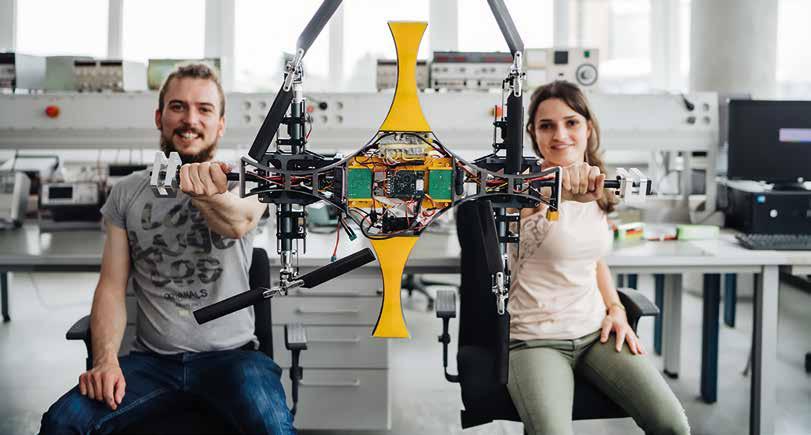

The international, borderless idea of Carinthia University of Applied Sciences (CUAS) is also apparent in the intensive academic exchange with more than 100 partner universities and numerous contacts to business partners all over the world. Students are offered a wide variety of choices for study exchange and internships worldwide.

CUAS in Villach (www.villach.at) is situated next to one of the main traffic junctions to Italy, Salz-
burg and Vienna. You can reach the city center within 10 minutes by bus. There you can spend your time shopping or resting in modern cafés or bars. You could also take a day-trip to Italy or Slovenia. Villach offers a variety of events throughout the year (the famous carnival – Villacher Fasching, the festival – Villacher Kirchtag, The European Harley Bike Week, Jazz over Villach, Honky Tonk Festival, Summertime, bars outside in the nature – Ackern, or the juggler festival, etc).
CUAS in Klagenfurt (www.klagenfurt.at) is the fourth site. In our provincial capital you can experience a variety of leisure time possibilities. Lake Wörth alone offers numerous event highlights in Carinthia throughout the summer. Exciting evenings in Velden, Pörtschach or at the city borders of Klagenfurt are bound to happen! Must-see events include the Ironman Austria, star night in Pörtschach, Fete Blanche in Velden, as well as the Beach Volleyball Grand Slam event in Klagenfurt. The renown Stadttheater Klagenfurt offers plays for many different tastes. To sum up, Klagenfurt is a happening place, with a lot of events and definitely worth-while seeing.
All the information about accommodation in Villach and Klagenfurt, costs of living, tuition fee per semester, health insurance for international students, residence permit and student discounts, bars and night life, grants, part-time students and scholarships can be found here: https://www.fh-kaernten.at/en/ en/cuas/students-life
For getting information about the students’s life please read our FRESH BLOG: https://blog.fh-kaernten.at/fresh/
The “Engineering & IT” Department is situated in Villach and Klagenfurt. CUAS offers 10 Master degree programs in this special field. The wide range of technical courses ranges from information technologies with different focuses to classical engineering studies.:
• Applied Data Science (English) www.cuas.at/appds
• Communication Engineering (English) www.cuas.at/ce
• Electrical Engineering & Mobility Systems (English) www.cuas.at/eems
• Health Care IT (English) www.cuas.at/hcit
• Industrial Engineering & Management (German) www.cuas.at/iem

• Industrial Power Electronics (English) www.cuas.at/ipe
• Integrated Systems and Circuits Design (English) www.cuas.at/iscd
• Light Weight Engineering (German) www.cuas.at/mblb
• Spatial Information Management (English) www.cuas.at/sim
• Systems Design (English) www.cuas.at/sd
The Online application is possible here: https:// bewerbung.cuas.at/en.html
An Application for the winter semester 2021 is possible from 1 November 2020 on. We recommend that you apply early in order to secure your desired study place.
The study range Engineering & IT presents immediately all laboratories in a comprehensive laboratory folder: on 60 pages are now summarized: the respective equipment, the knowledge acquisition as well as the courses taking place in the laboratories in Villach and Klagenfurt. Statements from students, graduates and teachers round off the package.
The “Smart Lab CARINTHIA“ in Lakeside Klagenfurt is the youngest lab in the “Engineering & IT“ study area.
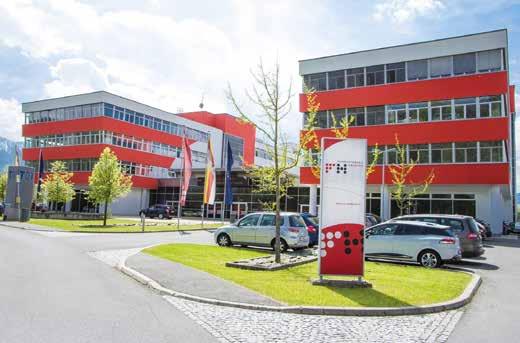
Have a look at our brochure: https://www.yumpu.com/kiosk/fh-kaernten/ labore-der-fh-karnten/63336430
2. SMART LAB
The Smart Lab Carinthia is a laboratory in which your own ideas can be carried out and the prototypes can be produced with professional support. The equipment includes production machines such as 3D printers and scanners, laser cutters, cutting plotters, CNC milling machines, electronics workstation and suitable design software.
3. PRACTICAL PROJECTS
Our students are not only taught the theoretical basics, but also implement what they have learned independently in “real“ projects with external training partners. They implement their individual practical projects in cooperation with private companies, public institutions, NGOs or in research projects of the course.
4. COOPERATION WITH COMPANIES
Students use these cooperation to gain practical insights and learn from current tasks. In addition, many companies benefit from contact with students because they get to know potential employees at an early stage.
STUDENT LIFE:
5. STUDY & WORK
In cooperation with Infineon Technologies Austria AG, we offer first-year students of the Systems Engineering course the opportunity to combine studying and working while working. Further partners are PMS, M-Tech and NTS. Our study and work partners are listed here: www.cuas.at/studyandwork
6. GRÜNDERGARAGE AND

Especially in the start-up phase, the Gründergarage provides young entrepreneurs with a top infrastructure. Equipped with Internet and software access including support, proximity and use of the laboratory facilities on the Villach campus as well as personal and professional support from the University of Applied Sciences. More information here: https://www.fh-kaernten.at/en/en/cuas/innovation-entrepreneurship
7. ADD-ONS
As an additional competence for the start of studies, the consolidation of knowledge in the MINT (Mathematics, Informatics, Natural Sciences and Technology) areas helps to facilitate the start of everyday study.
https://blog.fh-kaernten.at/fresh/
www.fh-kaernten.at/en/en/cuas/students-life
www.visitvillach.at/en
www.visitklagenfurt.at/en/
STUDY & WORK:
www.fh-kaernten.at/en/en/cuas/study-work
YOUR OWN BUSINESS:
www.fh-kaernten.at/en/en/cuas/innovation-entrepreneurship
OUR BROCHURES:
www.yumpu.com/kiosk/fh-kaernten/labore-der-fh-karnten/63336430
APPLY ON-LINE:
https://bewerbung.cuas.at/en.html
O dziedzina nauk ścisłych i przyrodniczych w dyscyplinie: nauk o Ziemi i środowisku
O dziedzina nauk inżynieryjno-technicznych w dyscyplinie: automatyka, elektronika, elektrotechnika i technologie kosmiczne
Studia odbywają się według ogólnych zasad ustalonych dla Szkół Wyższych i Instytutów PAN.
Kandydat powinien mieć ukończone studia wyższe w dziedzinie bezpośrednio związanej z badaniami kosmicznymi (geofizyka, astronomia, fizyka, geodezja) lub takiej, która może być wykorzystana w takich badaniach (np. elektronika, informatyka, matematyka, inżynieria materiałowa, mechanika, geologia, inżynieria środowiskowa). W szczególności, kandydat powinien wykazać, iż odbyte studia wymagały zaliczenia egzaminów z matematyki w ciągu nie mniej niż czterech semestrów. Wymagana jest także dobra znajomość języka angielskiego.
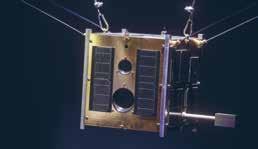

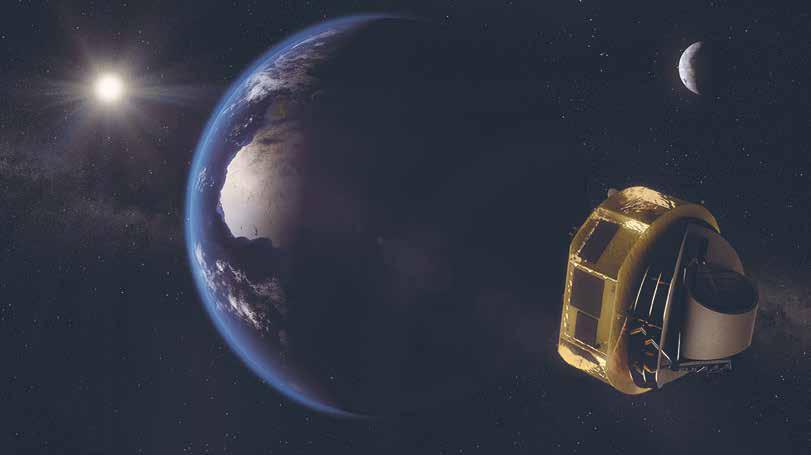

Przyjęcie na studia doktoranckie uzależnione jest od wyniku planowanej na wrzesień 2023 roku rozmowy kwalifikacyjnej. Osoby przyjęte otrzymują w czasie trwania studiów stypendium doktoranckie, zgodnie z Ustawą Prawo o szkolnictwie wyższym i nauce. W czasie studiów doktoranci mogą uczestniczyć również w projektach badawczych finansowanych przez Komisję Europejską, Europejską Agencję Kosmiczną (ESA) oraz MNiSW. Wybranym (w konkursie) studentom oferujemy możliwość częściowej realizacji studiów doktoranckich we współpracy i w ośrodkach europejskiego przemysłu kosmicznego.
Wymagane dokumenty: wniosek o przyjęcie do szkoły doktorskiej, odpis dyplomu ukończenia studiów magisterskich bądź zaświadczenie o ich ukończeniu, wykaz ocen uzyskanych na studiach pierwszego i drugiego stopnia, życiorys zawierający przebieg dotychczasowego kształcenia i zatrudnienia, list motywacyjny, certyfikat lub inne dokumenty świadczące o stopniu znajomości języka angielskiego jeśli nim dysponuje, co najmniej jeden list rekomendacyjny od dotychczasowego opiekuna naukowego lub innego pracownika naukowego na temat dotychczasowej działalności naukowej. Dokumenty należy dostarczyć wyłącznie w formie elektronicznej przesyłając je na adres: studium@cbk.waw.pl.
Dodatkowe informacje można uzyskać w Centrum Badań Kosmicznych PAN, tel. (22) 4966 236 email: studium@cbk.waw.pl
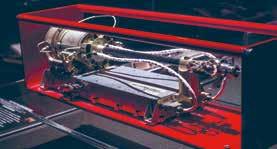
Szczegółowy terminarz naboru do szkoły doktorskiej GeoPlanet w Centrum Badań Kosmicznych umieszczony jest na stronie internetowej CBK PAN https://cbkpan.pl/ksztalcenie/szkola-doktorska/rekrutacja-2023-2024/


You take part in FAU's Buddy Programme. What is it and why do you participate?
A Buddy Programme is a form of students helping newcomers to get around during their first days in their new country. I had to move only 500 km to get to Erlangen, still many things were different here. My buddy helped me a lot. Now I know more or less what difficulties foreigners may meet and I want to help them too.
How expensive is studying at FAU? Is there any tuition? And how about the costs of living?
Agata Blinkiewicz: Weronika, you had chosen Erlangen as your destination for your Erasmus-Exchange. Tell us why, and what made you come back to FAU again, to pursue your Master's degree. Weronika Karawacka: I had come to Erlangen for my Erasmus-Exchange, since many courses are taught here in English. Studies here are quite customizable, yet on a very high level, professors are friendly and helpful, and you can choose from a variety of interesting fields of research for your Thesis. So later on, I decided to come back and finish my Master level here.
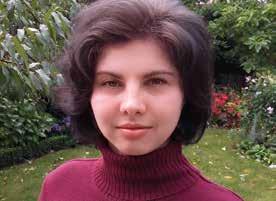
FAU has a wide offer, with 5 faculties and 263 degree programs. Which one have you chosen?
I've chosen Chemistry at the Faculty of Sciences.
What do you like the most about studying at FAU? Holidays, when I come back to my friends and family (laugh). But seriously, I really like it here. Especially the fact that you join the actual research group for your Thesis and your results are likely to get published. Also people here study because they want to, not because “their mom told them to”, like it often happens in Poland.
Do you think it is easy to find a job after FAU? Is there any kind of a career centre that is helping students?
I've heard that FAU graduates are strong competitors on the job market in Germany. There is a career centre organizing workshops for students on how to prepare application documents and how to excel on a job interview. Places are limited, so you have to register a few months earlier.
Studying itself costs almost nothing. There's only semester fee of about 110 euros which includes a night + weekend bus ticket. All the books you may need you can borrow from the library, lectures are available online and copy machines for students are 5 cent per page. When it comes to the costs of living, it gets more complicated. Monthly, you'll need about 200 euros for your rent and about 300 for food + once-a-week-party. There is one more thing every student must get, a bike. But you can get a used one for about 50 euros.
What do FAU students usually do in their free time, besides riding a bike?
During the week they cook together, party downtown, go shopping, etc. On weekends they can also make trips around the whole region! With a semester ticket you can go, for
example, to Nurnberg (the capital of Franconia), Bayreuth (the city of Wagner), Bamberg (famous for its smoked beer), to the lake (Brombachsee) or to the wonderful Christmas market in Rothenburg.
And how about Erlangen itself – how do you like it?

It's a small city, you can get everywhere by bike in 15 minutes, yet everything is there: parks, shops, music clubs, pubs and restaurants, cinema, theatre and so on. Plus, it's unbelievably multicultural, you can find people from all over the world here. Not a place to get bored!
Are there many opportunities for student jobs in Erlangen?
There are plenty. Finding a side job for an EU student takes one day. You must, however, speak some basic German, as there are mostly jobs in customer service (all sorts of food places). If you know some computer language, it is also possible to find a well-paid job at Siemens.
If you were to name three most important things about the city and the university, what would they be? Bicycles, international students, joy.
How would you recommend studying and living in Erlangen to others?
If you consider going abroad, come to Erlangen, you won't be disappointed. If you hesitate, make up your mind! Leaving home takes some courage, but you can only regret not doing it.
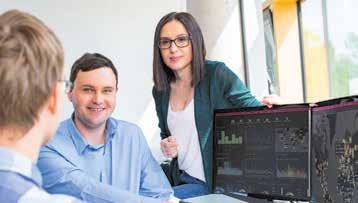
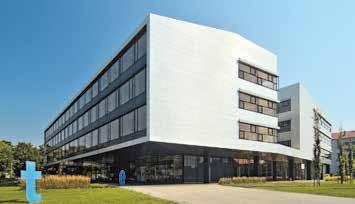
TU Kaiserslautern (TUK) is a medium-sized university with focus on technology and natural sciences, located directly at the Palatinate Forest with currently about 14,500 students and 2,500 employees, thereof 200 professors.
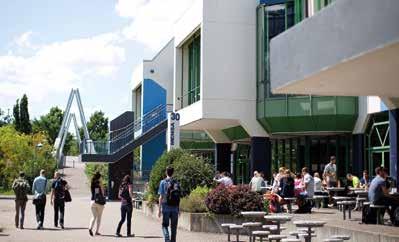
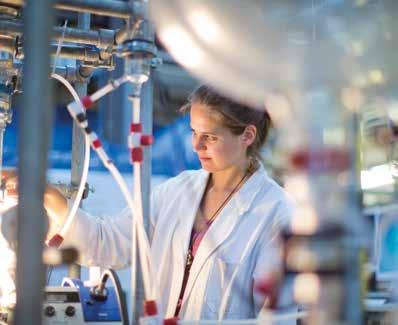
For those interested in Technology and Natural Sciences, the TUK offers a wide range of excellent courses running into more than 100 subjects. Many of the courses are of interdisciplinary orientation and the students have the option of combining subjects selected from natural sciences, engineering and economic sciences.
Almost all Master courses are offered in English. Moreover, the faculties of mechanical engineering and process engineering, including the faculty of economic sciences offer courses which can also be completed with German-French double graduation. The TUK has partnership treaties with more than 250 universities around the world.
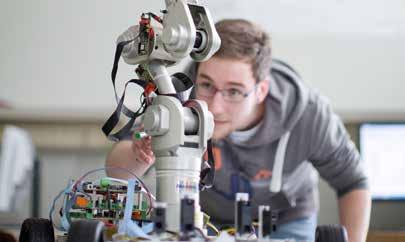
The focus of teaching is more on practice. The research buildings and lecture halls are located on the campus at close proximity. There are also many renowned institutes, such as the German Research Centre for Artificial Intelligence (das Deutsche Forschungszentrum für Künstliche Intelligenz – DFKI), the Fraunhofer Institute for Experimental Software Engineering (IESE) and for Technology and Economic Mathematics (ITWM), as well as the Max-Planck Institute for Software Systems (MPI), all of which work in close cooperation with the TUK and are just a stone’s throw away from the university.
TUK also puts great emphasis on a transfer to the economy. This results in a profitable cooperation with the regional industry and economy, both on a national and international level.

Program fees are covered by the state of Rhineland-Palatinate, so that international students do not have to pay for their studies. Kaiserslautern is a midsize city with good connections to bigger cities, such as Frankfurt, Paris or Stuttgart, and an international culture. It offers you a green environment and affordable living costs as well as a wide range of sports and cultural activities.
The perfect environment to start your future now!
photo Christian MückschWydział Fizyki i Astronomii Uniwersytetu Wrocławskiego serdecznie zaprasza na studia II stopnia oraz do kształcenia w nowym Kolegium Doktorskim.
Oferujemy ciekawy zakres studiów, interesujące projekty, pracę w aktywnych zespołach z rozwiniętą współpracą międzynarodową. Nasza oferta obejmuje:
• FIZYKA specjalności: – fizyka teoretyczna – fizyka doświadczalna
Studia magisterskie
• FIZYKA specjalności:
– fizyka teoretyczna
– fizyka doświadczalna
– fizyka komputerowa
– fizyka nauczycielska
– program studiów po angielsku
„Master's Study of Theoretical Physics”
• ASTRONOMIA specjalności: – astrofizyka


- heliofizyka
• ASTRONOMIA www.rekrutacja.uni.wroc.pl
With more than 14,500 students, almost 2,000 graduates a year, ten faculties, more than 90 degree programmes, nine in-house and three affiliated institutes as well as four competence platforms, FH Aachen University of Applied Sciences, with its Aachen and Jülich locations, is one of the biggest and most important universities of applied sciences in Germany. Around 230 professors as well as approximately 900 employees work here, in teaching, in research and in administration.
FH Aachen offers its students a first-rate course of study that superbly prepares them for jobs in modern and trendsetting professions. Apart from the traditional MINT subjects, such as mathematics, informatics, natural sciences, and technology, the range of courses offered by the university also includes business studies and design. In line with market requirements, more than 90 Bachelor's and Master's degree programmes aren't just offered as full-time courses of study, there is also an ever increasing number of dual study programmes.
The university focuses on modern teaching which is guided by the latest didactic insights and utilises up-to-date methods such as e-learning. Students are provided with individual personal support which allows for an intense exchange of knowledge and experiences with the teaching staff. The incorporation of current research and development findings optimally prepares students for their professional careers after graduation.
When it comes to research, the FH Aachen strives to be among the strongest universities of applied sciences in Germany. The compe -
tences are mainly in the future areas of energy, mobility, and life sciences. The latest research results are directly incorporated into teaching.

The expansion of regional, national and international networking in teaching and research is an essential part of FH Aachen's plans for the future, especially with regard to the euroregional location of the campuses in Aachen and Jülich, in immediate proximity to Belgium and the Netherlands. Aachen is Germany’s most westerly city, with a population of nearly 300,000. Aachen lies within a broad valley surrounded by fields, forests and hills. The Euregio Rhine-Maas is a small-format of Europe. With its five regions, three nations and three languages, it has a rich cultural heritage, enormous economic potential, forward-looking economic structures and specific experience living and working together with European neighbours. Whether it’s Cologne, Dusseldorf, Maastricht, Amsterdam, Brussels or Paris – in Aachen, people are having the entire Europe right on their doorstep.
A further decisive step is offering international degree programmes. Here, the language of instruction is English which is meant to attract the interest of more foreign prospective students. In this context, the cooperation with numerous and significant foreign partner universities of FH Aachen are particularly attractive.
WSD IPAN prowadzona jest przez dwa instytuty PAN, należące do najlepszych w kraju jednostek badawczych w dziedzinach nauk ścisłych i przyrodniczych oraz nauk o zdrowiu. INTiBS PAN prowadzi wszechstronne badania fizykochemiczne struktury ciała stałego oraz jej wpływu na własności fizyczne, chemiczne i spektroskopowe. Działalność naukowa IIiTD PAN dotyczy immunologii, biologii molekularnej, onkologii, mikrobiologii a także terapii nowotworów. Oba Instytuty prowadzą aktywną i owocną współpracę naukową z instytucjami naukowymi na całym świecie od Japonii i Chin po USA i Meksyk. Dzięki temu nasi doktoranci mają możliwość odbycia zagranicznych staży badawczych i nawiązania kontaktów naukowych. Kształcenie w WSD IPAN opiera się na dwóch składnikach: programie kształcenia oraz indywidualnym planie badawczym. Program kształcenia podzielony jest na moduły (np. umiejętności „miękkie”, metody badawcze, wykłady specjalistyczne, seminaria, praktyki), które mogą być realizowane przez cały okres 4-letniego kształcenia i są w większości fakultatywne.
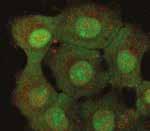
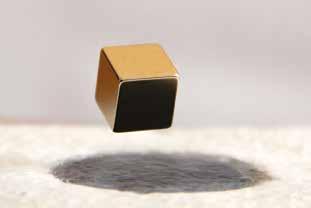
Unikalne dla naszej Szkoły są zajęcia interdyscyplinarne dostarczające teoretycznej i praktycznej wiedzy z pogranicza nauk ścisłych (fizyki i chemii) oraz biologii i medycyny. Przykładem mogą być zajęcia z metod syntezy materiałów funkcjonalnych dla medycyny, zastosowania laserów dla celów biospektroskopii, czy obrazowania z użyciem tomografii komputerowej. Indywidualny plan badawczy zawiera harmonogram realizacji rozprawy doktorskiej i ustalany jest w uzgodnieniu z promotorem w trakcie I roku studiów.
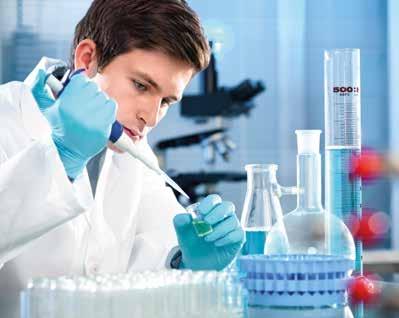


Przyjęcie do WSD IPAN odbywa się na zasadzie konkursu, w którym mogą uczestniczyć osoby posiadające tytuł zawodowy magistra (lub uzyskają go przed 1 października): z fizyki, chemii, inżynierii materiałowej – w przypadku dyscyplin nauk fizycznych i chemicznych, z biologii, biotechnologii, medycyny, farmacji, chemii – w przypadku dyscypliny nauk biologicznych oraz nauk medycznych.
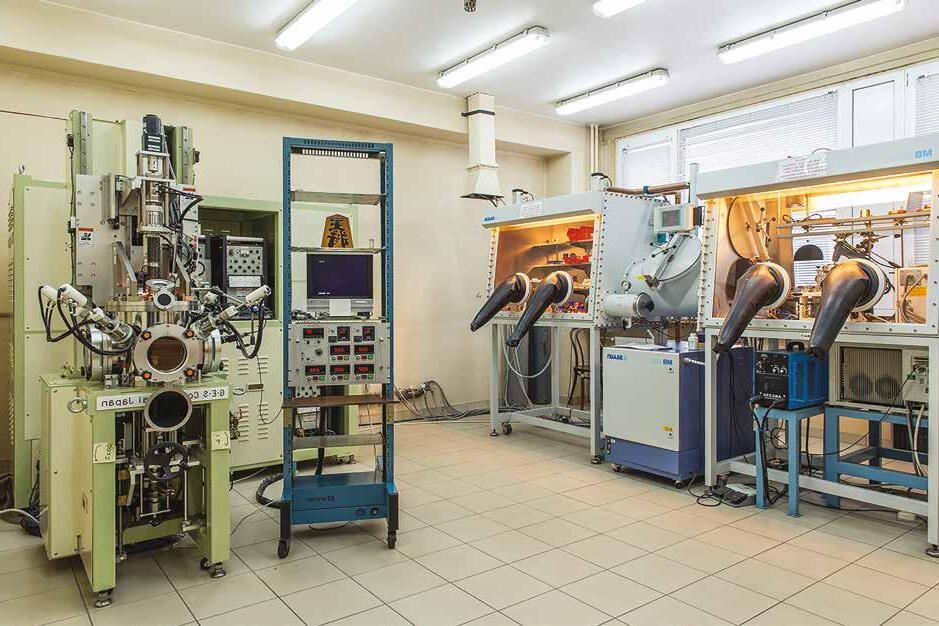
Coraz większe znaczenie zyskuje współcześnie umiejętność zoptymalizowanego sterowania ruchem ulicznym. Na Uniwersytecie Ostfalia kierunki związane z mobilnością i zarządzaniem ruchem mają długą tradycję i są perfekcyjnie dostosowane do globalnych wyzwań. Niezależnie zatem od tego, który z sześciu kierunków studiów wybierzesz – każdy z nich jest przyszłościowy!

An der Ostfalia Hochschule für angewandte Wissenschaften mit dem Standort Salzgitter gibt es sechs Studiengänge (Bachelor, Dual und Master), die sich mit Mobilität, Verkehr und Logistik aus unterschiedlichen Perspektiven beschäftigen - je nachdem, ob Sie sich mehr für das Managen der verschiedenen Verkehrssysteme, den Personenverkehr oder die Lösung von logistischen Problemen im Güterverkehr interessieren. In den ersten Semestern lernen Sie hauptsächlich wirtschaftswissenschaftliche oder technische Grundlagen. Später können sich dann über Schwerpunkte und Wahlpflichtfächer spezialisieren. In jedem Fall haben Sie viel Berührung mit der Praxis, da die Ostfalia gute und enge Beziehungen zu unterschiedlichsten Unternehmen in der Region hat.
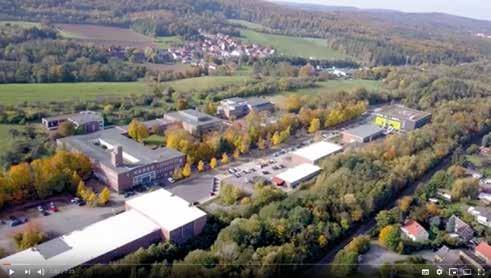
Unsere Absolventen und Absolventinnen können meist bereits vor ihrem Abschluss aus mehreren guten Jobangeboten auswählen – diese Studieninhalte sind hochaktuell und zukunftsfähig! Sie arbeiten sowohl in Unternehmen der Luftfahrt, der Bahn, des Nahverkehrs oder des Personenverkehrs. Auch Beratungsunternehmen und öffentliche Arbeitgeber suchen nach derart ausgebildeten Fachkräften.
Natürlich gibt es an der größten Fakultät der Ostfalia mit etwa 2.800 Studierenden noch andere Studiengänge, die das Studentenleben beleben und interessante Kooperationen möglich machen. Alle unsere Studien-
gänge haben viel Praxisbezug. Neben den Verkehrsstudiengängen können Sie zum Beispiel ein modernes Sportmanagement studieren oder Tourismusmanagement, Stadt- und Regionalmanagement sowie verschiedene Medienstudiengänge, vom Mediendesign bis zur Medienkommunikation. Teilweise lassen sich die Studiengänge sogar miteinander kombinieren. Bei uns kennt und hilft man sich, so dass Studieren einfach möglich ist. Viele Beratungsangebote helfen neuen Studierenden, sich hier zurecht zu finden. Schauen Sie doch einmal vorbei:
https://www.ostfalia.de/cms/de/k/

Beginn des Studiums ist jeweils zum Wintersemester, 2020 am 1. September. Bewerbungen sind bis zum 15. Juni 2020 möglich. Die Unterrichtssprache ist Deutsch.
Instytut Fizyki Jądrowej im. Henryka Niewodniczańskiego PAN ul. Radzikowskiego 152, 31-342 Kraków www.ifj.edu.pl
Jesteś zainteresowany pracą naukową w renomowanym międzynarodowym zespole?
Chcesz aktywnie włączyć się w prowadzenie prac badawczych?
Proponujemy ciekawą i różnorodną tematykę badań podstawowych w kierunkach:
> fizyki i astrofizyki cząstek,
> fizyki jądrowej i oddziaływań silnych
> fazy skondensowanej materii
wzbogaconą o możliwość prowadzenia badań interdyscyplinarnych i stosowanych w dziedzinach:
> fizyka medyczna
> inżynieria nanomateriałów

> geofizyka
> radioterapia
> radiochemia
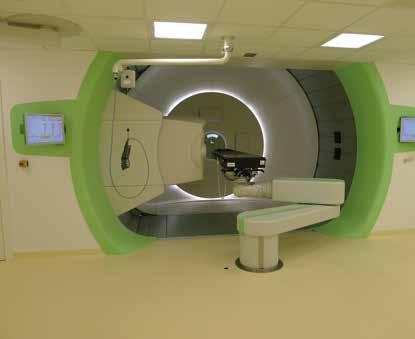
> dozymetria
> biologia radiacyjna i środowiskowa

> fizyka i ochrona środowiska
> fizyka nowych materiałów
> ekonofizyka
Jeśli nie posiadasz stopnia magistra i dopiero zaczynasz swoją przygodę z nauką, masz szanse przygotowania u nas pracy dyplomowej kończącej studia I i II stopnia lub realizacji ciekawych praktyk zawodowych.
Serdecznie zapraszamy do zapoznania się z aktualnymi ofertami praktyk studenckich, prac inżynierskich, licencjackich oraz magisterskich, które możesz znaleźć na stronie:
https://www.ifj.edu.pl/kariera/praktyki-staze-szkolenia.php
W naszym Instytucie udostępniamy zwiedzanie wybranych laboratoriów Instytutu w małych grupach w ciągu całego roku. Szczegóły dotyczące organizacji wycieczek do Instytutu oraz wykaz laboratoriów przyjmujących wycieczki są dostępne na stronie:
https://www.ifj.edu.pl/popularyzacja/zwiedzanie/
Jeśli posiadasz dyplom ukończenia studiów magisterskich w zakresie fizyki, bądź dyscypliny pokrewnej, zapraszamy Cię do podjęcia kształcenia w Krakowskiej Interdyscyplinarnej Szkole Doktorskiej prowadzonej przez Instytut Fizyki Jądrowej PAN wraz z Instytutem Katalizy i Fizykochemii Powierzchni PAN, Instytutem Farmakologii PAN, Instytutem Metalurgii i Inżynierii Materiałowej PAN oraz Akademią Górniczo-Hutniczą w Krakowie. https://kisd.ifj.edu.pl/

Jedną z 5 powołanych na UAM Szkół Doktorskich jest Szkoła Doktorska Nauk Przyrodniczych, kształcąca doktorantów z Wydziału Biologii oraz Wydziału Nauk Geograficznych i Geologicznych. Prowadzone są tam nowoczesne badania o interdyscyplinarnym charakterze i stale rozwijane nowe kierunki badawcze. Więcej o badaniach, możliwościach i umiędzynarodowieniu opowiada Dyrektor Szkoły Doktorskiej, prof. UAM dr hab. Agnieszka Ludwików.
Agata Rzeszuto: Które dyscypliny naukowe łączy kierowana przez Panią Profesor Szkoła Doktorska? prof. UAM dr hab. Agnieszka Ludwików, Dyrektor

SD: Szkoła Doktorska Nauk Przyrodniczych (SDNP UAM) skupia się wokół nauk biologicznych (w ramach Wydziału Biologii) i nauk o Ziemi i środowisku (w ramach Wydziału Nauk Geograficznych i Geologicznych). Trzeba jednak podkreślić od razu, że wszystkie badania prowadzone na obu Wydziałach są niezwykle interdyscyplinarne, rozwijają się na styku z innymi obszarami nauki.
Jaki jest więc zakres badań naukowych na Wydziale Biologii?
Prowadzone są nowoczesne badania z wszystkich obszarów biologii – także w dość odległych częściach globu, np. w afrykańskich i amerykańskich tropikach, lodowcach, pustyniach i oceanicznych archipelagach. Badania na Wydziale finansowane są z grantów z NCN, NCBR, FNP i programu Horizon 2020. Rozwijane są również nowe kierunki promedyczne skupiające się na terapii genowej, a także niezwykle ważne badania dotyczące zmian klimatu.


A na Wydziale Nauk Geograficznych i Geologicznych?
W centrum zainteresowania badaczy z tego Wydziału jest szeroko pojęta antropopresja i jej wpływ na życie planety. Na szczególne uznanie zasługują badania prowadzone we współpracy z otoczeniem społeczno-gospodarczym, w tym analizy środowiska w celach związanych z rozwojem infrastruktury i zapewnieniem jej bezpiecznego funkcjonowania: geodezja i geologia inżynierska.
Jaką infrastrukturą badawczą dysponujecie?
Doktoranci mają do dyspozycji nowoczesną infrastrukturę badawczą należącą do Wydziałów, jak i pozawydziałowych jednostek naukowych, np. Centrum Zaawansowanych Technologii i Centrum Nanobiomedycznego. Nie sposób wymienić wszystkie możliwości, ale na Wydziale Biologii wskazać mogę chociażby na pracownie mikroskopowe, pracownię
sekwencjonowania, gdzie prowadzone są analizy molekularne, dostęp do platformy Illumina. Z jednostek ogólnowydziałowych warto wymienić np. Laboratorium Biologicznych Informacji Przestrzennych wykorzystujące nowoczesne metody teledetekcyjne i geoinformacyjne, a także Laboratorium Aerobiologii, gdzie prowadzone są badania dotyczące alergenów, mające ogromne znaczenie w diagnostyce alergii.
Czy infrastruktura Wydziału Nauk Geograficznych i Geologicznych jest równie imponująca?
Tak. Wydział wyposażony jest w mikroskop elektronowy SEM-EDS pozwalający na analizy półilościowe próbek, spektrometr hiperspektralny ASD, rentgenograf i zaawansowaną aparaturę analityczną – m.in. wysokosprawną chromatografię cieczową połączona z indukcyjnie sprężoną plazmą z detekcją mas (HPLC-ICP-MS).
A czy doktoranci mogą korzystać również ze stacji terenowych?
Oczywiście. Dysponujemy zamiejscowymi jednostkami na obu Wydziałach. Doktoranci mogą wyjeżdżać i korzystać z zasobów m.in. Stacji Ekologicznej w Jeziorach, Stacji Geoekologicznej w Storkowie, Stacji Monitoringu Środowiska Przyrodniczego w Białej Górze na Wolinie. Mogą prowadzić badania na Spitsbergenie, gdzie działa Stacja Polarna „Petuniabukta”, która jest najbardziej wysuniętą na północ polską stacją badawczą.
Jak wygląda Wasza współpraca międzynarodowa?
To dla nas niezwykle ważny obszar. Jako jednostka UAM uczestniczymy w pilotażowym programie dla doktorantów w ramach EPICUR, a także w projekcie STER dot. umiędzynarodowienia szkół doktorskich UAM. Umiędzynarodowienie kształcenia to także współpraca dydaktyczna, którą obecnie zacieśniamy w ramach projektu STER m.in. z przedstawicielami Karolinska Institutet oraz pracownikami Uniwersytetu w Hadze. Niezależnie od tego, szczycimy się wysokim umiędzynarodowieniem badań w ramach współprac nawiązanych przez liderów grup badawczych m.in. z grupami badawczymi Uniwersytetu w Kilonii.
Proszę opowiedzieć coś więcej o nowej strategii umiędzynarodowienia.
Szkoły doktorskie w Polsce działają dopiero od dwóch lat. SDNP działa prężnie – jesteśmy w trakcie przygotowywania strategii umiędzynarodowienia Szkoły w ramach projektu STER, którego UAM jest beneficjentem. Umiędzynarodowienie ma przebiegać na kilku poziomach, a szczególnie ważne jest rozwijanie działań związanych z umiędzynarodowieniem programu kształcenia, umiędzynarodowieniem badań naukowych oraz z tzw. umiędzynarodowieniem „at home”. Każdy z tych elementów będzie realizowany z użyciem różnych „narzędzi” i na pewno we współpracy z jednostkami zagranicznymi. Naszym celem jest m.in. ukonstytuowanie sieci jednostek naukowych z międzynarodowym programem kształcenia dla doktorantów. W ramach sieci będziemy wspierać doktorantów, m.in. w ich mobilności międzynarodowej, co niewątpliwie zaowocuje wysoką jakością prowadzonych badań. Umożliwimy naszym doktorantom udział w kursach oferowanych w innych jednostkach. SDNP będzie oferować moduły zajęć, szczególnie te z umiędzynarodowionymi efektami uczenia się, doktorantom goszczącym w progach UAM. Oferta programowa SDNP będzie udostępniona jednostkom partnerskim także w formie zdalnej.
Czy zajęcia w ramach Szkoły odbywają się w języku angielskim?
W tym roku akademickim większość zajęć była oferowana w dwóch językach, ale w kolejnym roku akademickim planujemy uruchomienie zajęć głównie w języku angielskim.
Czy kształcicie doktorantów również spoza Polski?
Tak, nasza Szkoła Doktorska cieszy się zainteresowaniem zagranicznych doktorantów, którzy biorą udział w rekrutacji na równi z kandydatami z Polski. Obecnie SDNP kształci 10 obcokrajowców, a część z nich pozyskiwała na ten cel dofinansowanie z programu NAWA, z czego jesteśmy również dumni.
A w jakich innych programach biorą udział doktoranci?
Chętnie startują w programach organizowanych przez Narodowe Centrum Nauki – np. w ramach konkursu ETIUDA, a także konkursie Inicjatywa Doskonałości – Uczelnia Badawcza. Często krótkoterminowe wyjazdy udaje się odbyć w ramach grantów naukowych kierowanych przez promotorów.
Na jakie ułatwienia mogą liczyć młodzi naukowcy?
Każdy doktorant ma zapewnione wsparcie naukowe ze strony promotora, który czuwa nad przebiegiem badań. Dodatkowo doktoran -
ci mogą konsultować wyniki swoich badań z profesorami zagranicznymi goszczącymi na naszej uczelni. Wspieramy doktorantów w przygotowaniu indywidualnego planu badawczego. Ponadto, mobilizujemy ich do pisania aplikacji grantowych. Mogę zapewnić, że na SDNP UAM rozwija się „kultura” pisania grantów przez doktorantów.
A czy doktorantom oferowane są szkolenia?
Doktoranci mają możliwość skorzystania ze szkoleń z umiejętności miękkich i transferowalnych na naszej uczelni. Mogą również liczyć na dofinansowanie ID-UB na udział w konferencjach czy wyjazdach stażowych.
http://snp.home.amu.edu.pl

https://amu.edu.pl/doktoranci/przewodnik-doktoranta/rekrutacja/rekrutacja-202122 http://biologia.amu.edu.pl/
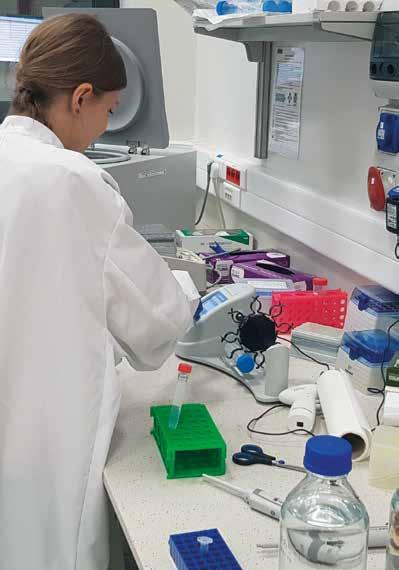
https://wngig.amu.edu.pl/

Doktoranci mogą konsultować
wyniki swoich badań z profesorami zagranicznymi.
Uczelnie starają się odpowiedzieć na potrzeby rynku pracy, a czasami nawet go trochę wyprzedzić. Co roku studenci mają do wyboru nowoczesne, interdyscyplinarne i praktyczne kierunki studiów. Przedstawiamy kilka przykładów – może znajdziesz wśród nich inspirację do swojej dalszej ścieżki edukacji?
To, jak dużą popularnością wśród studentów cieszy się psychologia, pewnie wiesz. Ale żeby wyróżnić się na rynku pracy i pójść krok dalej, można poszukać kierunków nieco poszerzających tradycją psychologię. Właśnie takim kierunkiem studiów jest kognitywistyka. Studia zostały uruchomione m.in. na Uniwersytecie Warszawskim, Uniwersytecie Adama Mickiewicza w Poznaniu i Uniwersytecie Mikołaja Kopernika w Toruniu. Na warszawskim SWPS działa neurokognitywistyka. Kognitywistyka łączy w sobie psychologię, naukę na temat funkcjonowania ludzkiego mózgu i podstawy programowania. Czym zajmują się jej absolwenci i studenci w trakcie nauki? Głównymi obszarami badań są problemy związane z modelowaniem pracy mózgu, czyli świadomością, językiem, percepcją, procesami uczenia się, podejmowania decyzji, ale też sztuczną inteligencją.
Dzięki temu absolwenci mają szansę znaleźć zatrudnienie w ośrodkach badawczo-rozwojowych, ale także w biznesie.
Na Wydziale Chemii Uniwersytetu Wrocławskiego utworzono niedawno praktyczny kierunek dla przyszłych chemików, którzy mogą specjalizować się w konkretnej dziedzinie – chemii i toksykologii sądowej. Te interdyscyplinarne studia prowadzone są przez dwie uczelnie – Uniwersytet Wrocławski i Uniwersytet Medyczny.
Absolwenci chemii i toksykologii sądowej mogą znaleźć zatrudnienie w jednostkach badawczo-naukowych, laboratoriach analitycznych, zakładach medycyny sądowej oraz laboratoriach kryminalistycznych policji i innych służb mundurowych.
Będą też dobrze przygotowani do współpracy z lekarzami medycyny sądowej oraz prokuratorami, policją i sądami. Kariera niczym z filmu kryminalnego! Kierunek od początku cieszył się dużą popularnością wśród studentów – podczas pierwszej rekrutacji na jedno miejsce przypadało aż siedemnastu kandydatów. Chemia i toksykologia sądowa otrzymała też znak jakości "Studia z przyszłością".

Wydział Artystyczny Uniwersytetu Śląskiego w Katowicach uruchomił kierunek projektowanie gier i przestrzeni wirtualnej. Ciekawe są też oferowane na nim specjalności – dźwięk w grach i grafika komputerowa gier. Kierunek to odpowiedź na braki kadrowe pojawiające się w rozwijającej się w Polsce branży gier komputerowych i rozrywki interaktywnej. Zatem nie tylko specjaliści IT, ale także artyści z praktyczną wiedzą mają szansę na karierę w tej ciekawej branży. Poza nią absolwenci zatrudnienie będą mogli znaleźć także w agencjach kreatywnych i reklamowych. Zapowiada się bardzo nowocześnie i praktycznie.
Z kolei na Akademii Górniczo-Hutniczej w Krakowie uruchomiono kierunek, który odpowiada na inne zapotrzebowanie rynku pracy – informatykę społeczną na Wydziale Humanistycznym. Kierunek prowadzony jest we współpracy z Wydziałem Elektrotechniki, Automatyki, Informatyki i Inżynierii Biomedycznej oraz Wydziałem Informatyki, Elektroniki i Telekomunikacji. Studenci otrzymują więc wiedzę zarówno z zakresu nauk humanistycznych i społecznych (socjologii, ekonomii, psychologii), jak i informatyki.
Dzięki temu absolwenci będą łączyć wiedzę z zakresu IT ze zrozumieniem zmieniającego się otoczenia społecznego, w tym oczekiwań odbiorców i wymagań biznesowych.
Kierunek prowadzony jest na studiach magisterskich, a uczelnia szczególnie zaprasza absolwentów studiów pierwszego stopnia związanych z naukami społecznymi i humanistycznymi. Pracodawcy prawdopodobnie już nie mogą doczekać się pierwszych absolwentów informatyki społecznej!
Jako student sądzisz, że o piwie wiesz wszystko? Mógłbyś się zdziwić! Ale też podszkolić na unikatowych międzynarodowych studiach doktoranckich z browarnictwa i słodownictwa prowadzonych przez 6 europejskich szkół.
W Polsce studia prowadzone są na Uniwersytecie Rolniczym im. H. Kołłątaja w Krakowie. Po ich zakończeniu absolwenci otrzymają łączony stopień doktora z zakresu nauk o żywności oraz wspólny dyplom wydany przez co najmniej dwie uczelnie biorące udział w programie. Zaskoczony? Może będziesz miał jeszcze okazję wypić piwo udoskonalone dzięki pracy młodych naukowców z tego kierunku.
Agata Blinkiewicz• światowe kierunki badań

• teoretyczne i eksperymentalne grupy badawcze
• praca pod kierunkiem ekspertów
• udziału w wykładach i seminariach
• ciekawe kontakty międzynarodowe

Doktoranci, którzy uzyskali ocenę co najmniej dobrą z egzaminu wstępnego otrzymują stypendium w wysokości 2200 zł.


Studiowanie to taki okres w życiu, kiedy ważnych jest wiele spraw i można, a nawet należy, rozwijać się w różnych kierunkach. Także w kierunku naukowym. Wiadomo, że nie samą uczelnią student żyje, ale warto znaleźć obszar naukowy, który ma szansę stać się prawdziwą pasją. Tylko jak ją odkryć i rozwijać?

Pierwsza możliwość to SKNy, czyli Studenckie Koła Naukowe. Są dobrowolnymi zrzeszeniami studentów na danej uczelni i skupiają się wokół interesującego grupę zagadnienia naukowego. Spotkania członków nie przypominają na ogół ustrukturyzowanych zajęć ani spotkań kółek znanych z czasów szkolnych, które prowadził nauczyciel. Oczywiście jest opiekun naukowy koła, czyli pracownik uczelni, ale już władze SKNu są wybierane spośród członków.
Przebieg prac koła i jego zaangażowanie w projekty zależy właśnie od decyzji członków. Uczelnie dają studentom dużą swobodę i dlatego można się w nich realizować naukowo, prowadząc badania, a nawet wydając publikacje razem z grupą rówieśników.
Tematyka SKNów jest często szersza niż oferta dydaktyczna uczelni, dlatego z pewnością zajedziesz coś dla siebie. Sprawdź możliwości
na swojej uczelni – nabory często odbywają się na początku każdego semestru. Wszystko zależy jednak od specyfiki SKNu i o szczegóły powinieneś dowiadywać się bezpośrednio u jego członków. Dobrym miejscem na zapoznanie się z ofertą są także Targi Kół i Organizacji Studenckich.
Dodatkowy plus jest taki, że przyłączając się do SKNu, masz szansę nie tylko pogłębiać swoją wiedzę merytoryczną, ale także poznać nowe osoby i brać udział w organizacji konferencji i różnych wydarzeń razem z innymi kołami.
Działalność w kole to także cenny punkt w CV, który w przyszłości docenią rekruterzy.
Szczególnie dla studentów kierunków ścisłych i technicznych świetną okazją do lepszego poznania specyfiki danego zagadnienia naukowego jest uczestnictwo w dodatkowych zajęciach i praktykach w laboratoriach. Często takie możliwości oferują same uczelnie. Warto jednak zainteresować się także działalnością innych jednostek naukowych czy badawczo-rozwojowych, które również przyjmują studentów na praktyki. Przykładem może być Polska Akademia Nauk oraz podległe jej instytuty. Dzięki programowi Erasmus+ praktyki możesz odbyć także w za -
granicznej jednostce naukowej lub zagranicznej uczelni – i to nawet kilka razy. W jednostce naukowej możesz zaliczyć też obowiązkowe praktyki na uczelni lub zrealizować swoją pracę inżynierską, licencjacką czy magisterską. Takie doświadczenie będzie mile widziane zwłaszcza jeśli w przyszłości myślisz o karierze naukowej.
Kontynuowanie nauki na studiach trzeciego stopnia, czyli doktoranckich, jest wyrazem największego zwariowania na punkcie nauki. Na tym etapie możesz kontynuować kierunek ze studiów drugiego stopnia lub spróbować swoich sił na pokrewnym kierunku, który cię zainteresował.
Wszystkich studentów trzeciego stopnia obowiązuje prowadzenie badań, pisanie publikacji czy udział w konferencjach naukowych. Finałem jest napisanie i obrona pracy doktorskiej. Tytuł doktora pozwala z kolei na kontynuowanie kariery naukowej i dalsze poświęcenie się nauce.
Więcej o nowoczesnych Szkołach Doktorskich – które właśnie powstały w Polsce – pisaliśmy w poprzednim i w bieżącym wydaniu SEMESTRu.
Agata BlinkiewiczI MAKROMOLEKULARNYCH
POLSKIEJ AKADEMII NAUK
STUDIUM DOKTORANCKIE
Warunki przyjęcia:
Dyplom ukończenia studiów
Testowy egzamin kwalifikacyjny z chemii, fizyki lub
biochemii – w zależności od ukończonych studiów

Testowy egzamin kwalifikacyjny z języka angielskiego lub
przedstawienie certyfikatu znajomości tego języka
Szczegóły dostępne na stronie www.cbmm.lodz.pl
Pisemny egzamin kwalifikacyjny (dyscyplina podstawowa) odbędzie się 24.06 o godz. 9:00 w sali 104 budynku A, Łódź, Sienkiewicza 112, rozmowy kwalifikacyjne w języku angielskim 25.06 od godz. 9:00
Oferta edukacyjna skierowana do osób aktywnych zawodowo, również tych z dyplomem uczelni wyższej, jest dziś bardzo specyficzna. Większość form takiego kształcenia ma charakter komercyjny, a ich zadaniem jest przede wszystkim podnoszenie kwalifikacji słuchaczy.
Jednym z najpopularniejszych sposobów dokształcania się są studia podyplomowe. Naukę w takim trybie oferuje większość wyższych uczelni – zarówno publicznych, jak i prywatnych. Popularne są zwłaszcza kierunki wyspecjalizowane, np. zarządzanie jakością czy marketing usług, co odzwierciedla zasadniczą rolę tego typu edukacji – ma ona przede wszystkim przekazywać ściśle określoną wiedzę fachową. Program studiów najczęściej opiera się na ćwiczeniu sposobów wykorzystania zdobytych wcześniej wiadomości. Kształcenie podyplomowe ma charakter komercyjny i nie jest dotowane przez państwo. Taka oferta skierowana jest więc głównie do osób aktywnych zawodowo.
Studia doktoranckie są dla magistrów tradycyjną alternatywą dla podjęcia pracy zawodowej. Uzyskanie tytułu doktora (obecnie trzeciego, po licencjacie i magistrze, stopnia naukowego) niewątpliwie jest nobilitacją społeczną. Wymaga odbycia studiów dokto -
ranckich, zdania stosownych egzaminów oraz obrony rozprawy naukowej. Prawo do nadawania tego tytułu przysługuje zarówno uczelniom państwowym, jak i niektórym uczelniom prywatnym. Większość świeżo upieczonych doktorów po obronie rozprawy kontynuuje pracę badawczą i dydaktyczną w charakterze pracowników naukowych. Trzeci stopień naukowy jest szczególnie pożądany w sektorach rynku pracy związanych z usługami prawniczymi, finansowymi czy medycznymi – dlatego doktorzy tych kierunków najczęściej pozostają aktywni zawodowo także poza uczelnią.
Oferta kształcenia ustawicznego obejmuje nie tylko studia doktoranckie czy podyplomowe. Jak grzyby po deszczu wyrastają w naszym kraju ośrodki szkoleniowe, które oferują potwierdzane certyfikatami kursy z różnych dziedzin. Do najpopularniejszych należą bez wątpienia szkoły językowe, które święcą swoje sukcesy od kilkunastu lat. Za ich pośrednictwem można zdobyć honorowane na całym świecie certyfikaty z różnych języków obcych, np. angielskiego, niemieckiego czy francuskiego. Coraz popularniejsze stają się także kursy podnoszące nie tyle umiejętności zawodowe, co interpersonalne. Chętni mogą skorzystać z kursów psychologicznych, pracy grupowej, kierowania zespołem. Rozszerza się także oferta szkoleń przygotowujących pracowników do radzenia sobie ze stresem czy też długotrwałym wysiłkiem.

Kształcenie ustawiczne dostępne jest także poza dużymi ośrodkami akademickimi. Coraz szersza oferta kursów i szkoleń dociera do mniejszych miast, by aktywizować mieszkających tam absolwentów wyższych uczelni. W wielu powiatach powołano Centra Kształcenia Ustawicznego, które oferują kursy zawodowe ściśle odpowiadające wymogom lokalnego rynku pracy. Zadaniem tego typu ośrodków jest również niwelowanie braków w wykształceniu osób aktywnych i zdolnych do pracy zawodowej w danym regionie, stąd często organizują one wyrównawcze kursy komputerowe czy językowe.
Lifelong learning zdaje się być przyszłością współczesnej edukacji. Błyskawiczny rozwój wiedzy i nowych technologii uniemożliwia poznanie całego zasobu wiadomości nawet z jednej dziedziny w trakcie studiów licencjackich czy magisterskich. Olbrzymia elastyczność, której wymaga się dziś od pracownika, wymusza ciągłe zdobywanie nowych umiejętności. W niedalekiej perspektywie niemal każdy absolwent wyższej uczelni zmuszony będzie do dokształcania się. Miejmy nadzieję, że Polska nadąży za tymi trendami.
Mikołaj Niedbała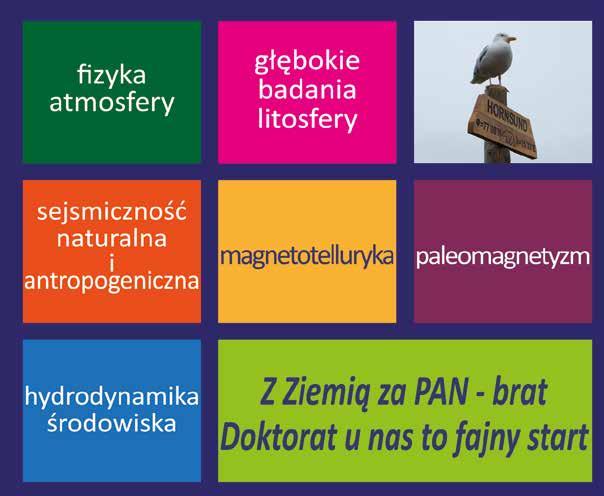
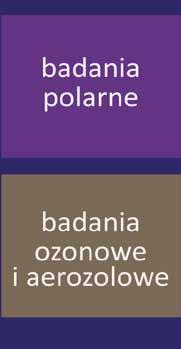
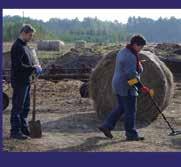


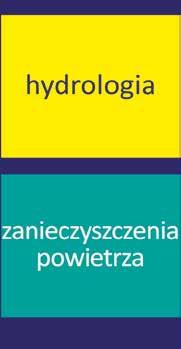



Kiedy kilka lat temu Ministerstwo na chwilę wprowadziło opłaty za drugi kierunek studiów, wielu studentów było zrozpaczonych, wielu próbowało się też „załapać” na kolejny bezpłatny kierunek studiów. A jak jest teraz, gdy drugi fakultet jest znów bezpłatny? Chyba nadal każdy zna kogoś, kto studiuje równolegle na dwóch kierunkach. Zwykle studenci decydują się a kolejny kierunek po drugim lub trzecim roku. Pytanie – czy warto?
Pamiętaj, że już na samym początku możesz napotkać pewne trudności formalne i organizacyjne. Dużo zależy od tego, czy Twój drugi kierunek jest na tej samej uczelni oraz czy uda Ci się uzyskać zgodę na indywidualny program nauczania. Wtedy będzie Ci zdecydowanie łatwiej z organizacją czasu i ustaleniem planu zajęć. Niestety, mogą zaistnieć sytuacje, w których plan zajęć pokryje się, a nie wszyscy wykładowcy i dziekani są skłonni do ustępstw...
Kiedy już wszystko sobie ułożysz, wcale nie musi być łatwiej. Po pierwsze, będziesz miał dwa razy więcej nauki i mniej czasu dla siebie i znajomych. Choć masz szansę poznać więcej osób, dwa kierunki studiów nie oznaczają przecież dwukrotnego przeżycia studenckiego czasu, a raczej jest odwrotnie.
Poza tym będziesz miał mniej czasu na dodatkowe aktywności na
uczelni czy podjęcie praktyk lub stażu. Nie mówiąc już o podwójnej sesji, która może ciągnąć się tygodniami albo np. skumulować się w jednym tygodniu.
Nie oznacza to jednak, takie równoległe studia to same minusy! Dzięki dwóm fakultetom zdecydowanie poszerzasz swoje przyszłe możliwości zawodowe. Wystarczy, że wybierzesz mądrze – tzn. znajdziesz powiązane ze sobą i uzupełniające się dziedziny, które pozwolą Ci obrać związaną z nimi unikatową ścieżkę kariery. Niech nie będzie to jednak politologia i socjologia lub dziennikarstwo i filologia polska, które zbytnio się zazębiają. Nie chodzi przecież o to by było łatwo, tylko żeby trud się opłacił.
Jeśli studiujesz na kierunku związanym z prawem, biznesem czy finansami, możesz zdecydować się na filologię lub stosunki międzynarodowe, co zwiększy szansę na zatrudnienie w międzynarodowej firmie. Dla studentów pedagogiki, filozofii czy psychologii przydatne mogą być studia związane z zasobami ludzkimi, co pozwoli na specjalizację w dziedzinie HR.
Świetnym drugim kierunkiem zwiększającym szanse na zatrudnienie jest też informatyka oraz zarządzanie, te umiejętności przydają się przecież w każdym zawodzie.
Agata Blinkiewicz



Centrum Astronomiczne im. M. Kopernika Polskiej Akademii Nauk (CAMK) jest wiodącym polskim instytutem w zakresie astronomii i astrofizyki. Istnieje od 1978 roku.
CAMK uczestniczy w wielu międzynarodowych projektach np. Virgo/LIGO (obserwacje fal grawitacyjnych), H.E.S.S., CTA (teleskopy promieniowania Czerenkowa), satelitarne obserwacje w podczerwieni i gamma (HERSCHEL, Fermi, INTEGRAL), SALT (teleskop o średnicy 10 m, zlokalizowany w RPA), ATHENA (budowa przyszłego satelitarnego obserwatorium promieniowania rentgenowskiego). W CAMK realizowany jest projekt Araucaria, którego celem jest pomiar odległości we Wszechświecie z niespotykaną dotąd precyzją; projekt ten jest finansowany m.in. przez European Research Council (ERC Advanced Grant). Realizowany jest również projekt SOLARIS (poszukiwania pozasłonecznych układów planetarnych) finansowany również m.in. przez ERC, a także projekt Polska Sieć Bolidowa, czyli budowa sieci
stacji obserwacyjnych do obserwacji jasnych meteorów. W CAMK znajduje się stacja łączności z satelitami naukowymi konstelacji BRITE. W kategoryzacji instytutów naukowych w 2013 roku CAMK uzyskał najwyższą kategorię, A+.
Centrum zatrudnia ok. 60 pracowników naukowych w dwóch zakładach: w Warszawie i Toruniu oraz prowadzi
na których jest obecnie łącznie 34 studentów. Latem kilkunastu studentów odbywa w CAMK praktyki wakacyjne. Ogłoszenia o naborze na studia i praktyki pojawiają się na stronie Centrum: www.camk.edu.pl
Zdjęcie zorzy polarnej wykonane przez dr hab. Arkadiusza Olecha.Dzięki zmysłom poznajemy świat, odbieramy informacje. Pomagają nam one również w nauce. Bardzo często bywa tak, że któryś z nich jest rozwinięty lepiej niż inne. Metodę utrwalania wiedzy powinniśmy dostosować do naszych wrodzonych predyspozycji. Istnieją cztery style uczenia się związane z naszymi zmysłami:
O wzrokowy – notatki wzrokowców powinny zawierać tabelki, wykresy, podkreślenia, mapy myśli, czyli wszystko to, co będzie skupiało wzrok, zdecydowanie ułatwi naukę;
O czuciowy – wykorzystujący zmysł dotyku, węchu, smaku. Nauka odbywa się poprzez wykonywanie czynności, angażowanie w naukę wielu zmysłów. Eksperymenty i doświadczenia będą idealnym sposobem na jej urozmaicenie. Osoby preferujący ten styl bez problemu radzą sobie z egzaminami ustnymi;
O słuchowy – studenci będący słuchowcami powinni chodzić na wykłady, nagrywać je, uczyć się i czytać na głos, a także używać audiobooków. Hałas działa na nich szczególnie rozpraszająco;
O ruchowy – osoby preferujące ten styl powinny np. rytmicznie chodzić po pokoju i powtarzać notatki. W ten sposób aktywują własne mięśnie oraz mózg. Dobrym pomysłem będzie też nauka poprzez odgrywanie ról czy uczestniczenie w różnych czynnościach.

Opanowanie obszernego materiału w krótkim czasie jest rzeczą bardzo trudną, jednak istnieje wiele sposobów, dzięki którym uporamy się z grubymi podręcznikami szybciej i skuteczniej. Przede wszystkim wskazane jest podzielenie całego materiału na mniejsze porcje, np. przy użyciu kryterium tematyki. Mniejsze partie wiedzy są przyswajane zdecydowanie lepiej i na dłużej. Po opanowaniu mniejszego fragmentu materiału zrób krótką przerwę, a po przerobieniu np. całego tematu – przerwę 30–90 minutową. Czemu mają służyć te okresy odpoczynku? Mózg nie lubi monotonii i zaczyna zmniejszać swoje obroty po ok. 30 minutach nauki. Spada wówczas poziom przyswajania, zrozumienia i zapamiętywania.
Bardzo ważne są też powtórki. Niemiecki psycholog Hermann Ebbing haus badał krzywą zapominania, czyli zależność pomiędzy ilością przechowywanych informacji a upływem czasu. Zauważył, że najwięcej zdobytej wiedzy tracimy w ciągu pierwszych dni od momentu jej opanowania. Co więcej, dostrzegł, iż w ciągu pierwszej godziny po zakończeniu nauki zapominamy 50% materiału. Jeśli zdamy sobie sprawę z istnienia tego procesu, będziemy mogli skutecznie mu zaradzić. Mnemotechniki są idealnym sposobem na uniknięcie szybkiego zapominania. Wykorzystują nasze naturalne zdolności oraz zmysły. Dzięki nim nie wkuwamy na pamięć, lecz uczymy się poprzez zabawę. Nauka staje się przyjemnością i przestaje być nieprzyjemną koniecznością.
Przede wszystkim należy zrobić porządek w miejscu przeznaczonym do nauki, a następnie wywietrzyć pokój. Usiądź wygodnie przy biurku w dobrze oświetlonym pomieszczeniu. Wyłącz telefon, czat na Facebooku, a najlepiej w ogóle komputer. Koncentruj się tylko na nauce. Najlepiej czytaj rano, zaraz po przebudzeniu. Jeśli lubisz, możesz uczyć się przy muzyce, to żaden problem. Pamiętaj jednak, żeby nie była ona zbyt głośna. Naukowcy polecają muzykę barokową, która zwiększa naszą wydolność umysłową. Oprócz tego na rynku dostępne są specjalne nagrania pobudzające prace mózgu. Istotne jest również to, co jesz i pijesz. Szczególnie polecana jest dieta wegetariańska, które nie obciąża organizmu (owoce, warzywa). Pij też dużo wody! Ubytek 10% wody powoduje złe samopoczucie, bóle głowy, kłopoty z oddychaniem, a co za tym idzie spadek koncentracji. Dbaj również o swoją kondycję. Ciało i umysł są elementami tego samego systemu. Ćwiczenia powodują wytwarzanie w naszym organizmie endorfin, czyli hormonów szczęścia, które ułatwiają naukę.
Paulina SobczykRobić
Academia Scientiarum Thoruniensis (AST UMK)
W czasie 4 lat przygotujesz swoją rozprawę
doktorską na jeden z gotowych tematów opisanych na stronie www:
https://www.phd.umk.pl/ast/dokumenty/wykaz-projektow-2020/

AST UMK kształci doktorantów w sześciu dyscyplinach naukowych na poszczególnych wydziałach:
astronomia
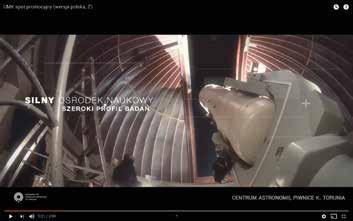
(Wydział Fizyki, Astronomii i Informatyki Stosowanej)
matematyka
(Wydział Matematyki i Informatyki)
nauki biologiczne
(Wydział Nauk Biologicznych i Weterynaryjnych)
nauki chemiczne
(Wydział Chemii)
nauki fizyczne
(Wydział Fizyki, Astronomii i Informatyki Stosowanej)
nauki o Ziemi i środowisku
(Wydział Nauk o Ziemi i Gospodarki Przestrzennej)
Każdy doktorant otrzymuje stypendium. Wielu doktorantów ma dodatkowe wynagrodzenie z grantów. Rekrutacja jest prosta: https://www.phd.umk.pl/ast/dokumenty/
Ważne daty:
Rejestracja w systemie IRK2: https://irk2.umk.pl/pl/offer/registration 24–31.08.2020 (godz. 23:59)
Składanie dokumentów przez kandydatów do szkoły: Instytut Fizyki, p. 390 ul. Grudziądzka 5, 87-100 Toruń, 27.08–3.09.2020 (godz. 15:00)
Rozmowy kwalifikacyjne z kandydatami: 09–15.09.2020
Ogłoszenie wyników rekrutacji na stronie Szkoły: https://www.phd.umk.pl/ast/ do 17.09.2020
e-mail: ast@umk.pl
www: http://www.phd.umk.pl/ast/

FB: http://www.facebook.com/AcademiaScientiarumThoruniensis/
Na UMK działają jeszcze cztery inne szkoły doktorskie – zajrzyj koniecznie tu: https://www.phd.umk.pl/ Academia Copernicana – Interdyscyplinary PhD School (AC UMK) Szkoła Doktorska Nauk Humanistycznych, Teologicznych i Artystycznych (AAH UMK)
Szkoła Doktorska Nauk Medycznych i Nauk o Zdrowiu (AMB UMK) Interdyscyplinarna Szkoła Doktorska Nauk Społecznych (ARS UMK) Tam też trwa rekrutacja! Też są stypendia!
AC UMK jest z założenia szkołą interdyscyplinarną, obejmującą w projektach doktorskich przynajmniej dwie dyscypliny nauki, ma silny charakter międzynarodowy.
Oferujemy: (i) cztery lata kształcenia w dziedzinie nauk ścisłych, humanistycznych lub sztuki, (ii) międzynarodowy program edukacji: opieka promotora zagranicznego, (iii) wszystkie zajęcia i wykłady w języku angielskim, (iv) kursy pisania publikacji naukowych i wniosków grantowych, (v) wysokie standardy w nauczania i publikowania, (vi) międzynarodowe szkoły letnie. Foreign candidates are welcome. All classes in AC UMK are in English. Details: https://www.ac.umk.pl/?id=18201
AAH UMK kształci doktorantów w dziedzinie nauk humanistycznych w dyscyplinach: archeologia, filozofia, historia, językoznawstwo, literaturoznawstwo, nauki o sztuce; w dziedzinie nauk teologicznych w dyscyplinie nauki teologiczne oraz w dziedzinie sztuki w dyscyplinie sztuki plastyczne i konserwacja dzieł sztuki. W procedurze kwalifikacyjnej ocenie podlegają kwalifikacje i predyspozycje do pracy naukowej lub artystyczno-konserwatorskiej kandydatów oraz przedłożony projekt naukowy lub artystyczny. Rozmowa kwalifikacyjna z kandydatami będzie się odbywała w dniach 14–16 września 2020 r. Szczegółowe informacje o harmonogramie: https://www.phd.umk.pl/aah/dokumenty/
ARS UMK stwarza warunki do prowadzenia badań i przygotowania rozprawy doktorskiej z: nauk o polityce i administracji, nauk o zarządzaniu i jakości, nauk prawnych, nauk socjologicznych, pedagogiki, nauki o komunikacji społecznej i mediach, ekonomii i finansów. Szczegóły: https://www.phd.umk.pl/ars/rekrutacja-w-trybie-glownym-2020/
AMB UMK kształci doktorantów w dyscyplinach: nauki medyczne, nauki farmaceutyczne, nauki o zdrowiu. Rekrutacja ma charakter konkursowy, aplikować do określonych projektów badawczych mogą absolwenci kierunków medycznych, między innymi, takich jak lekarski, farmacja, fizjoterapia, analityka medyczna, biotechnologia, pielęgniarstwo.
Informacje: https://www.phd.umk.pl/amb/rekrutacja/

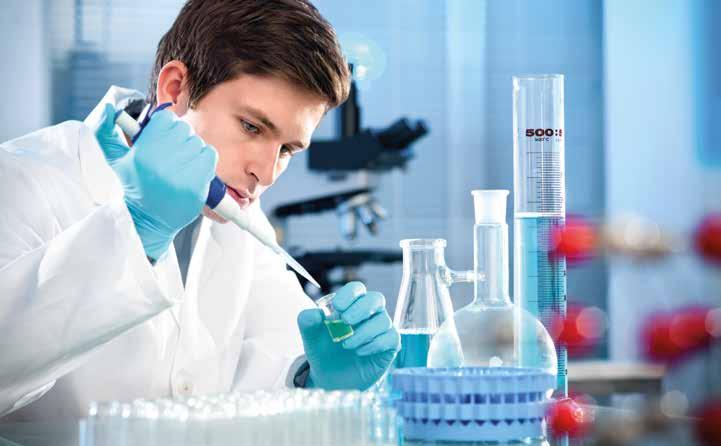
Wszystko zależy od tego, jakiego rodzaju zajęcie Cię interesuje. Na miejscowym rynku liczyć możemy na pracę w laboratoriach naszych „wielkich obecnych”– Polpharmy i Polfy Warszawa, Herbapolu, Ziaji czy Eris. Wiele firm farmaceutycznych ma laboratoria, ale… w innych krajach. Szereg przedsiębiorstw zagranicznych co prawda produkuje leki w Polsce, ale najważniejsze zadania badawcze wykonywane są gdzie indziej. Wtedy w Polsce chemik czy farmaceuta może znaleźć zatrudnienie np. w kontroli jakości.
Od kilku lat w branży farmaceutycznej błyskawicznie rozwijają się działy zajmujące się tzw. pharmacovigilance. Niektórzy ludzie walczą z kilkoma chorobami na raz i zażywają jednocześnie kilka lekarstw. Pewne kombinacje mogą mieć negatywny wpływ na zdrowie. Pharmacovigilance to badania i przedsięwzięcia związane z wykrywaniem, oceną, zrozumieniem i zapobieganiem działaniom niepożądanym lub innym problemom lekowym. W tej dziedzinie znajdą pracę biochemicy i farmaceuci.
Drugim nowym słowem jest „compliance” – oznacza ono pracę w dziale wdrażania regulacji. Dział compliance odpowiedzialny jest za kontakt z organami nadzoru farmaceutycznego, odpowiada za etykę biznesu, blisko współpracuje z działem marketingu, jest zaangażowany w tworzenie nowych produktów, otwieranie linii produkcyjnych lub rynków. Być może zdolności analityczne popchną Cię w stronę prawa i podatków, które w kontekście farmacji są jednym z mniej oczywistych, a jednak ważnych działów.
W dziale R&D (badania i rozwój) będziesz poznawać i tworzyć nowe leki oraz technologie produkcji. Tu zatrudnienie mogą znaleźć inżynierowie, biolodzy, biotechnolodzy, lekarze i farmaceuci. Praca w R&D jest stabilna, daje stałą możliwość rozwoju, a przy tym międzynarodowe możliwości zatrudnienia. Dla inżynierów medycznych również znajdzie się
praca – szczególnie, jeśli jesteś specjalistą odpowiedzialnym za kontrolowanie, naprawę oraz zarządzanie sprzętem medycznym w szpitalach lub inżynierem biomedycyny. Na polskim rynku działa kilkanaście firm produkujących sprzęt, które mogą zostać Twoim pracodawcą.
W zakładach produkcyjnych można pracować w działach jakości, kontroli, produkcji, badawczo-rozwojowych. Najlepiej już od 2–3 roku studiów zgłosić się na praktyki lub staż – wiele zakładów oferuje możliwość „przymierzenia się” w ten sposób do zawodu. Dlatego warto zacząć się za nimi rozglądać już w czasie studiów, zwłaszcza w dużych firmach. Po pierwsze, pomoże Ci to w rozeznaniu się w rzeczywistych możliwościach i potrzebach rynku. Po drugie, umożliwi określenie oczekiwań wobec pracodawcy i zawodu.
Aleksandra Udolf, PS
Motywacja kojarzy się z bliżej nieokreśloną siłą, która powinna nas pchać do tego, żeby chciało nam się chcieć. Często okazuje się (szczególnie w obliczu terminów krzyczących na nas z kalendarza), że popycha nas do przodu wyłącznie wiszący nad karkiem topór, który np. odetnie dalszą drogę studiowania, jeśli czegoś nie zdamy. W idealnym świecie, w jego centralnym punkcie, stałby wielki kocioł wypełniony po brzegi mocą do pracy i każdy mógłby z niego czerpać tyle, ile potrzebuje, bez ograniczeń i strachu, że źródło kiedyś wyschnie. Ale zderzenie z rzeczywistością jest bolesne i nie pozostawia złudzeń – musimy sami znaleźć to miejsce, w którym znajdziemy pokłady motywacji. Jak to zrobić? Gdzie szukać? Kogo prosić o pomoc?
Wyobraź sobie, że zbliża się sesja. Chyba nie musisz specjalnie się wysilać? Wszyscy dookoła o niczym innym nie mówią, coraz częściej słyszy się stwierdzenie „po sesji!” („po sesji się spotkamy/obejrzę ten film/przeczytam tę książkę”). A teraz pomyśl, że Ciebie to nie dotyczy – egzaminy i kolokwia zdane w przedterminach, projekty oddane i zaliczone, żadnych zaległości w sprawozdaniach z laboratoriów. Niemożliwe? Tajemnicą jest motywacja!
Podstawą do tego, żeby znaleźć w sobie albo zbudować pokłady motywacji, jest uświadomienie sobie, co tak naprawdę mnie motywuje. Dla każdego będzie to coś innego – dobra ocena, która potem może przyczynić się do przyznania stypendium, wolny czas po sesji i święty spokój do kolejnej. Ale może to być również nagroda, którą obiecamy sami sobie za osiągnięcie celu – szał zakupów, tydzień niewychodzenia z domu i nadrabiania zaległości w grach komputerowych, wypad na weekend do Oslo, bo akurat można kupić tanie bilety – co tylko przyjdzie Wam do głowy. Ważne, żeby to było coś ważnego dla Was – motywującego do podjęcia wysiłku i zebrania w sobie wszystkich sił oraz możliwości, które przecież gdzieś tam w środku są, czekają tylko na pobudzenie. Dobrym sposobem jest napisanie na kartce celu i nagrody za jego osiągnięcie: „jeśli do połowy stycznia oddam wszystkie projekty, obejrzę cały sezon serialu”. Zapisanie tego niesamowicie wpływa na proces realizacji naszych zadań – świadomość, że coś przybrało formę inną niż impuls w głowie, jest „namacalne”, dużo bardziej mobilizuje do działania, niż tylko myślenie o tym.
Wszystkie „motywatory” wymienione wcześniej to elementy, które mają nas popchnąć do tego, żeby zebrać się w sobie i zacząć działać: zewnętrzne bodźce, jasne punkty na horyzoncie zasnutym chmurami, coś, do czego warto dążyć. Ale jak poradzić sobie w momencie, kiedy okazuje się to niewystarczające? Kiedy przychodzi taka chwila, w której mówimy sobie: „przecież wcale nie potrzebuję tej płyty” albo „przeżyję bez wypadu do kina, tak bardzo mi się nie chce”? Wtedy te „marchewki”, motywatory zewnętrzne, obietnice nagrody za wykonane zadanie, są zbyt słabe, aby pobudzić działanie. Ale i na to jest sposób: trzeba znaleźć w sobie siłę do odnalezienia drugiego dna w sytuacji niewygodnej. W każdym przedsięwzięciu można doszukać się elementu, który sprawi przyjemność – bardzo często jest to głęboko ukryta radość z samego wykonywania danej czynności. To zdecydowanie silniejsze paliwo motywacyjne od tego pierwszego, bo jest zasoby są nieskończone – kryje się w nas i wszystko, co trzeba zrobić, to odkryć, gdzie się znajduje. Często wystarczy tylko zmiana sposobu myślenia. Zamiast: „nie chcę mi się uczyć do tego kolokwium, i tak do niczego mi się w życiu nie przyda socjologia, przecież studiuję budownictwo”, powiedz sobie: „świetnie, że nauczę się czegoś o ludzkim zachowaniu – może w końcu zrozumiem, dlaczego on/ona reaguje tak dziwnie, kiedy próbuję zagadać”. Doszukanie się pozytywnej strony sytuacji, odnalezienie w niej czegoś dla siebie – to połowa sukcesu. Każdy z nas jest indywidualistą, zwracamy uwagę na różne rzeczy i inne mają dla nas znaczenie. Dlatego tak ważne jest, żeby znaleźć coś, co właśnie MNIE zmobilizuje do działania.
Czy szkolenie z motywacji to dobry pomysł? Jak najbardziej! Dobrze poprowadzone, dostarczy wiedzy o mechanizmach, które kierują zachowaniem człowieka w chwilach kompletnego braku energii, ale zapewni również narzędzia do zastosowania w momencie braku motywacji. Kolejnym plusem jest to, że szkolenia nie odnoszą się tylko do sytuacji na uczelni, kiedy trzeba coś zdać, ale także do każdej innej – w życiu osobistym, rodzinnym czy zawodowym. Bo przecież każdemu z nas czasem brakuje mocy do ruszenia z miejsca. Nie znaczy to jednak, że nie można tego zmienić, jeśli bardzo będziemy tego chcieli. A przecież chcemy!
 Aleksandra Lemańska
Aleksandra Lemańska

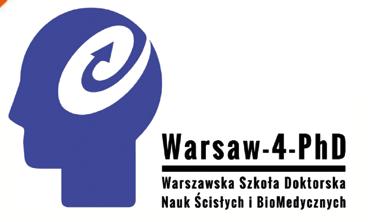


sięcznie na same koszty utrzymania około 2800 zł, oczywiście jeżeli będziesz żył po studencku. – Ceny zakwaterowania w Kopenhadze są zróżnicowane, od 1300 do 4000 zł. Dodatkowo bardzo drogi jest transport, dlatego wiele osób korzysta z rowerów. Bilet miesięczny na wszystkie rodzaje transportu dla studentów kosztuje tu około 300 zł. Poza tym w bibliotekach często ciężko jest dostać książki, więc trzeba w nie zainwestować, co daje kolejne 1000 zł co semestr – wylicza Karolina Kalbarczyk, która studiuje w Kopenhadze.
Dla porównania w Wielkiej Brytanii potrzebne będzie minimum 3000 zł miesięcznie, a w Niemczech ok. 2500 zł.

W wielu krajach możesz postarać się o stypendium naukowe lub socjalne, granty i zasiłki z różnych organizacji. Dobrym przykładem są organizacje niemieckie. – Absolwenci studiów pierwszego stopnia polskich uczelni mogą ubiegać się o stypendia DAAD na magisterskie studia uzupełniające na wybranej niemieckiej uczelni – informuje Anna Sowińska-Szejba z DAAD. To tylko jedna z wielu możliwości. Stypendia i dopłaty działają też w innych krajach – np. w pogrążonej w kryzysie Grecji rozprowadzane są darmowe podręczniki, a najbiedniejsi mogą liczyć nawet na darmowe wyżywienie i mieszkanie; we Francji studentom dopłaca się do czynszu.
Oprócz wysokich kosztów jest też inny czynnik, który odstrasza wielu chętnych – język wykładowy. Zależy Ci, żeby był to angielski? Pewnie nie tylko Tobie i może właśnie dlatego Wielka Brytania była do tej pory jednym z popularniejszych krajów, w których studiują Polacy. Ale studiować po angielsku można także w innych państwach, i to zwłaszcza na studiach magisterskich. W angielskim prowadzone są
Studia za granicą, a zwłaszcza w Europie, są dostępne w coraz większym stopniu
Europa stoi otworem, europejskie uczelnie także. Żeby studiować w jednym z państw UE, potrzebna jest zdana matura lub obroniony licencjat i znajomość języka. Często wystarczy tylko angielski. Jeśli więc uważasz, że Erasmus to za mało i marzysz o tym, by stać się jednym z kilkudziesięciu tysięcy Polaków studiujących w innym kraju, odważ się i zasmakuj zagranicy.
Jakim kosztem?
Najważniejszym kryterium wyboru uczelni i kraju często jest brak opłat za studia. W odróżnieniu od Polski w większości europejskich krajów trzeba płacić czesne, w niektórych całkiem wysokie. Dochodzą też najczęściej wyższe niż u nas koszty utrzymania. Słowem – tanio nie jest. Są też jednak państwa, w których studia na państwowych uczelniach dla obywateli UE są w wielu przypadkach zwolnione z opłat. Należą do nich: Austria, Niemcy, Szwecja, Dania, Finlandia, ale także Malta, Grecja i Cypr (choć tutaj tylko studia pierwszego stopnia). W tych państwach poniesiesz tylko koszty utrzymania. W niektórych z nich to „tylko” bywa dość duże – zwłaszcza, jeżeli myślisz o Skandynawii. Tam nic nie jest tanie – za bochenek chleba w Szwecji trzeba zapłacić ponad 8 zł. W Danii jest niewiele taniej – musisz liczyć mie -
studia np. we wspomnianych wcześniej Danii i Szwecji, ale także w Holandii. W wielu innych europejskich krajach można znaleźć poszczególne specjalności prowadzane po angielsku. Dotyczy to zwłaszcza tych kierunków, w przypadku których angielski stał się językiem całej branży, np. IT czy biotechnologii.
Jeśli porówna się koszty i korzyści nauki za granicą, bilans jest niemal zawsze korzystny. Przede wszystkim to szkoła życia i odpowiedzialności. Trzeba pomyśleć nie tylko o zakupach czy opłacaniu rachunków, ale też założyć konto w banku czy zapisać się do lekarza. Wszystko w obcym języku. Powiedzieć, że studia za granicą poszerzają horyzonty, to nadal niedopowiedzenie. Studia w Niemczech, Danii czy Hiszpanii to nie tylko poznawanie lokalnej kultury, ale także kontakt z tysiącami studentów z całego świata. Poza podróżą dookoła świata nie ma chyba lepszego sposobu, by tak szybko poznać tak wiele kultur. Ważne są też międzynarodowe przyjaźnie, zawierane niekiedy na całe życie. Wyobraź sobie zaproszenie na tradycyjny hinduski ślub przyjaciółki w Londynie czy coroczne wakacje u znajomego w Szwecji. Rynek pracy również bywa łagodniejszy dla absolwentów zagranicznych uczelni. Odbycie studiów za granicą świadczy przecież o dobrej znajomości języka, umiejętności współpracy w międzynarodowym środowisku i samodzielności. Czy kogoś jeszcze trzeba przekonywać?
Agata Blinkiewiczcoraz większe zainteresowanie. Ten trend spowodowany jest ogromem potęgi, jaką stanowią Chiny, przede wszystkim pod względem gospodarczym. Z raportu firmy PwC
„World In 2050” wynika, że w już 2030 r. Chiny zdetronizują USA, które obecnie dominuje na rynku ekonomicznym i konsekwentnie
wych potęg ekonomicznych przez co najmniej najbliższe 36 lat. Dzisiaj język hindi nie cieszy jeszcze się w Polsce dużą popularnością, niewykluczone jednak, że w przeciągu kilku lat może to ulec zmianie. Nauka języków rodem z A zji może okazać się strzałem w dziesiątkę, szczególnie dla osób planujących karierę w międzynarodowych korporacjach.
• indywidualny tok studiów pod kierunkiem ekspertów z szeregu instytucji naukowych
• interesujący program nauczania
POLSKIEJ AKADEMII NAUK
• udział w wykładach i seminariach
Obywatele Europy
Nasz kraj jest na różne sposoby powiązany z innymi państwami należącymi do Unii Europejskiej, może warto zatem zaangażować się w naukę języków europejskich. Jednym z najbardziej rozpowszechnionych na świecie języków rodem z Europy jest hiszpański. Choć estymowane liczby osób posługujących się nim na całym świecie są różne w zależności od źródła, to wszystkie nasuwają jeden wniosek: hiszpański zdecydowanie plasuje się w czołówce czterech najbardziej przydatnych języków świata. Jest używany nie tylko w Europie, ale i w krajach Ameryki Południowej, przyciąga prostotą form gramatycznych oraz przyjemnym brzmieniem.
REKLAMA
• coroczną monografię z recenzowanymi artykułami doktorantów
• pomoc materialną w formie stypendiów i zapomóg
• rozwój kariery naukowej
• spotkania integracyjne
OFERUJEMY
TEMATYKA
• najnowsze światowe kierunki badań
• najnowsze światowe kierunki badań
utrzymają pierwsze miejsce przez kolejne 20 lat. Obecnie chiński już jest najbardziej rozpowszechnionym językiem świata. Używa go ponad miliard osób na całej planecie i liczba ta nieustannie rośnie. Znaczenie chińskiej gospodarki razem ze stopniem rozpowszechnienia tego języka może znacząco wpłynąć na rynek pracy i ustalić nowe kryteria przy pracowników, a także w wyborze partnerów biznesowych. azjatyckim krajem najlepiej rozwiniętym gospodarczo są Indie PwC utrzymają się one w czołówce trzech światoekonomicznych przez co najmniej najbliższe 36 lat. Dzinie cieszy jeszcze się w Polsce dużą popularnością, jednak, że w przeciągu kilku lat może to ulec zmianie. rodem z A zji może okazać się strzałem w dziesiątkę, osób planujących karierę w międzynarodowych kor-
• indywidualny tok studiów pod kierunkiem ekspertów z szeregu instytucji naukowych
• zagadnienia i zastosowania sztucznej inteligencji oraz inteligencji obliczeniowej
• interesujący program nauczania
• udział w wykładach i seminariach
Europy
• indywidualny tok studiów pod kierunkiem ekspertów z szeregu instytucji naukowych
• interesujący program nauczania
• tworzenie algorytmów i budowa oprogramowania
• udział w wykładach i seminariach
• coroczną monografię z recenzowanymi artykułami doktorantów
OFERUJEMY
• techniki internetowe i multimedialne

• metody informatyki w badaniach systemowych, podejmowanie decyzji
• coroczną monografię z recenzowanymi artykułami doktorantów
• pomoc materialną w formie stypendiów i zapomóg
• rozwój kariery naukowej
najnowsze światowe kierunki badań
• spotkania integracyjne
różne sposoby powiązany z innymi państwami naleEuropejskiej, może warto zatem zaangażować się w naeuropejskich. Jednym z najbardziej rozpowszechnionych języków rodem z Europy jest hiszpański. Choć estymowane posługujących się nim na całym świecie są różne w zależwszystkie nasuwają jeden wniosek: hiszpański zdeplasuje się w czołówce czterech najbardziej przydatnych
Niezależnie od charakteru przyszłych przemian gospodarczych, bez wątpienia w najbliższych latach to język angielski pozostanie podstawowym narzędziem komunikacji na świecie. – Liczba osób mówiących po angielsku na całej planecie przekroczyła już 500 milionów. Ten język nie tylko zdominował świat przedsiębiorstw i handlu, ale jest też dodatkowo popularyzowany przez hollywoodzkie produkcje filmowe. Dzięki rozwojowi biznesu zmienił się także cel nauki języka angielskiego. W dzisiejszych czasach większość osób nie uczy się go po to, żeby doskonale naśladować brytyjską wymowę, a r aczej stawia na umiejętność skutecznej komunikacji” – tłumaczy Piotr Witkowski z warszawskiej szkoły językowej EnglishForYou. Nawet przy uwzględnieniu potencjału Chin Stany Zjednoczone wciąż będą jednym z najbardziej wpływowych państw w jutrzejszym świecie ekonomicznym, co potwierdzają badacze z firmy PwC. Razem z gospodarką USA na topie utrzyma się język angielski – obowiązujący jako urzędowy nie tylko w S tanach i Wielkiej Brytanii, ale i w innych państwach takich, jak Nowa Zelandia, Australia czy Kanada. Dlatego największe szanse sukcesu zawodowego mają osoby, które potrafią dobrze nim posługiwać się i uzupełniają tę wiedzę znajomością innego, może jeszcze nie tak popularnego w Polsce języka obcego.
• modelowanie matematyczne
• pomoc materialną w formie stypendiów i zapomóg
• rozwój kariery naukowej
ul. Newelska 6, 01-447 Warszawa, Poland
tel. +48 22 3810 277
• spotkania integracyjne
TEMATYKA
Jest używany nie tylko w Europie, ale i w krajach Ameprzyciąga prostotą form gramatycznych oraz przybrzmieniem.
Korneliusz Smolik
indywidualny tok studiów pod kierunkiem ekspertów z szeregu instytucji naukowych
stawzglęPwC Chidominuonsekwentnie 20 rozgo iczba chińskiej rozpowszechwpłynąć przy biznesowych. Indie światoDzipopularnością, zmianie. ziesiątkę, kornalenarozpowszechnionych estymowane ależzdeprzydatnych Ameprzybez podstamówiąmilionów. ale produkcje języka go sta
• zagadnienia i zastosowania sztucznej inteligencji oraz inteligencji obliczeniowej
interesujący program nauczania udział w wykładach i seminariach coroczną monografię z recenzowanymi artykułami doktorantów pomoc materialną w formie stypendiów i zapomóg
angielski
e-mail: Joanna.Runowska@ibspan.waw.pl http://www.ibspan.waw.pl/kategorie/ studia_doktoranckie

rozwój kariery naukowej
spotkania integracyjne
potrafią inne Smolik
TEMATYKA
charakteru przyszłych przemian gospodarczych, bez ajbliższych latach to język angielski pozostanie podsta narzędziem komunikacji na świecie. – Liczba osób mówią angielsku na całej planecie przekroczyła już 500 milionów. tylko zdominował świat przedsiębiorstw i dodatkowo popularyzowany przez hollywoodzkie produkcje rozwojowi biznesu zmienił się także cel nauki języka zisiejszych czasach większość osób nie uczy się go doskonale naśladować brytyjską wymowę, a umiejętność skutecznej komunikacji” – tłumaczy Piotr Wit warszawskiej szkoły językowej EnglishForYou. uwzględnieniu potencjału Chin Stany Zjednoczone wciąż ajbardziej wpływowych państw w co potwierdzają badacze z topie utrzyma się język angielski – obowiązujący nie tylko w takich, jak Nowa Zelandia, Australia czy Kanada. Dlatego szanse sukcesu zawodowego mają osoby, które potrafią posługiwać się i nie tak popularnego w
zagadnienia i zastosowania sztucznej

Międzynarodowe studia magisterskie ASC (Advanced Spectroscopy in Chemistry) utworzone zostały w 2007 roku wspólnie przez 5 europejskich uczelni: Uniwersytety w Lille (Lille1), Bolonii, Lipsku, Helsinkach oraz Uniwersytet Jagielloński w Krakowie.


Studia trwają dwa lata (4 semestry, 120 ECTS), włączając w to okres obowiązkowej mobilności w ramach sieci ASC tworzonej przez pięć uniwersytetów.
W 2015 roku studia po raz drugi uzyskały znak Erasmus Mundus nadawany przez Unię Europejską w uznaniu doskonałej jakości programu nauczania oraz stworzenia sieci partnerów przemysłowych wspierających zatrudnienie absolwentów ASC.
Program oferuje studentom szkolenia i opiekę merytoryczną na najwyższym poziomie, jak również dostęp do unikatowych laboratoriów posiadających najnowocześniejsze wyposażenie w zakresie zastosowań technik spektroskopowych w szeroko pojętej chemii. Dzięki temu uczestnicy mają możliwość wybierania tematów prac magisterskich związanych z wysoko wyspecjalizowanymi dziedzinami wiedzy w zależności od ich dotychczasowego doświadczenia i przyszłych celów zawodowych.
Absolwenci uzyskują podwójne dyplomy tych uniwersytetów, w których realizowali swoje indywidualne plany mobilności.
W ramach finansowania Komisja Europejska zapewnia stypendia dla studentów uwzględniające wydatki w kwocie 1000 euro miesięcznie i dodatkowo pokrycie kosztów uczestnictwa w programie, podróży i zakwaterowania dla 2 studentów europejskich i 12 studentów pozaeuropejskich.
Z biegiem lat sieć ASC rozwinęła powiązania z globalnymi partnerami przemysłowymi produkującymi spektrometry (Bruker, Magnetech w Niemczech), jak również z regionalnymi klastrami konkurencyjności (MATIKEM w Lille, Neu w Lipsku).
ASC uzyskała także status uprzywilejowanego partnera wielkich ośrodków badawczych, takich jak synchrotron SOLEIL we Francji i Elettra we Włoszech, oraz interdyscyplinarnych jednostek akademickich (JCET w Krakowie).
Absolwenci studiów ASC zostają specjalistami w dziediznie analizy chemicznej i metod charakteryzowania struktury materiałów w zakresie nauk i specjalności związanych z syntezą chemiczną, biologią, nanotechnologią, modelowaniem, farmacją, chemią biomateriałów i materiałów dla zrównoważonej energii.
Od momentu pierwszego naboru łącznie 201 osób z 49 krajów zostało studentami programu. Prawie 80% absolwentów rozpoczęło studia doktoranckie, głównie w europejskich uniwersytetach. Absolwenci studiów ASC nabyli umiejętność pracy w wielokulturowym środowisku – są co najmniej dwujęzyczni.
L'Oréal R&D (Paryż i Szanghaj), Merck KGaA Milipore (Darmstadt w Niemczech), Reckitt Benckiser (Hull w UK) – to tylko niektórzy pracodawcy absolwentów ASC.

REKRUTACJA prowadzona jest za pośrednictwem platformy elektronicznej na stronie internetowej studiów: www.master-asc.org
Termin składania dokumentów do ubiegania się o przyjęcie na studia zaczynające się we wrześniu w Lille upływa 28 lutego.
Kontakt: master-asc@univ-lille1.fr
Życie studenta to generalnie klawa rzecz, z wyjątkiem okresu zimowych i letnich egzaminów, kiedy ciemności zaczynają kryć ziemię. Człowiek zaczyna się obawiać, czy zdąży odpowiednio przygotować się do kontroli zdobytej wiedzy, ma problemy z rozplanowaniem nauki, nie może się skupić, jest rozkojarzony, kiepsko śpi, dużo je, odpala papierosa od papierosa, a serce wali mu jak Dzwon Zygmunta. Wszystkie wyżej wymienione zjawiska są objawami stresu. Jest on wynikiem podwyższonego wydzielania przez mózg adrenaliny i kortykosteroidów, wytwarzanych, gdy walczymy lub uciekamy przed zagrożeniem.
Stres dopinguje do efektywnego działania, ale na dłuższą metę jest męczący i może prowadzić nawet do głębokich zaburzeń psychicznych. W miarę możliwości należy mu więc przeciwdziałać. Oto krótki przegląd sposobów walki ze stresem.
Babunia radzi Zdecydowanie najzdrowsze są metody naturalne. Dłuższy spacer na świeżym powietrzu dotleni nasz mózg, co pomoże nam się rozluźnić. Również spokojna muzyka uspokoi nasze myśli i wewnętrznie wyciszy. W przypadkach silnego stresu zalecane są wywary z ziół, np. rumianku i miłorzębu, o działaniu relaksującym. W razie kłopotów z zaśnięciem warto napić się ciepłego mleka z miodem. Nasennie działa również piwo. Ale tym razem tylko jedno i na dodatek małe. Jeżeli i to nie pomoże, zostanie najbardziej naturalna metoda, czyli liczenie baranów!
Mikstury i medykamenty Kto nie ma zbyt dużego zaufania do zielarstwa, może sięgnąć po wynalazki XXI w. dostępne w każdej aptece. Znajdziemy tam liczne preparaty na „stres w wielkim mieście” oraz syropy, po które należy sięgnąć, gdy życie nas przerasta. Są one zwykle oparte na naturalnych składnikach, więc raczej nie spowodują większych spustoszeń w naszym organizmie.
Niepamięci niech się święci cud Możemy również tak zorganizować sobie czas, abyśmy nie mieli czasu się stresować! Gdy całkowicie zaabsorbujemy nasz umysł jakąś zastępczą czynnością, w głowie przestanie nam świecić czerwona lampka z napisem „Egzamin”. Świetnym sposobem jest obejrzenie wciągającego, ale nie przeintelektualizowanego filmu (radzę trzymać się z daleka od pana Bergmana i rodzimego kina moralnego niepokoju). Równie dobrym sposobem jest uprawianie sportu. Nic tak nie odpręża jak kilkukrotne umieszczenie piłki w bramce albo w koszu.
Pracowici czasu nie liczą Nie będziemy mieli nawet okazji, żeby pomyśleć o stresie, jeżeli do książek zasiądziemy dopiero w wieczór po-
Instytut Historii Nauki PAN im. L. i A. Birkenmajerów w Warszawie, 00-330 Warszawa, ul. Nowy Świat 72

Zapraszamy absolwentów wszystkich kierunków studiów, zainteresowanych uzyskaniem tytułu doktora nauk humanistycznych w zakresie historii nauki.

Oferujemy 4 lata interdyscyplinarnych zajęć z najlepszymi wykładowcami, praktyczny program nauczania, dobrą organizację studiów, gwarancję stałego czesnego oraz możliwość udziału w grantach naukowo-badawczych i międzynarodowych konferencjach naukowych.
Zajęcia odbywają się we Wrocławiu, w systemie zjazdów weekendowych.
Czesne wynosi 4 tys. zł za rok.
Wrocław,
Punkt konsultacyjny Studium:
784 04 43, Informacje i zapisy: http://ihnpan.waw.pl; mail: katarzyna.sudol@umed.wroc.pl

Dzięki zmysłom poznajemy świat, odbieramy informacje. Pomagają nam one również w nauce. Bardzo często bywa tak, że któryś z nich jest rozwinięty lepiej niż inne. Metodę utrwalania wiedzy powinniśmy dostosować do naszych wrodzonych predyspozycji. Istnieją cztery style uczenia się związane z naszymi zmysłami:
O wzrokowy – notatki wzrokowców powinny zawierać tabelki, wykresy, podkreślenia, mapy myśli, czyli wszystko to, co będzie skupiało wzrok, zdecydowanie ułatwi naukę;

O czuciowy – wykorzystujący zmysł dotyku, węchu, smaku. Nauka odbywa się poprzez wykonywanie czynności, angażowanie w naukę wielu zmysłów. Eksperymenty i doświadczenia będą idealnym sposobem na jej urozmaicenie. Osoby preferujący ten styl bez problemu radzą sobie z egzaminami ustnymi;
O słuchowy – studenci będący słuchowcami powinni chodzić na wykłady, nagrywać je, uczyć się i czytać na głos, a także używać audiobooków. Hałas działa na nich szczególnie rozpraszająco;
O ruchowy – osoby preferujące ten styl powinny np. rytmicznie chodzić po pokoju i powtarzać notatki. W ten sposób aktywują własne mięśnie oraz mózg. Dobrym pomysłem będzie też nauka poprzez odgrywanie ról czy uczestniczenie w różnych czynnościach.

Opanowanie obszernego materiału w krótkim czasie jest rzeczą bardzo trudną, jednak istnieje wiele sposobów, dzięki którym uporamy się z grubymi podręcznikami szybciej i skuteczniej. Przede wszystkim wskazane jest podzielenie całego materiału na mniejsze porcje, np. przy użyciu kryterium tematyki. Mniejsze partie wiedzy są przyswajane zdecydowanie lepiej i na dłużej. Po opanowaniu mniejszego fragmentu materiału zrób krótką przerwę, a po przerobieniu np. całego tematu – przerwę 30–90 minutową. Czemu mają służyć te okresy odpoczynku? Mózg nie lubi monotonii i zaczyna zmniejszać swoje obroty po ok. 30 minutach nauki. Spada wówczas poziom przyswajania, zrozumienia i zapamiętywania. Bardzo ważne są też powtórki. Niemiecki psycholog Hermann Ebbinghaus badał krzywą zapominania, czyli zależność pomiędzy ilością przechowywanych informacji a upływem czasu. Zauważył, że najwięcej zdobytej wiedzy tracimy w ciągu pierwszych dni od momentu jej


Five doctoral schools at Nicolaus Copernicus University (NCU) offer a unique experience to graduate students from all over the world, including the opportunity to conduct research with leading academics in state-of-the-art laboratories.
The modern study programmes equip PhD students with the highest qualifications in a chosen scientific field. Doctoral schools support candidates in the preparation of their doctoral theses and teach them how to share the knowledge.
Doctoral students experience a lot of freedom to investigate problems of their interest, either their work is curiosity-driven or challenge-led.
NCU doctoral schools offer all young researchers a vibrant, international, friendly and multidisciplinary environment in the beautiful medieval city of Toruń, Poland.
w NCU belongs to an exclusive club of top 10 research universities in Poland.
w Polish PhD diploma is internationally recognized.

w We offer a stipend to every admitted PhD candidate.
• Modern facilities and labs at your disposal.
• You will have a lot of scientific freedom and top quality mentoring.
• You may apply for your own small research grants.
• You’ll meet loads of friendly people and make life-long friendships with fellow students from all over the world.
• NCU provides decent students houses.
• Toruń is a perfect place for culture vultures with stunning Gothic architecture and picturesque streets. Food is excellent and inexpensive.
• Toruń is well served by railways and the A1 motorway, only a 3-hour drive to Warsaw and a 6-hour drive to Berlin.
At Academia Copernicana doctoral students cut across disciplinary boundaries and break with well-established research patterns by taking innovative interdisciplinary approach. The school offers an international program for PhD education with top-notch research and scientific activities fully run in English. Classes are enriched with summer schools, international workshops, and supervision of projects by at least one foreign scientist. Furthermore, international internships and courses delivered by visiting professors drive advancement in education of PhD students. Academia Copernicana offers a wide variety of disciplines, combinations of those listed in other schools.
academia.copernicana@umk.pl
Doctoral School of Humanities, Theology and Arts provides doctoral students with an opportunity to gain expertise and comprehensive knowledge within the following disciplines:
• archaeology
• theological studies
• philosophy
• conservation of works of art
• history studies in art
• fine art
• linguistics
• literature studies
The curriculum, based on three pillars: specialisation, internationalization and interdisciplinarity, consists of basic tutorials and seminars, professional skills improvement classes, and experts' lectures. Furthermore, an established individual research plan obligates students to complete at least onemonth scientific internship in a foreign scientific institution.
aah@umk.pl
Doctoral School of Medical and Health Sciences sets the framework for international and innovative doctoral study programme offering education in medical and health sciences in 3 disciplines:

• pharmaceutical sciences,





• medical sciences,
• health sciences.
The school aims to provide systematic, efficient, and high-quality doctoral training to prepare doctoral candidates for professional careers in research and other positions of high expertise. In addition, the PhD programme is conducted in Polish and English whereas the curriculum includes a wide variety of practicals, seminars, and scientific symposia. szkola.doktorska@cm.umk.pl

Doctoral School of Exact and Natural Sciences (AST) is an ideal choice for those who wish to earn their doctorates in the following disciplines:

• astronomy
• mathematics







• biological sciences

• physical sciences (physics, biophysics)







































• chemical sciences
• Earth and environmental sciences
At AST doctoral projects are run by the most prominent professors and usually are part of external research grants. The majority of PhD students participate in international collaborations. AST appropriates mini-grants allowing for short-term internships in foreign labs. Moreover, the school provides opportunities, through and outside the curriculum, for soft skills enhancement and career preparation.
ast@umk.pl



Doctoral School of Social Sciences (ARS) aims at fostering the academic development of PhD students who strive to deepen their knowledge and purse a doctoral degree in social sciences within the disciplines of:


• economics and finance
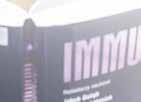

• political and administration studies

• management and quality studies
• legal sciences, (law)
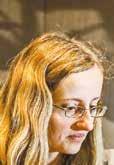
• sociological studies
• pedagogy
• social communication and media studies



The teaching staff of ARS provides lectures, tutorials, and seminars conducted in Polish and English.. Key courses, such as the course in writing scientific texts, are conducted by prominent scientists from abroad. ars@umk.pl

Decide quickly and apply!
We will be proud to have you on board. Admission for Doctoral School Studies programmes is competitive. Each school has different application requirements and deadlines, even in June. Please refer to school websites for more detailed information: www.phd.umk.pl/en/
Doctoral Schools at Nicolaus Copernicus University in Toruń
Gagarina 11, 87-100, Toruń, Poland www.phd.umk.pl/en/ www.umk.pl/en/
The leading scientific research centre – NCU was granted research university status for 2020–2026.
NCU was granted HR Excellence in Research award in recognition of progress in creating an environment for research, training, and career development of researchers.

Inquiries: trawicka@umk.pl or ast@umk.pl Nawa (www.ac.umk.pl/nawa-ster/)
NCU is the full member of the YUFE consortium (www.umk.pl/en/yufe/).


Szkoła Doktorska Uniwersytetu im. Adama Mickiewicza w Poznaniu proponuje kształcenie, w którym badania naukowe i nauka zgłębiane są zarówno w wymiarze międzynarodowym, jak i krajowym oraz regionalnym. Uczelnia stale aktualizuje i poszerza swoje programy badawcze i treści kształcenia, kładąc szczególny nacisk na ich interdyscyplinarny charakter.
Szczególny nacisk kładziemy w Szkole na interdyscyplinarność
Szkoła Doktorska Uniwersytetu składa się z 5 sekcji. Jedną z nich jest Szkoła Dziedzinowa Nauk Przyrodniczych. Reprezentowana jest przez dwie dyscypliny: nauki biologiczne i nauki o Ziemi.
XXI wiek jest określany mianem „wieku biologii”. Badania w obszarze nauk o życiu rozwijają się niezwykle dynamicznie w wielu różnych kierunkach, także na styku z innymi obszarami nauki. Wydział Biologii
UAM to flagowy międzynarodowy ośrodek naukowy kategorii A+, z czołową pozycją na listach beneficjentów grantów NCN, FNP, NCBiR. Na Wydziale prowadzone są nowoczesne badania w zakresie biologii, biotechnologii, neurobiologii, mikrobiologii, hydrobiologii, ekologii, ochrony środowiska i bioinformatyki. Rozwijane są nowe kierunki badawcze w obszarze medycyny regeneracyjnej, terapii genowej, genomiki, filogenetyki molekularnej, biologii ewolucyjnej, czy bioakustyki. Wielokierunkowa problematyka badań zapewnia wiele możliwości tworzenia nowych podejść do rozwiązywania problemów badawczych. Nowoczesna infrastruktura badawcza, w połączeniu z infrastrukturą kampusu Morasko umożliwiają realizację badań zarówno podstawowych, jak i aplikacyjnych. Szeroka współpraca międzynarodowa oraz liczne granty badawcze zapewniają atrakcyjne środowisko rozwoju dla młodych badaczy, doskonalą umiejętności komunikacyjne i krytyczne myślenie niezbędne do pomyślnej kariery naukowej. Szczegóły na http://biologia.amu.edu.pl
Kształcenie obejmuje w zakresie geografii: zmiany klimatu, hydrometeorologiczne zjawiska ekstremalne, klimat i hydrologię obszarów zurbanizowanych, problemy krajobrazowo-ekologiczne, zmiany środowiska oraz wynikających z nich zagrożenia i działania adaptacyjne, przemiany ekosystemów i środowiska funkcjonowania miast, wspomaganie decyzyjne.
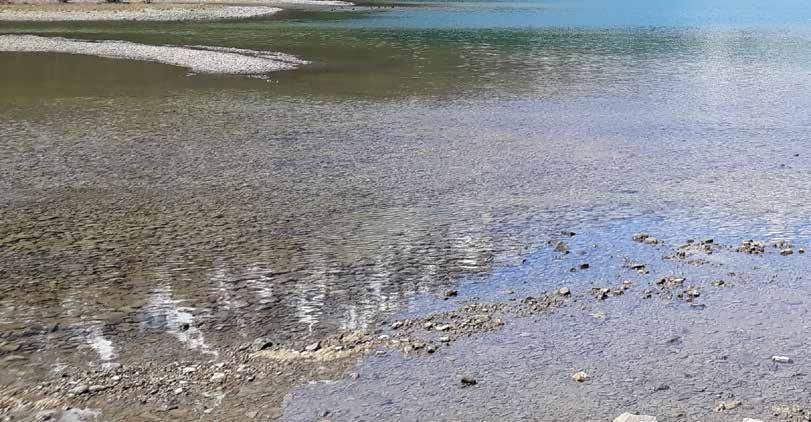
Badania realizowane będą poprzez monitoring środowiska przyrodniczego, studia paleoekologiczne, geomorfologiczne, hydrogeologiczne, geoarcheologiczne oraz szeroki zakres technik geoinformacyjnych, geomatyczne metody badań, interaktywne geowizualizacje, wirtualną i rozszerzoną rzeczywistość oraz media wizualne, teledetekcję w ilościowym opisie powierzchni Ziemi.

Natomiast badania w zakresie geologii będą obejmowały problematy-
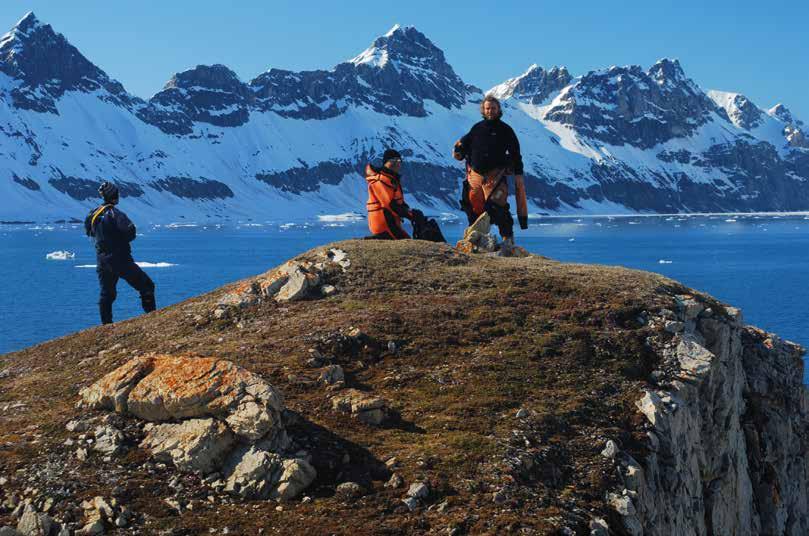
kę związaną z szeroko rozumianą geologią stosowaną: hydrogeologią, geologią inżynierską oraz badania podstawowe z zakresu sedymentologii osadów lądowych i morskich, paleontologii, paleoekologii, geozagrożeń oraz geochemii, petrologii i petroarcheologii. Badania wykonywane będą przy użyciu nowoczesnych metod i obejmować będą różne regiony świata w przedziale czasu całego fanerozoiku.
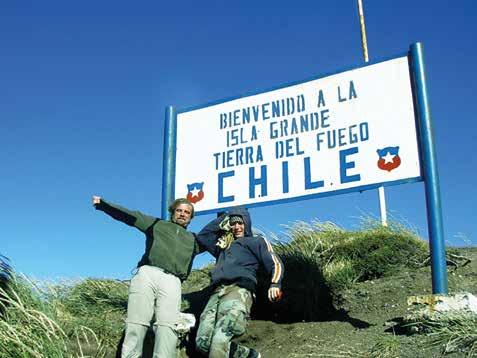

1) Przyjmowanie dokumentów: od 27 lipca do 24 sierpnia 2020 r. do godz. 14.00 w Biurze Szkoły Doktorskiej UAM.
2) Postępowanie rekrutacyjne: od 7 września do 12 września 2020 r.
3) Ogłoszenie listy przyjętych do Szkoły Doktorskiej: 18 września 2020 r. W przypadku uzyskania środków finansowych na kształcenie doktorantów ze źródeł zewnętrznych, w tym projektów badawczych, rekrutacja może odbywać się w innych terminach.
Szczegóły na stronie: https://amu.edu.pl/doktoranci/przewodnik-doktoranta/rekrutacja/rekrutacja-20202021
KIEROWNICTWO:
Kierownik Szkoły Doktorskiej Szkoły Dziedzinowej – prof. UAM dr hab. Agnieszka

Ludwików, agnieszka.ludwikow@amu.edu.pl
Przewodnicząca Zespołu
Kwalifikacyjnego – prof. dr hab. Hanna
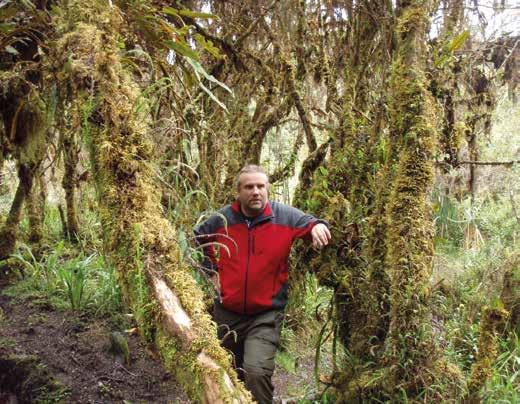
Kmita, hanna.kmita@amu.edu.pl
Sekretarz – mgr Małgorzata Klimorowska, malgorzata.klimorowska@amu.edu.pl
Więcej informacji: http://snp.home.amu.edu.pl/?page_id=335
Szeroka współpraca międzynarodowa oraz liczne granty
badawcze zapewniają
atrakcyjne środowisko rozwoju dla młodych
badaczy, niezbędne do pomyślnej kariery naukowej
infrastruktura badawcza umożliwiająca realizację badań zarówno podstawowych, jak i aplikacyjnych
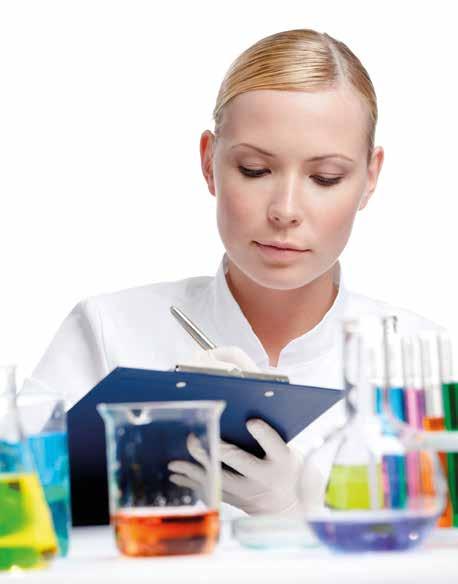
1 października interdyscyplinarność w szkołach doktorskich stała się obowiązkiem. Ale programy wielokierunkowe realizowane były od dawna.
– Trudniej jest instytutom PAN. Te zazwyczaj mają uprawnienia tylko w jednej dyscyplinie – wyjaśnia dr hab. Andrzej Horzela, kierownik Międzynarodowego Studium Doktoranckiego w Instytucie Fizyki Jądrowej PAN w Krakowie. – Np. IFJ PAN ma A+, ale tylko w fizyce, i chcąc prowadzić Szkołę Doktorska, musimy działać wspólnie z innymi. Stąd powstała Krakowska Interdyscyplinarna Szkoła Doktorska, grupująca 4 instytuty PAN. Oprócz IFJ przystąpiły do niej Instytut Katalizy i Fizykochemii Powierzchni, Instytut Farmakologii, Instytut Metalurgii i Inżynierii Materiałowej oraz 2 wydziały AGH: Wydział Fizyki i Informatyki Stosowanej oraz Wydział Inżynierii Materiałowej i Ceramiki.
Zmiana, którą wprowadziły przepisy, nie jest nowością w dotychczasowej praktyce instytucji, które powołały Krakowską Interdyscyplinarną Szkołę Doktorską. Jednostki partnerskie KISD już dawno wprowadziły do programu kształcenia sporo elementów interdyscyplinarnych. Przykładowo, w programie badawczym IFJ dużą rolę odgrywają badania poświęcone zastosowaniom metod fizyki w ogólnie pojętych naukach o życiu – medycynie, biologii, naukach o środowisku – oraz w inżynierii materiałowej. Podobna sytuacja ma miejsce w pozostałych jednostkach tworzących KISD i dlatego „interdyscyplinarne studia doktoranckie” nie są w ich przypadku nowością. Wydział Fizyki i Informatyki Stosowanej AGH, Instytut Katalizy i Fizykochemii Powierzchni oraz Instytut Fizyki Jądrowej z powodzeniem prowadziły projekt interdyscyplinarnych studiów doktoranckich „Zaawansowane materiały dla nowoczesnych technologii i energetyki przyszłości <ISD>”, podczas gdy Instytut Katalizy i Fizykochemii Powierzchni, Instytut Farmakologii oraz Wydział Chemii i Collegium Medicum UJ zrealizowały projekt „Nauki molekularne dla medycyny <MolMed>”. Oba projekty zrealizowane zostały ze środków POKL w latach 20092015 i zakończyły się wypromowaniem ze stopniem doktora ponad 100 osób. Obecnie trwają projekty finansowane z programu PO WER „Fizyczne, chemiczne i biologiczne podstawy nowoczesnych technologii i inżynierii materiałowej <FCB>” oraz „Interdyscyplinarność dla medycyny innowacyjnej <InterDokMed>. – To pozwala twierdzić, że przy zachowaniu rozsądku taki model kształcenia jest realny, a nawet przynosi korzyści – ocenia dr Horzela – doktoranci uczą się czegoś nowego, głównie metodologii doświadczalnej, od swoich kolegów z „innych działek”, wynoszą nowe zainteresowania z wykładów bądź innych wspólnych zajęć, np. seminariów. Nie bez znaczenia jest również to, że się wzajemnie poznają.
– Szkoła w naszej uczelni będzie mogła kształcić w zakresie trzech dyscyplin, jakie wykładamy: nauki medyczne, farmaceutyczne i nauki o zdrowiu. Ponadto, ruszamy ze wspólnymi doktoratami (w ramach szkoły doktorskiej) z Wydziałem Medycyny Weterynaryjnej Uniwersytetu Przyrodniczego – opowiada prof. dr hab.n.med. Piotr Dzięgiel, prorektor ds. dydaktyki Wrocławskiego Uniwersytetu Medycznego. Ale w obrębie jednej uczelni może powstać więcej szkół doktorskich, np. na UJ powołano ich 4, a na UW – 5, w tym Szkołę Międzydziedzinową.
Zgodnie z nowymi przepisami, doktoranci zobowiązani są do zaliczenia, w takiej lub innej formie, pewnej ilości zajęć spoza własnej dyscypliny. – Czy przyniesie to pozytywne skutki, zależy w pierwszym rzędzie od tego, jak te zajęcia będą przygotowane i jakie będzie nastawienie słuchaczy – podkreśla się dr Andrzej Horzela – ci ostatni mają być wyłonieni spośród najlepszych, może więc także spośród tych o najszerszych horyzontach… Czy, i w jaki sposób, będziemy realizować interdyscyplinarne postępowania doktorskie (np. prowadzone pod kierunkiem dwóch promotorów – przyp. AS) w naszej Szkole Doktorskiej, tego w tej chwili nie wiem. Wedle nowych reguł wszczęcie procedury nadania stopnia doktora następuje, gdy rozprawa już „leży na stole”, ale promotora powołać trzeba w trakcie pierwszego roku kształcenia. Szkoły Doktorskie dopiero startują. Czekamy na pierwszy przewód doktorski!
Aleksandra Solarewicz
W 2018 r. weszła w życie nowa Ustawa o szkolnictwie wyższym, tak zwana Konstytucja dla Nauki.
W jej myśl powołano szkoły doktorskie, które odtąd jako jedyne mogą kształcić doktorantów.
Konstytucja dla Nauki, inaczej nazywana Ustawą 2.0, była przygotowywana od 2016 roku. Po miesiącach konsultacji, dyskusji i poprawek została uchwalona i podpisana przez prezydenta w sierpniu 2018. Szkoły doktorskie rozpoczynają działalność 1 października 2019.
Zgodnie z nową Ustawą, studia doktoranckie rozpoczęte przed rokiem akademickim 2019/2020 prowadzi się na zasadach dotychczasowych, jednak nie dłużej niż do 31 grudnia 2023 r.
W przewodach doktorskich wszczętych do dnia 30 kwietnia 2019 roku, stopień naukowy nadaje się na podstawie przepisów dotychczasowych, z zastrzeżeniem, że jest on
nadawany w dziedzinach lub dyscyplinach przewidzianych w rozporządzeniu, które będzie wydane na podstawie nowej Ustawy.
W porównaniu do dotychczasowego systemu kształcenia, dokonano rewolucji. Oznacza to, że: w Dotychczasowe studia trzeciego stopnia zastąpiono kształceniem w szkołach doktorskich. W przypadku uczelni, szkołę będzie prowadziła cała Alma Mater, a nie – jak dotychczas – jej uprawniona jednostka.
w Powiązano prawo do prowadzenia szkoły doktorskiej z kategorią naukową. Posiadać je będzie podmiot prowadzący działalność naukową w co najmniej dwóch dyscyplinach naukowych z kategorią A+, A albo B+.
w W miejsce środowiskowych studiów dokto -
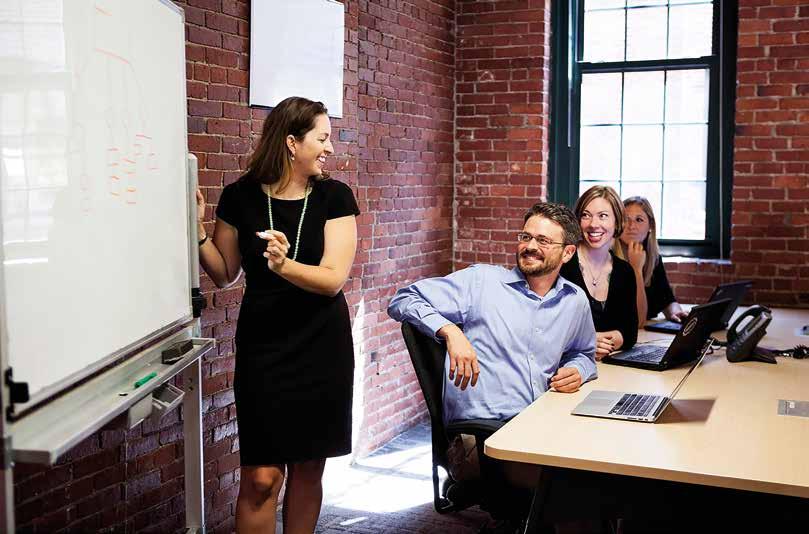
ranckich podmioty, które mają co najmniej jedną kategorię naukową nie niższą niż B+, mogą prowadzić wspólną szkołę.
w Zlikwidowano podział na tryb stacjonarny i niestacjonarny.
w Kształcenie w szkole doktorskiej jest bezpłatne, a rekrutacja ma charakter konkursowy.
w Każdy uczestnik otrzyma stypendium. Nie będzie już mógł być zatrudniany jako nauczyciel akademicki i pracownik naukowy – ale uwaga! od tej reguły istnieją pewne wyjątki.
w Zamiast ogólnouczelnianych i ogólnoinstytutowych regulaminów studiów doktoranckich wprowadza się regulaminy szkół doktorskich uchwalane odpowiednio przez senaty albo rady naukowe.
Studia w szkołach doktorskich będą trwały osiem semestrów, opierając się na programie kształcenia oraz indywidualnym planie badawczym doktoranta. Plan ten jest opracowywany przez kandydata w porozumieniu z promotorem, a jego realizacja podlega ocenie śródokresowej w połowie kształcenia. Oceny dokonuje 3-osobowa komisja, w skład której wchodzi co najmniej jedna osoba spoza uczelni (ale nie mogą do niej należeć ani promotor, ani promotor pomocniczy). Negatywna ocena planu badawczego skutkuje skreśleniem z listy doktorantów, a pozytywna podwyższeniem stypendium.
Skończy się też „zapychanie” doktorantem –co często się zdarzało – braków kadrowych. Zajęcia dydaktyczne będzie on prowadził tylko w ramach praktyk.
Kształcenie ma podlegać zewnętrznej ocenie jakości. Konstytucja dla Nauki wprowadza pojęcie „ewaluacji szkół doktorskich”. Dotąd znajomość języka obcego potwierdzały wewnętrzne egzaminy, teraz doktorant będzie musiał okazać certyfikat językowy. Rozprawę oceniało dotychczas dwóch recenzentów, jeden z jednostki macierzystej, a drugi zewnętrzny. Teraz będzie trzech recenzentów. Wszystkie te wymogi mają, w zamierzeniu ustawodawcy, przyczynić się do podwyższenia poziomu merytorycznego prac naukowych.
Kształcenie ma być interdyscyplinarne. – Je -
śli ktoś będzie chciał robić doktorat z socjologii, będzie uczęszczał do szkoły doktorskiej z zakresu socjologii i jeszcze jakiejś
dodatkowej dyscypliny, np. psychologii – tłumaczył
w rozmowie z portalem
wnp.pl sekretarz stanu
w Ministerstwie Nauki
i Szkolnictwa Wyższego
Piotr Müller. – Chodzi
o to, by różne dyscypliny przenikały się w ramach kształcenia i by kandydaci poznawali inne metodologie badawcze.

Przykładem tego
są już powstające szkoły. W Krakowie 5 jednostek naukowych
utworzyło „Krakowską Inter-
dyscyplinarną Szkołę Doktorską”. Są to: Instytut Fizyki Jądrowej PAN (koordynator), Instytut Katalizy i Fizykochemii Powierzchni PAN, Instytut Farmakologii PAN, Instytut Metalurgii i Inżynierii Materiałowej PAN oraz AGH. KISD będzie kształciła w 4 dyscyplinach: nauki fizyczne, chemiczne i medyczne oraz inżynieria materiałowa.
W stolicy, dzięki współpracy aż 9 jednostek naukowych, powstała Warszawska Szkoła Doktorska Nauk Ścisłych i Biomedycznych „Warsaw-4-PhD”. Tworzą ją m.in.: Instytut Biologii Doświadczalnej PAN, Instytut Chemii Organicznej Polskiej Akademii Nauk, Instytut Fizyki Polskiej Akademii Nauk czy Centrum Onkologii – Instytut Im. Marii Skłodowskiej-Curie. „Warsaw-4-PhD” będzie kształcić w zakresie nauk biologicznych, chemicznych, fizycznych, medycznych.
We Wrocławiu nabór ogłosiła Wrocławska Szkoła Doktorska Instytutów PAN. Utworzyły ją: Instytut Niskich Temperatur i Badań Struk-
turalnych PAN oraz Instytut Immunologii i Terapii Doświadczalnej PAN. Doktoranci będą przygotowywali tu dysertacje w zakresie nauk biologicznych, chemicznych i fizycznych.
Zgodnie z przepisami, przez 4 lata każdemu uczniowi szkoły doktorskiej (z wyjątkiem osób posiadających już stopień naukowy doktora) przysługuje stypendium w wysokości co najmniej 37% minimalnego zasadniczego wynagrodzenia profesora (obecnie wynosi ono 6410 zł brutto) do oceny śródokresowej i co najmniej 57% po jej przeprowadzeniu. Stypendium wypłaca jednostka, również w czasie urlopu macierzyńskiego, ojcowskiego czy rodzicielskiego (wysokość obliczana jest w oparciu o przepisy dotyczące ustalania zasiłku macierzyńskiego).
Spadek liczby doktorantów?
Dotąd chętnie przyjmowano dużą liczbę doktorantów, bo za każdym z nich – jak to się mówiło – szły środki z budżetu (ale stypendia dostawali nieliczni!). Teraz uczelnie obawiają się, że zabraknie pieniędzy i w efekcie liczba doktorantów będzie spadać.
Mówił o tym rektor UMK prof. Andrzej Tretyn podczas debaty NKN Forum, zorganizowanej 21 marca 2019. Poinformował, że dotąd na UMK było 900 doktorantów, a w 2018 r. uczelnia na ich studia wydała 6,5 mln zł. Natomiast po wprowadzeniu szkół doktorskich na czterech rocznikach będzie 360 kandydatów. W ciągu jednej rekrutacji do szkół przyjmowanych będzie więc po 90 osób. – Na tych 360 osób będziemy musieli przeznaczyć ponad 12 mln zł. Czy stać nas na to? Czy może ograniczyć liczbę przyjmowanych doktorantów do 60 (rocznie – przyp.)? – pytał rektor (źródło: PAP).
Dodatkowym źródłem finansowania szkół doktorskich mogą być granty. Doktorant będzie mógł być – dodatkowo – zatrudniony w ramach grantu naukowego lub badawczego. Tutaj najwięcej zyskają jednostki kształcące na kierunkach ścisłych.
Z racji swojej specyfiki mogą z powodzeniem współpracować z zewnętrznymi instytucjami, w interesie których jest prowadzenie prac badawczych w danym zakresie.
Media społecznościowe pełnią ważną rolę w poszukiwaniu pracy – także tej pierwszej!
waniu w kontakty z osobami z branży mogą dostarczyć solidnej dawki newsów. – Obecność na portalach społecznościowych to nie tylko posiadanie profesjonalnego profilu zawodowego, ale również możliwość udziału w grupach branżowych, wymienianie się wiedzą ze znajomymi, śledzenie profili firm, w których chcemy pracować – dopowiada Dąbrowska.
Dla niektórych kandydatów aktywne korzystanie z mediów społecznościowych to wręcz konieczność! – Są branże, w których ten aspekt wręcz determinuje sukces w rekrutacjach. Na przykład osoba, która aplikuje do działu marketingu na stanowisko związane z odpowiedzialnością za social media, a nieposiadająca swojego profilu w takich serwisach, wygląda nieprofesjonalnie i niewiarygodnie – ostrzega Piotr Kaczmarski, PR Manager w Hays Poland.
Social media to także konieczność w przypadku freelancerów i osób aktywnie poszukujących zleceń. W wielu branżach funkcjonują też dedykowane portale, które są świetnym źródłem kontaktów zawodowych i potencjalnym miejscem na znalezienie pracy, jak np. e-logistyka.
Jeśli jeszcze nie zacząłeś pracować, pewnie niedługo Cię to czeka. I zapewne wcale nie otworzysz gazety z anonsami ani nie pójdziesz do urzędu pracy, a raczej będziesz przeszukiwać Internet.
Jakie strony otworzysz w pierwszej kolejności? Z pewnością Google i portale z ofertami pracy. Jednak równie ważne są portale społecznościowe: zawodowe, jak LinkedIn i polski GoldenLine, branżowe, a nawet Facebook. Jak wykorzystać je w poszukiwaniu pracy?

I jak zadbać o swoje profile, by nie przestraszyć, a zachęcić rekruterów?
Facebook to dla Ciebie codzienność i nie wyobrażasz sobie dnia bez sprawdzenia powiadomień i przejrzenia walla? A czy masz założony profil w serwisie zawodowym LinkedIn czy jego polskim odpowiedniku – GoldenLine? Przecież te portale mogą przydać się przy poszukiwaniu nawet pierwszej pracy. LinkedIn oferuje sporo miejsca na opisanie swojej edukacji, a także zaangażowania w wolontariat. Pokaż się więc i napisz o samorządzie studenckim, kole naukowym czy organizacji studenckiej. A może napisałeś publikację i chcesz ją pokazać światu? LinkedIn to właśnie to miejsce. Wraz z rosnącym doświadczeniem powinieneś uzupełniać swoje profile w serwisach zawodowych i chwalić się swoimi sukcesami. – Posiadanie takich kont jest też dowodem na to, że kandydat jest aktywny na rynku pracy oraz śledzi trendy – mówi Daria Dąbrowska, Senior Consultant, Antal Sales & Marketing. Portale LinkedIn i GoldenLine dzięki zaangażo -

Im bardziej będziesz aktywny na portalach społecznościowych, tym większe szanse na zauważenie przez potencjalnych rekruterów.
Im bardziej będziesz aktywny na portalach społecznościowych, tym większe szanse na zauważenie przez potencjalnych rekruterów. – Headhunterzy poszukujący odpowiednich kandydatów robią to głównie za pośrednictwem tych serwisów, zatem jeśli ktoś nie ma swojego profilu na Golden Line czy LinkedIn, nie ma szans na otrzymanie pracy w ten sposób – uważa Kaczmarski. I wcale nie dotyczy to tylko specjalistów! Poprzez LinkedIn czy GoldenLine pracodawcy poszukują też najlepszych kandydatów do programów stażowych i praktyk. Ponadto z obserwacji konsultantów Antal wynika, że coraz więcej pracodawców zastępuje tradycyjne portale ogłoszeniowe swoimi profilami na LinkedIn i tam umieszcza ogłoszenia rekrutacyjne, co oznacza, że bez własnego profilu na portalu ma się do nich utrudniony dostęp lub nie ma się go wcale.
Do poszukiwań pracy przydaje się także Facebook. Mając już pewne kontakty w branży, ogłoszenia dostrzec można na wallach znajomych. Oferty często pojawiają się też w grupach zawodowych założonych na portalu. Facebook sprawdza się także przy poszukiwaniu praktyk i staży, gdyż często takie ogłoszenia zamieszczają młodzi pracownicy czy ambasadorzy pracodawcy w grupach studenckich.
Z szukaniem pracy przez Facebooka łączą się też zagrożenia. Przecież to nie LinkedIn, gdzie wrzucasz ugrzecznione zdjęcie od fotografa i piszesz tylko na profesjonalne tematy. Warto więc odpowiednio prowadzić swój profil. Nie chodzi tu o powstrzymanie się od aktywnego prowadzenia konta, ale przede wszystkim o zabezpieczenie swojego profilu i nieupublicznianie wszystkich zdjęć. Pamiętaj, że raz wrzucone publicznie może pojawić się w wyszukiwarce.
– Zdarza się, że rekruterzy wpisują imię i nazwisko kandydata do wyszukiwarki internetowej. Nikt nie chciałby chyba, aby niepożądane zdjęcia, na przykład z imprezy, które mogłyby przekreślić szanse kandydata w procesie rekrutacyjnym, trafiły w ręce rekrutera – przestrzega Daria Dąbrowska z Antala.
Agata BlinkiewiczW czasie 4 lat przygotujesz swoją rozprawę
doktorską na jeden z gotowych tematów opisanych na stronie www:
https://www.phd.umk.pl/ast/dokumenty/wykaz-projektow-2020/

AST UMK kształci doktorantów w sześciu dyscyplinach naukowych na poszczególnych wydziałach:
astronomia

(Wydział Fizyki, Astronomii i Informatyki Stosowanej)
matematyka
(Wydział Matematyki i Informatyki)
nauki biologiczne
(Wydział Nauk Biologicznych i Weterynaryjnych)
nauki chemiczne
(Wydział Chemii)
nauki fizyczne
(Wydział Fizyki, Astronomii i Informatyki Stosowanej)
nauki o Ziemi i środowisku
(Wydział Nauk o Ziemi i Gospodarki Przestrzennej)
Każdy doktorant otrzymuje stypendium. Wielu doktorantów ma dodatkowe wynagrodzenie z grantów.
Rekrutacja jest prosta: https://www.phd.umk.pl/ast/dokumenty/
Ważne daty:
Rejestracja w systemie IRK2: https://irk2.umk.pl/pl/offer/registration 24–31.08.2020 (godz. 23:59)
Składanie dokumentów przez kandydatów do szkoły: Instytut Fizyki, p. 390 ul. Grudziądzka 5, 87-100 Toruń, 27.08–3.09.2020 (godz. 15:00)
Rozmowy kwalifikacyjne z kandydatami: 09–15.09.2020
Ogłoszenie wyników rekrutacji na stronie Szkoły: https://www.phd.umk.pl/ast/ do 17.09.2020
e-mail: ast@umk.pl
www: http://www.phd.umk.pl/ast/

FB: http://www.facebook.com/AcademiaScientiarumThoruniensis/
Na UMK działają jeszcze cztery inne szkoły doktorskie – zajrzyj koniecznie tu: https://www.phd.umk.pl/
Academia Copernicana – Interdyscyplinary PhD School (AC UMK) Szkoła Doktorska Nauk Humanistycznych, Teologicznych i Artystycznych (AAH UMK)

Szkoła Doktorska Nauk Medycznych i Nauk o Zdrowiu (AMB UMK) Interdyscyplinarna Szkoła Doktorska Nauk Społecznych (ARS UMK) Tam też trwa rekrutacja! Też są stypendia!
AC UMK jest z założenia szkołą interdyscyplinarną, obejmującą w projektach doktorskich przynajmniej dwie dyscypliny nauki, ma silny charakter międzynarodowy.
Oferujemy: (i) cztery lata kształcenia w dziedzinie nauk ścisłych, humanistycznych lub sztuki, (ii) międzynarodowy program edukacji: opieka promotora zagranicznego, (iii) wszystkie zajęcia i wykłady w języku angielskim, (iv) kursy pisania publikacji naukowych i wniosków grantowych, (v) wysokie standardy w nauczania i publikowania, (vi) międzynarodowe szkoły letnie. Foreign candidates are welcome. All classes in AC UMK are in English. Details: https://www.ac.umk.pl/?id=18201
AAH UMK kształci doktorantów w dziedzinie nauk humanistycznych w dyscyplinach: archeologia, filozofia, historia, językoznawstwo, literaturoznawstwo, nauki o sztuce; w dziedzinie nauk teologicznych w dyscyplinie nauki teologiczne oraz w dziedzinie sztuki w dyscyplinie sztuki plastyczne i konserwacja dzieł sztuki. W procedurze kwalifikacyjnej ocenie podlegają kwalifikacje i predyspozycje do pracy naukowej lub artystyczno-konserwatorskiej kandydatów oraz przedłożony projekt naukowy lub artystyczny. Rozmowa kwalifikacyjna z kandydatami będzie się odbywała w dniach 14–16 września 2020 r. Szczegółowe informacje o harmonogramie: https://www.phd.umk.pl/aah/dokumenty/
ARS UMK stwarza warunki do prowadzenia badań i przygotowania rozprawy doktorskiej z: nauk o polityce i administracji, nauk o zarządzaniu i jakości, nauk prawnych, nauk socjologicznych, pedagogiki, nauki o komunikacji społecznej i mediach, ekonomii i finansów. Szczegóły: https://www.phd.umk.pl/ars/rekrutacja-w-trybie-glownym-2020/
AMB UMK kształci doktorantów w dyscyplinach: nauki medyczne, nauki farmaceutyczne, nauki o zdrowiu. Rekrutacja ma charakter konkursowy, aplikować do określonych projektów badawczych mogą absolwenci kierunków medycznych, między innymi, takich jak lekarski, farmacja, fizjoterapia, analityka medyczna, biotechnologia, pielęgniarstwo.
Informacje: https://www.phd.umk.pl/amb/rekrutacja/
